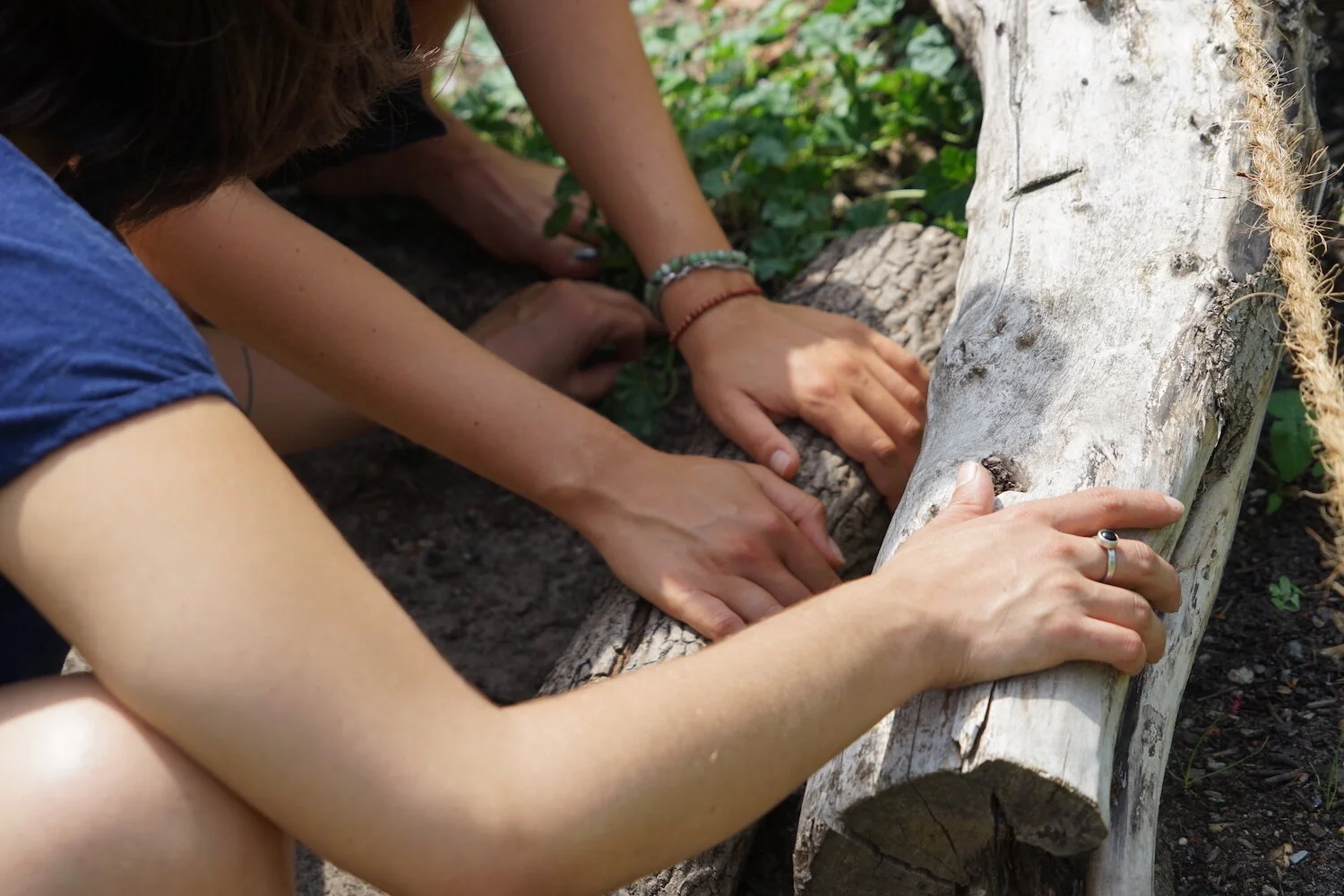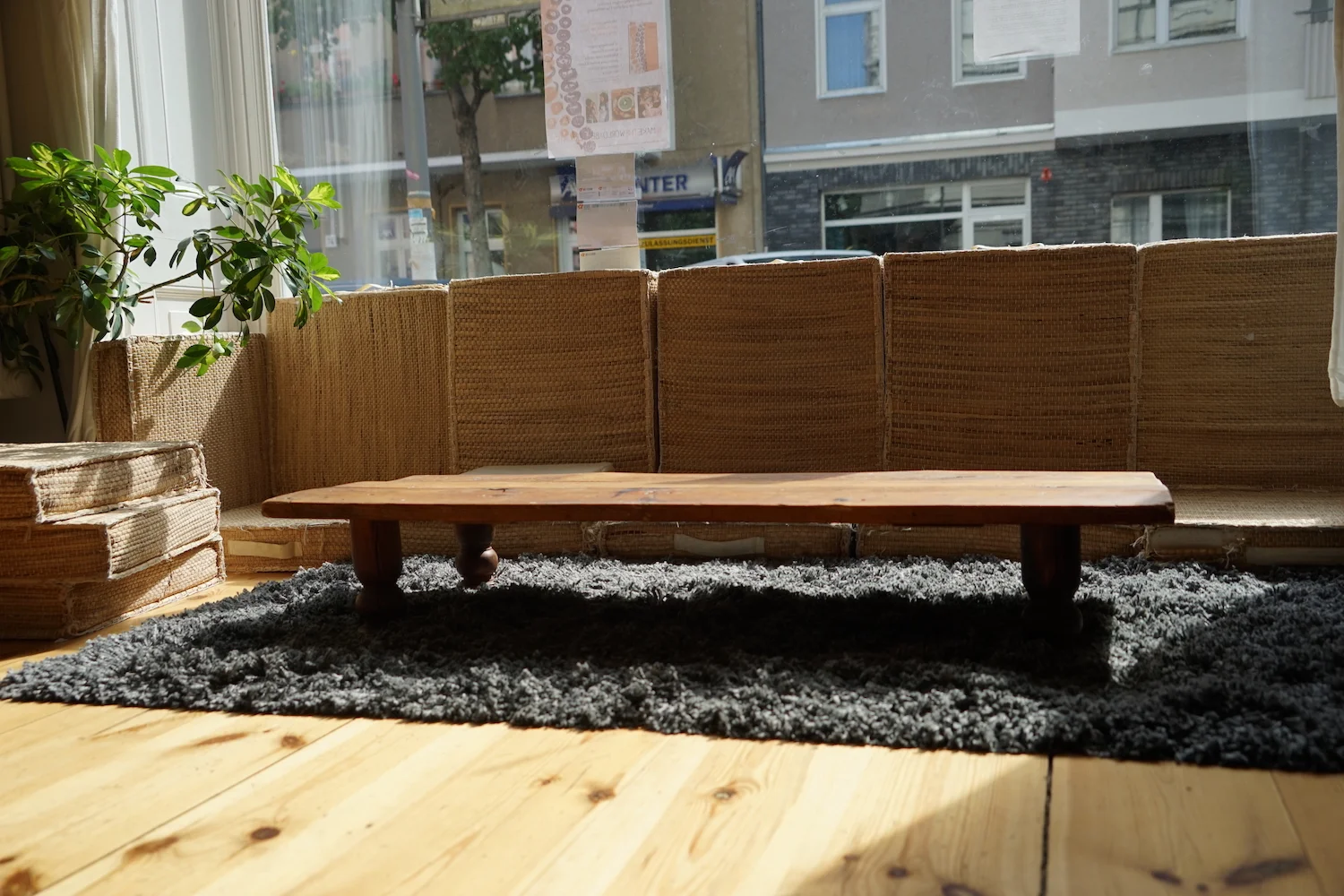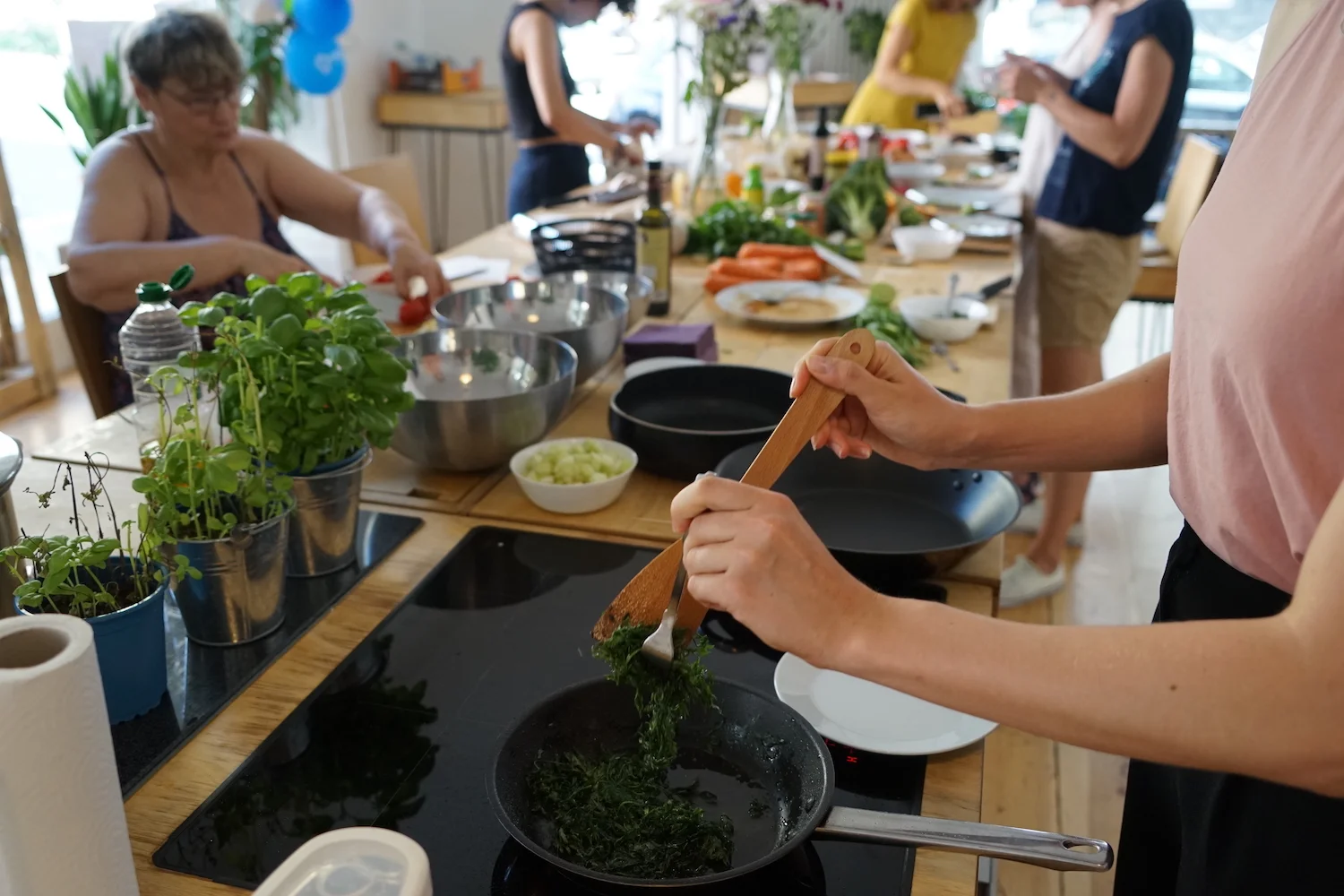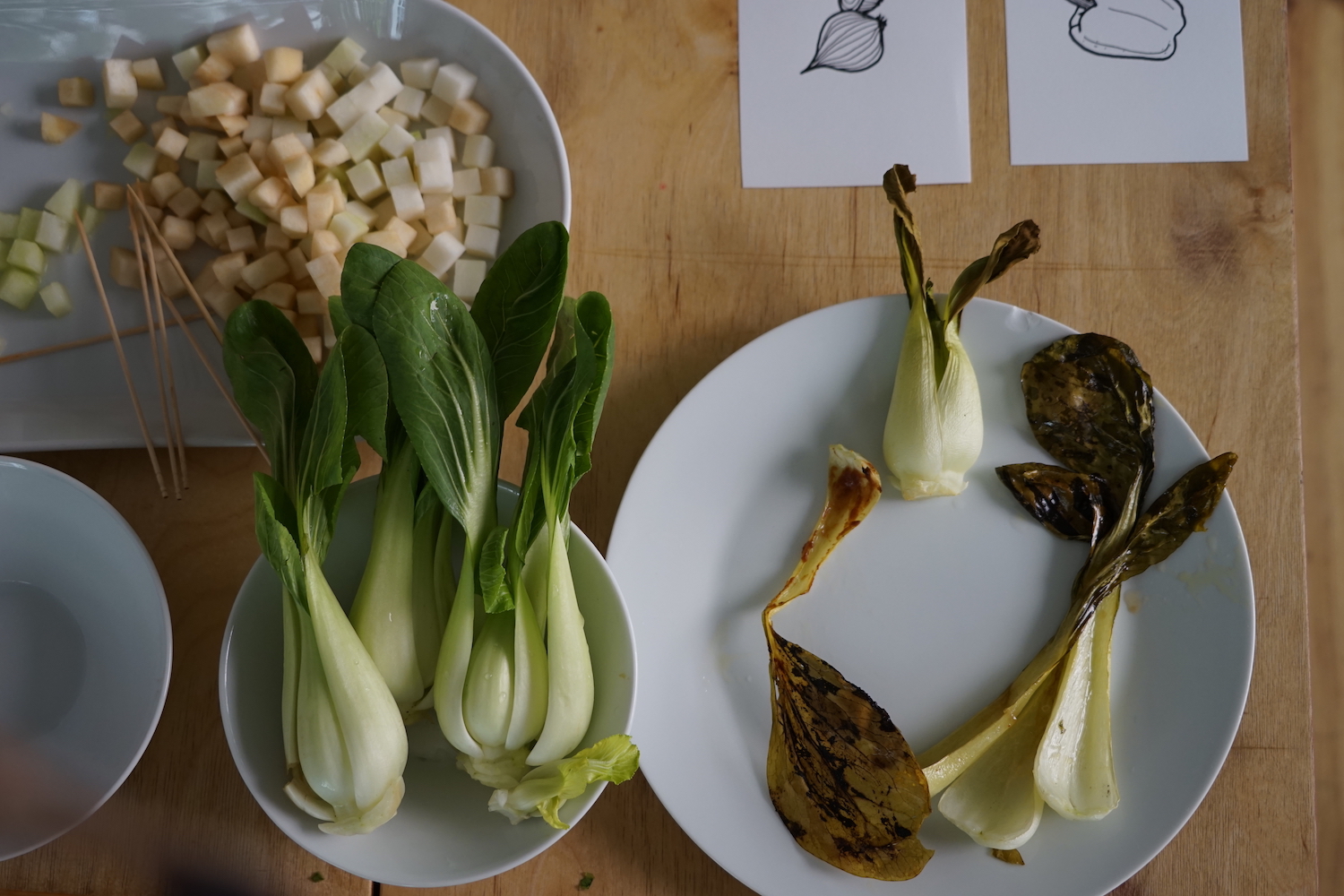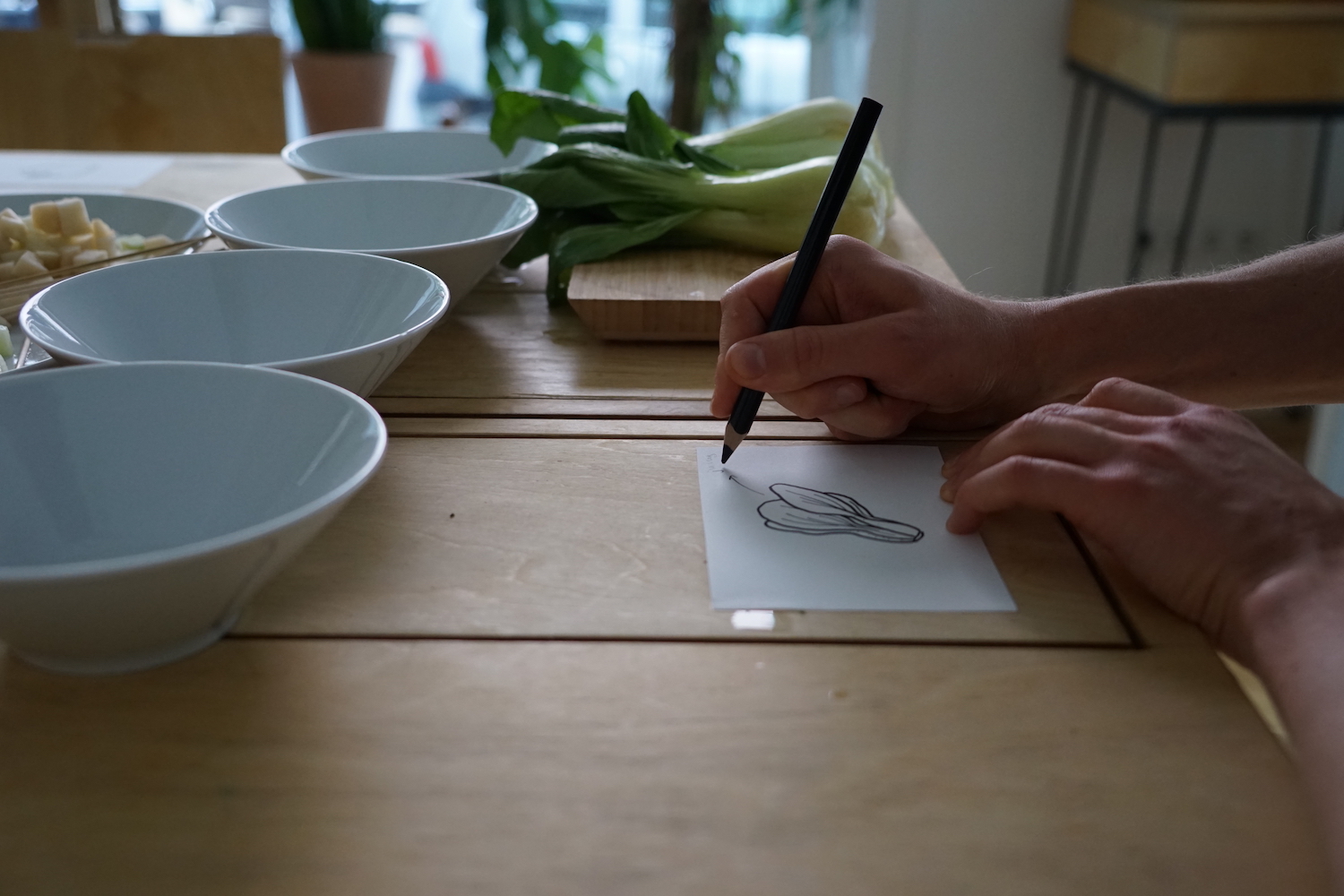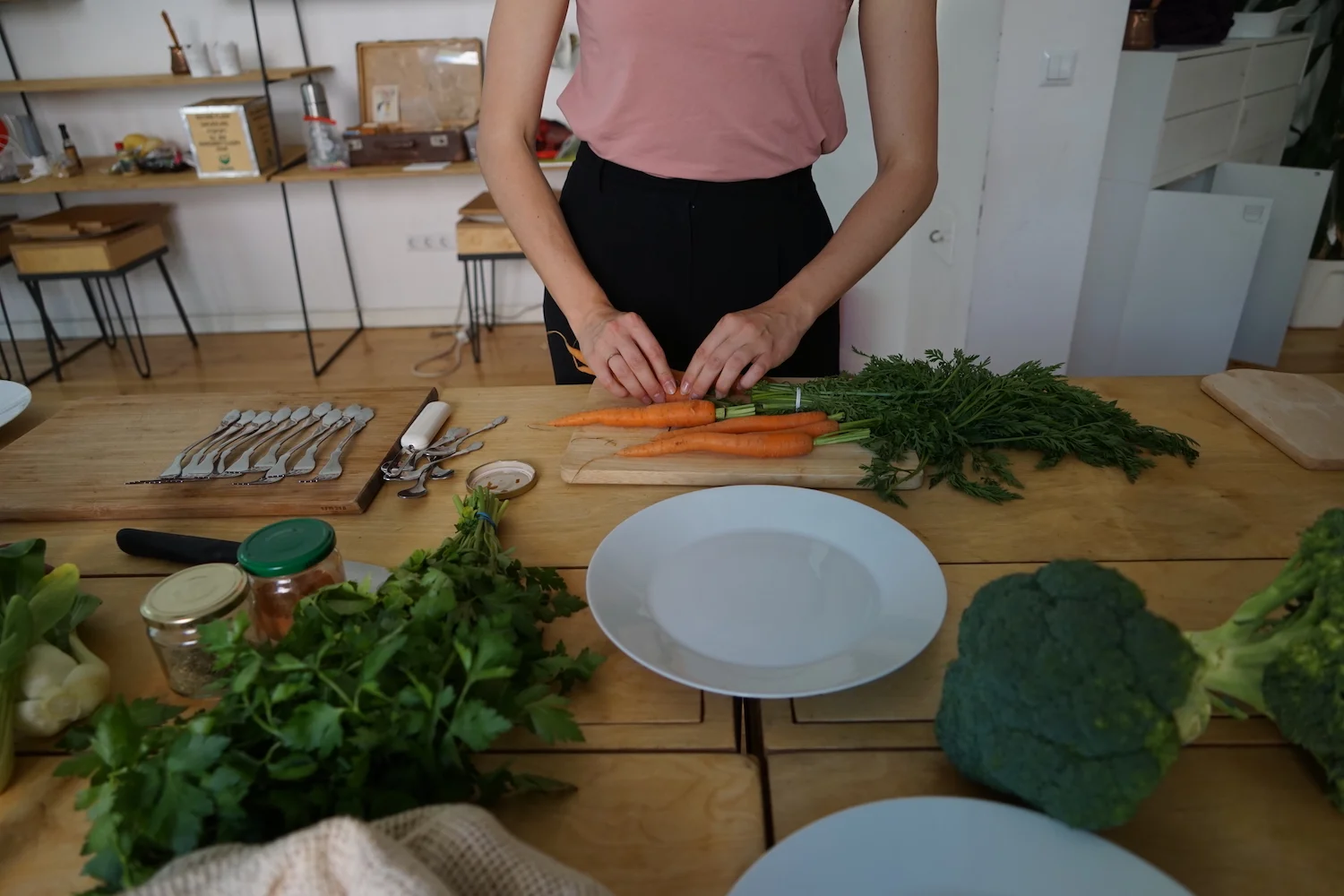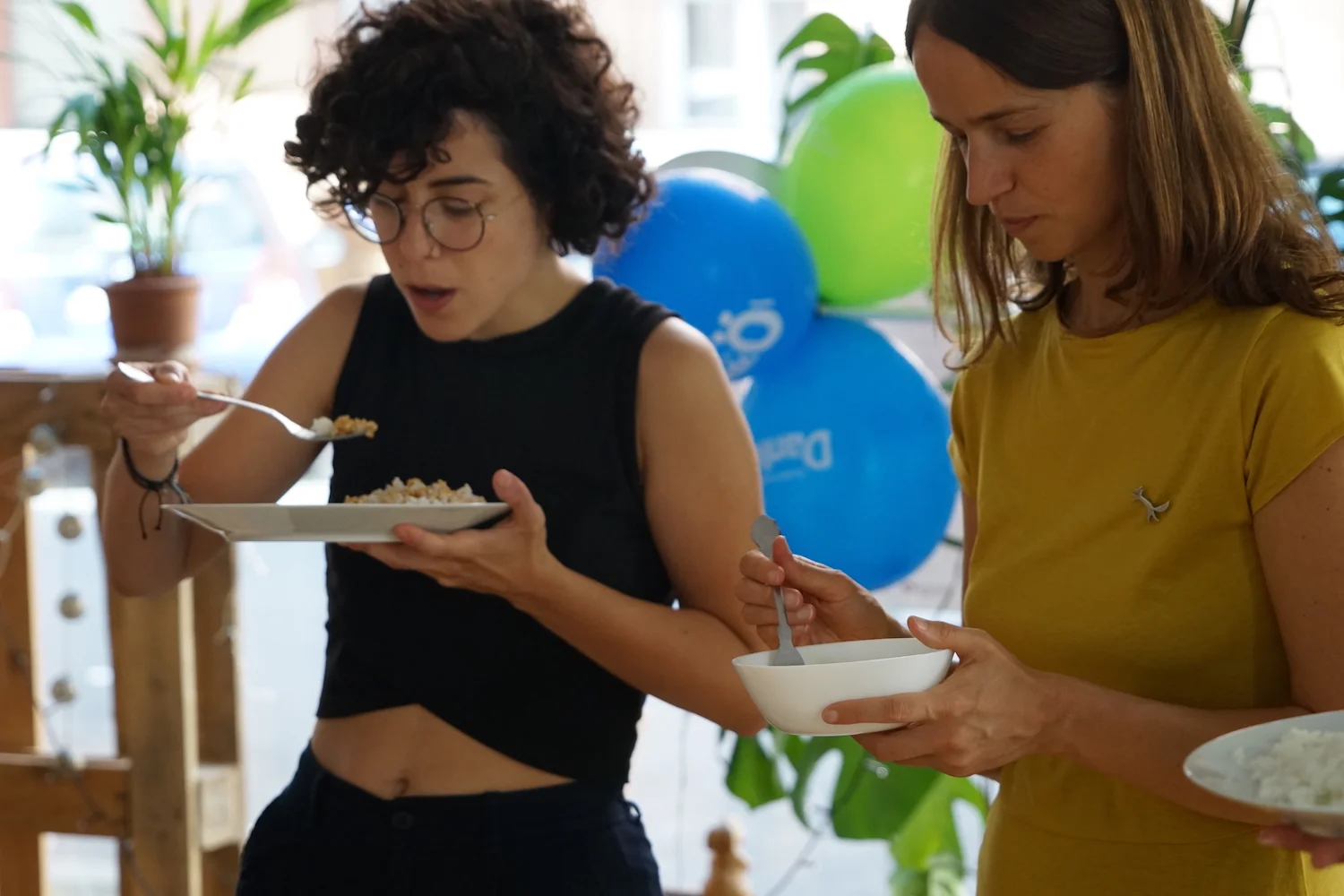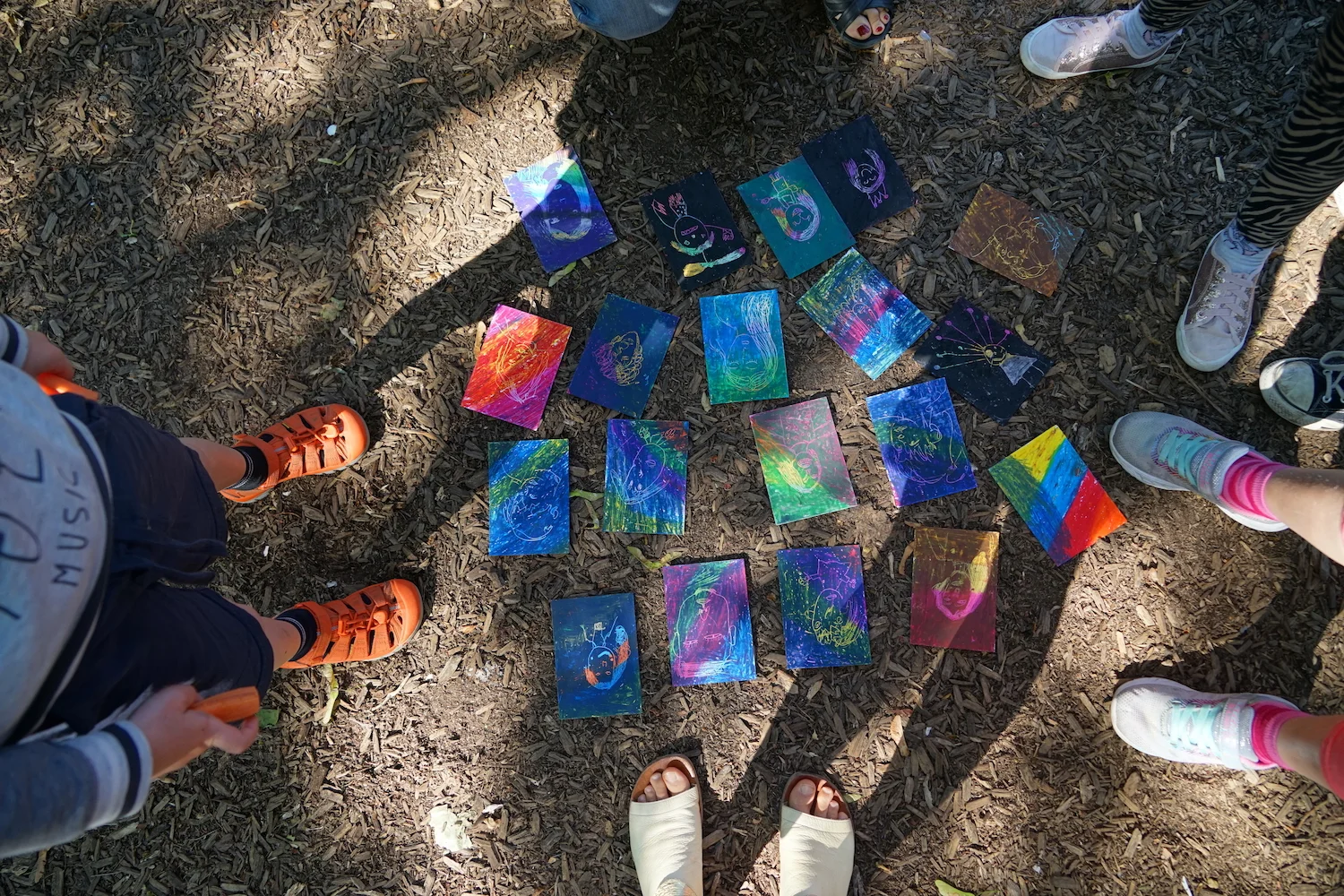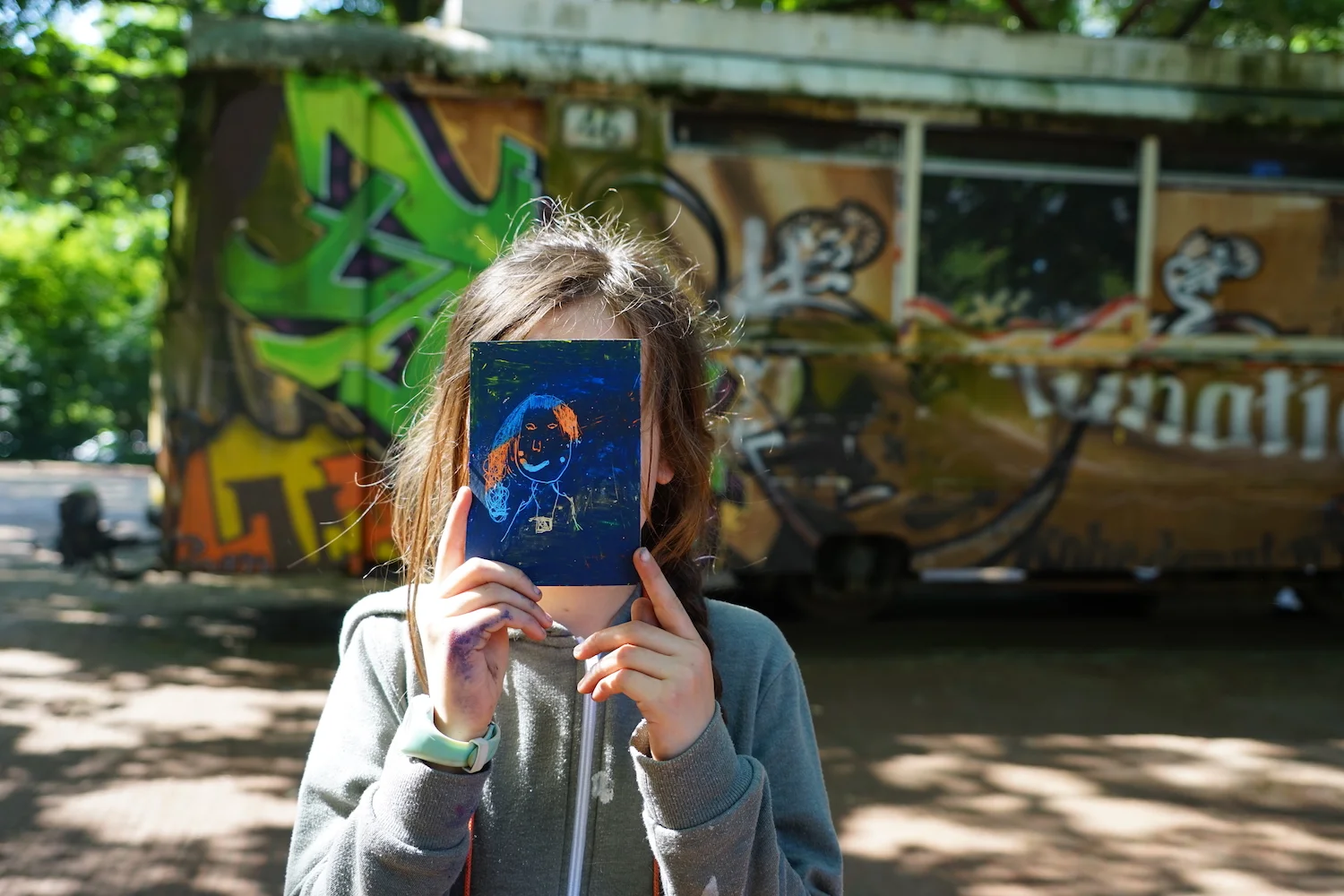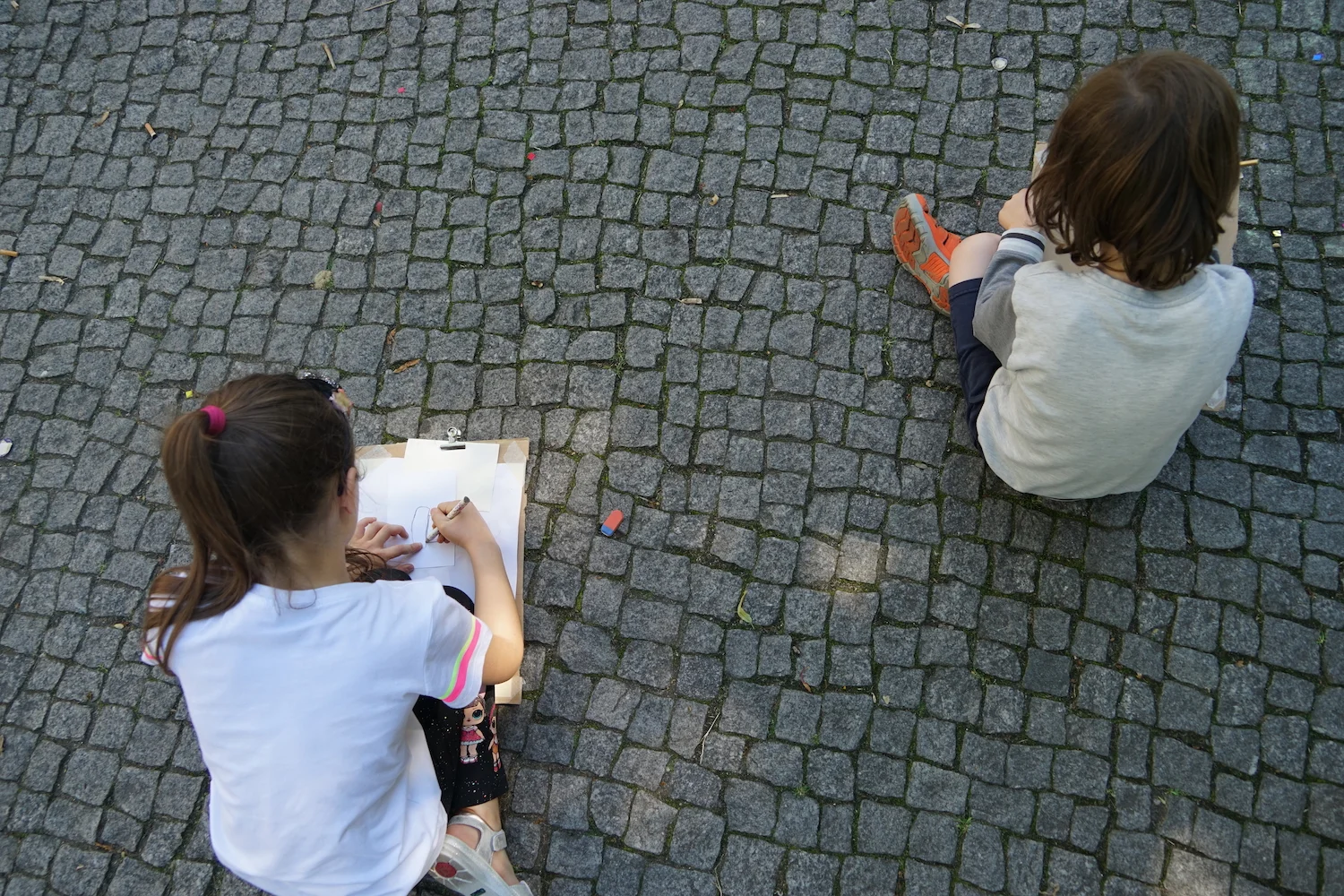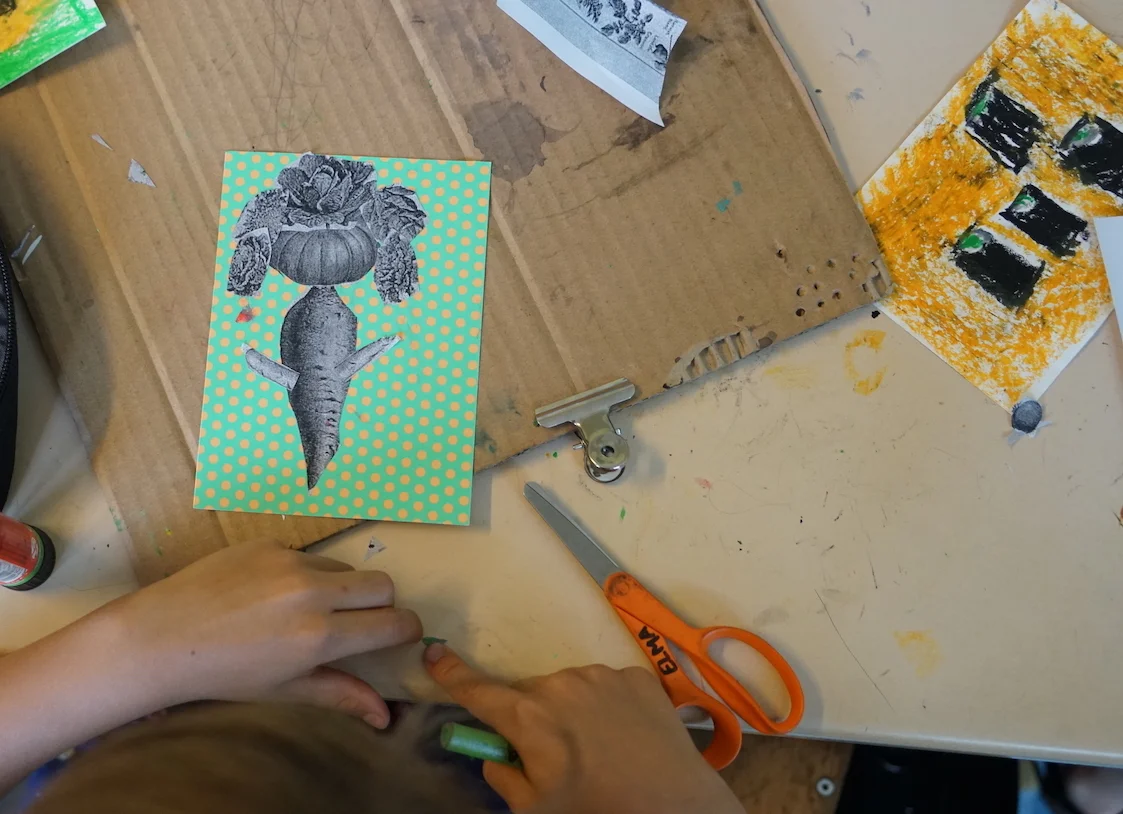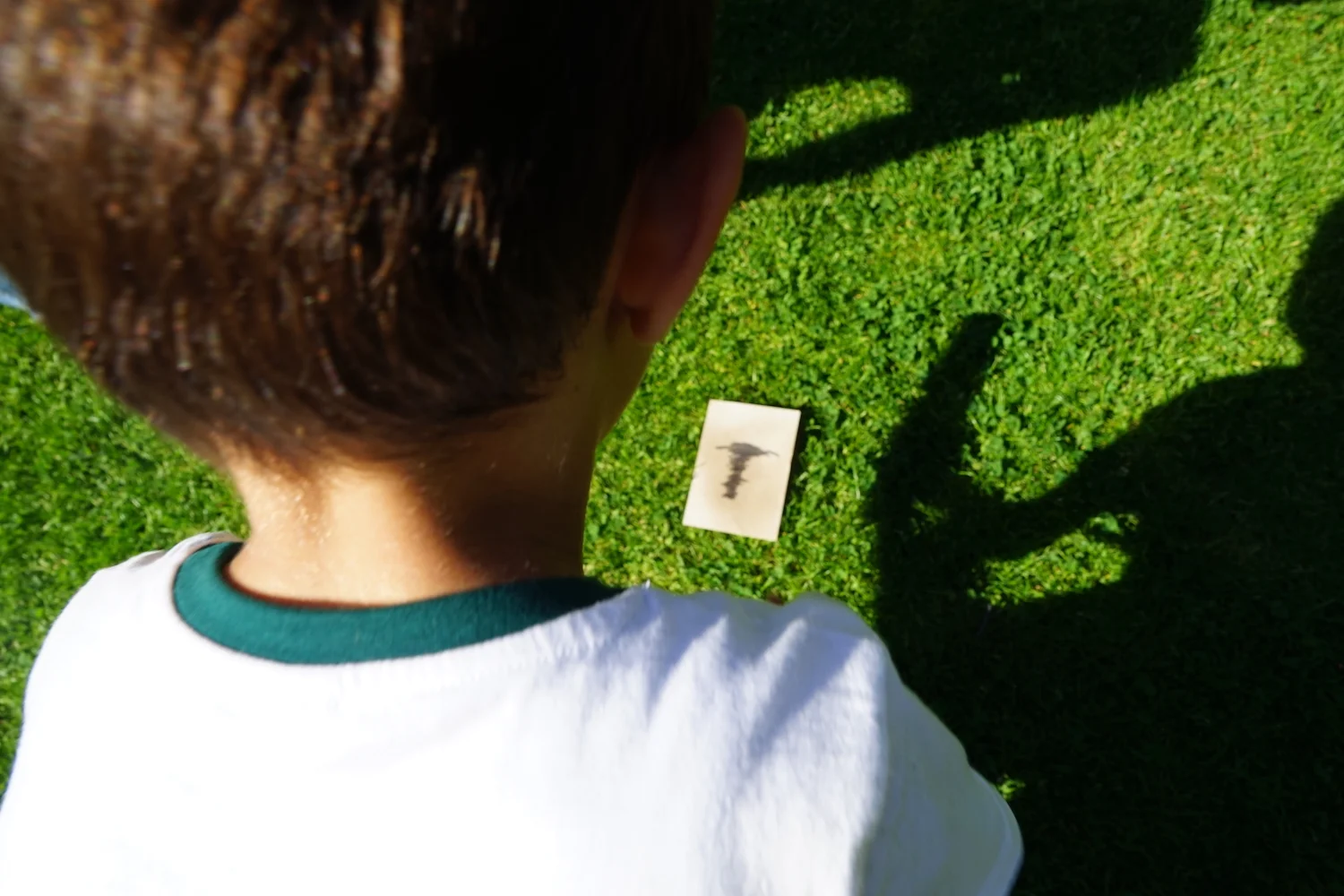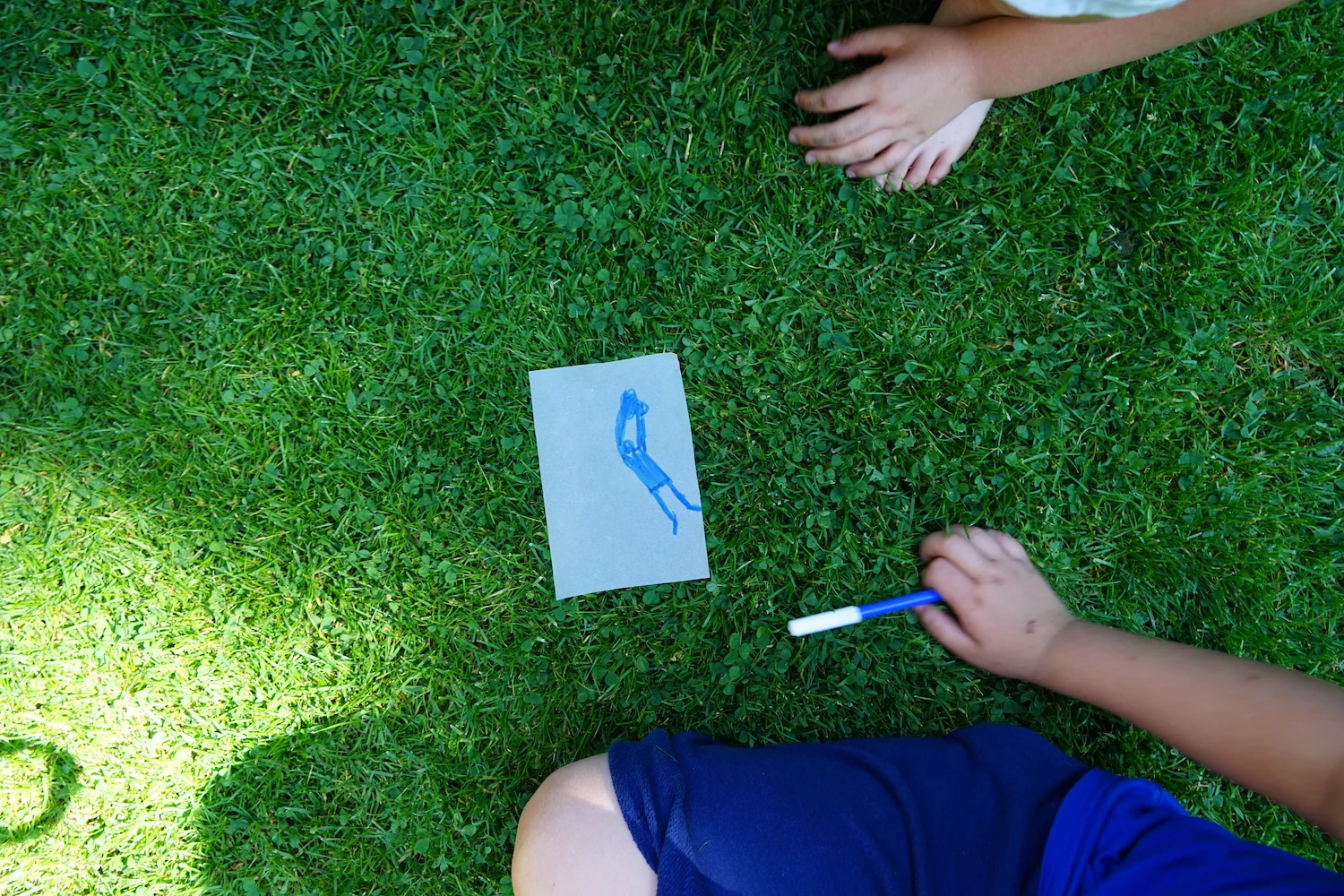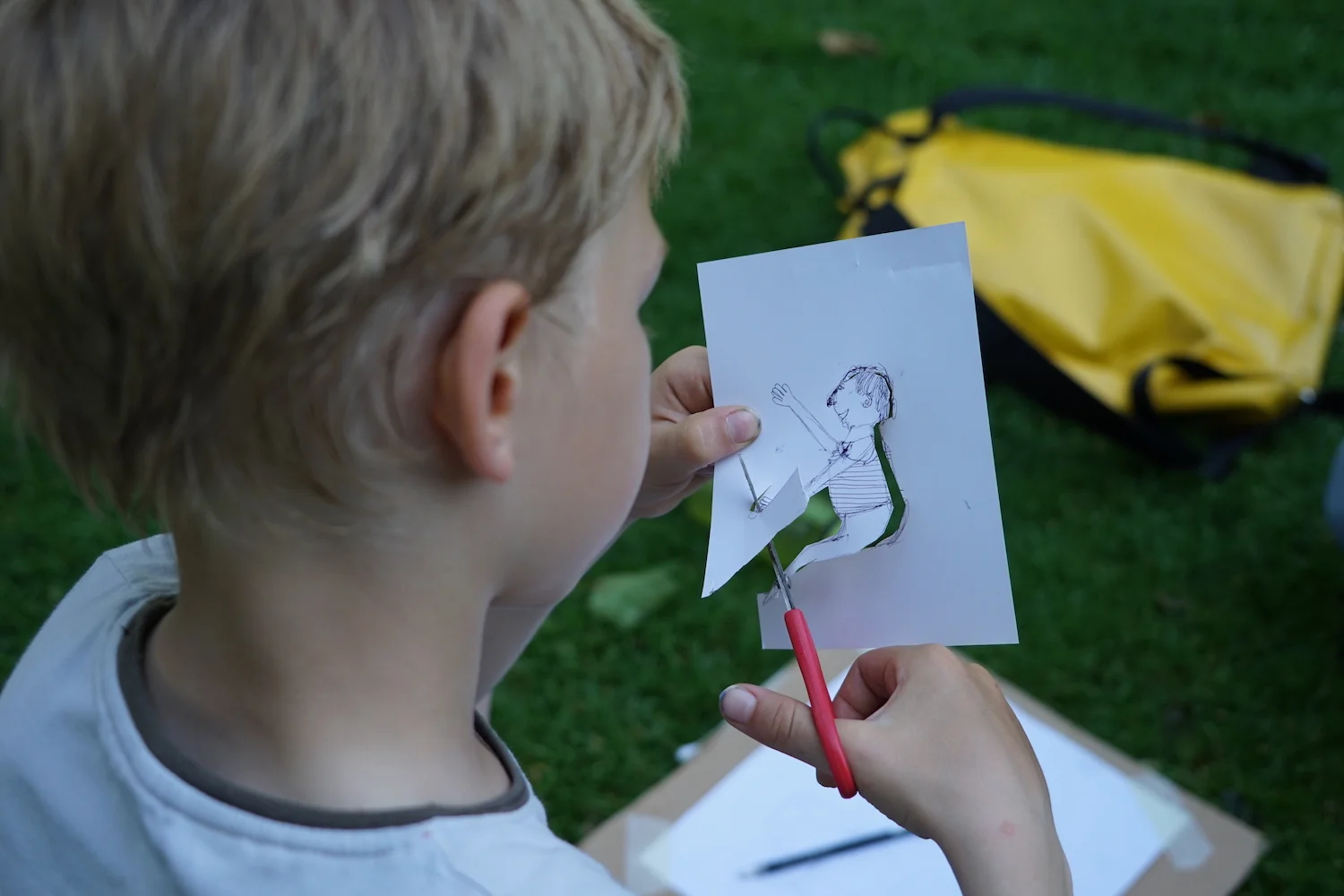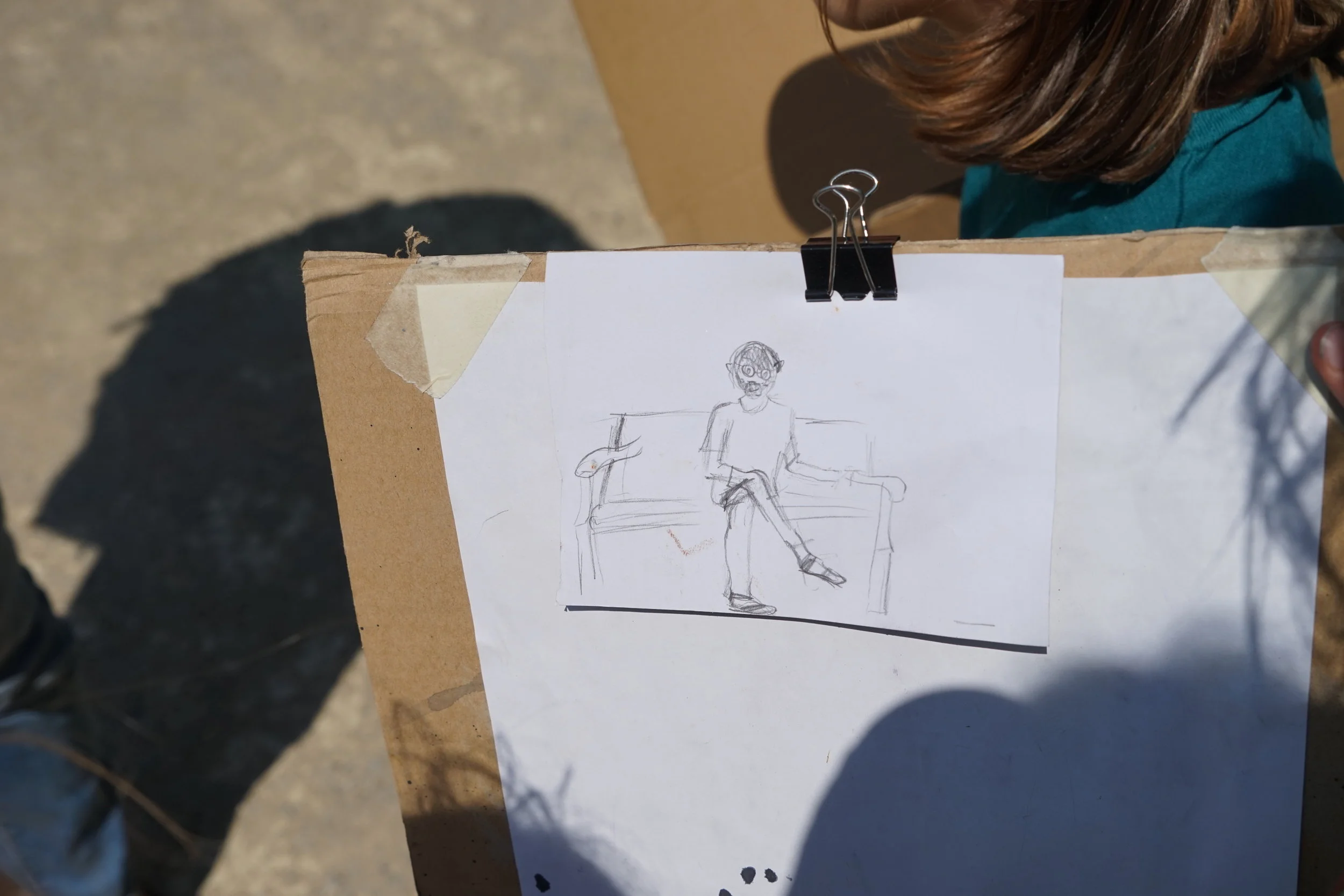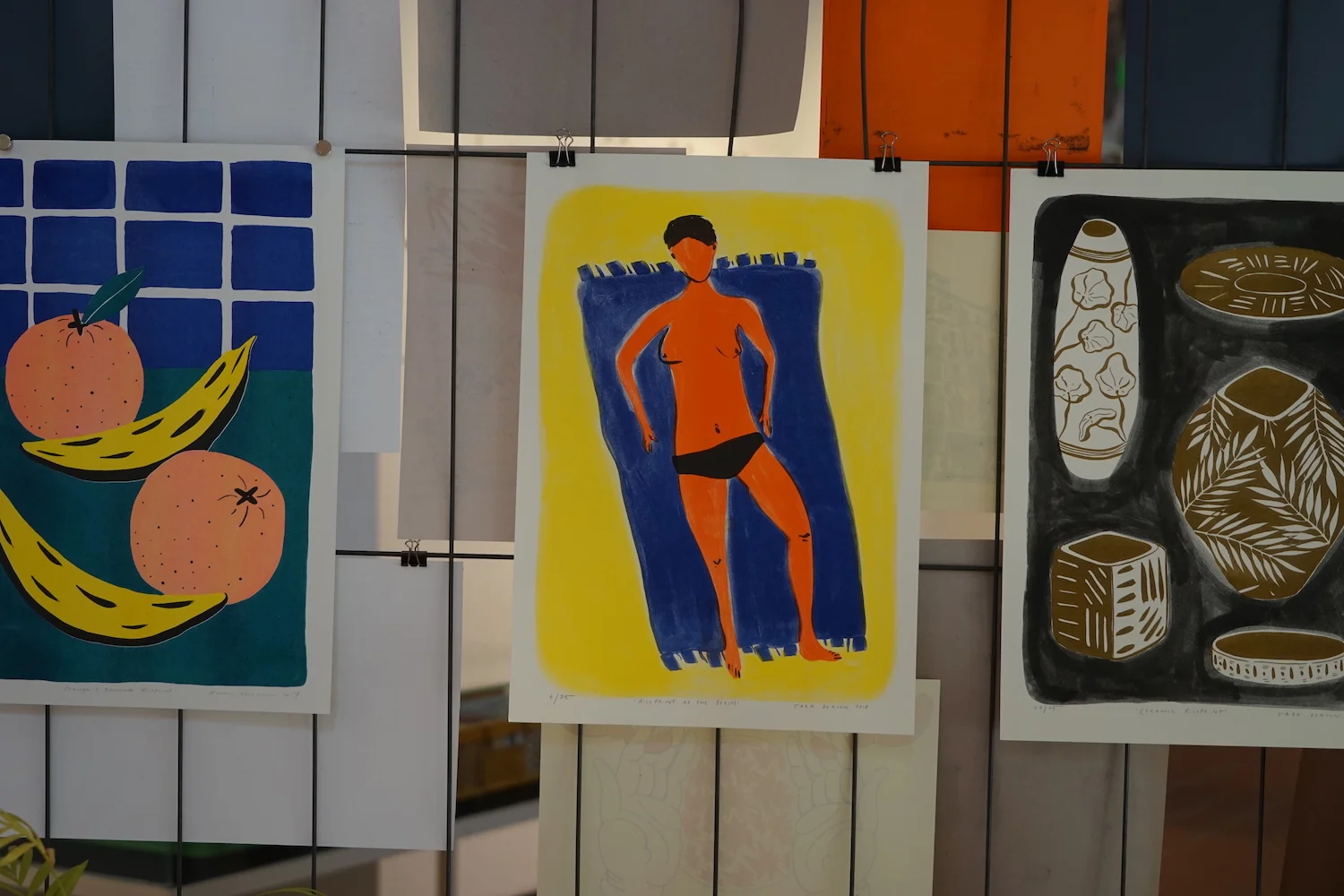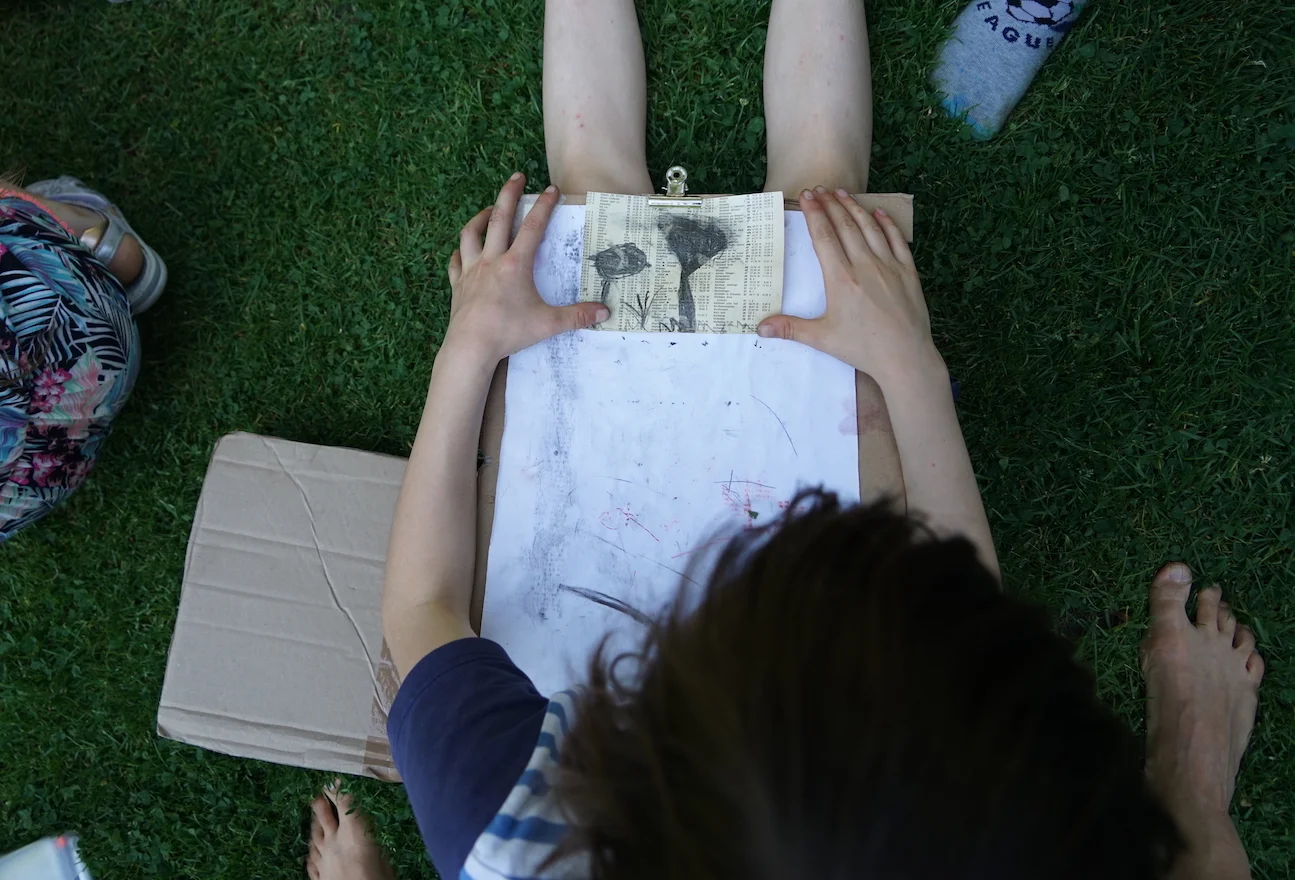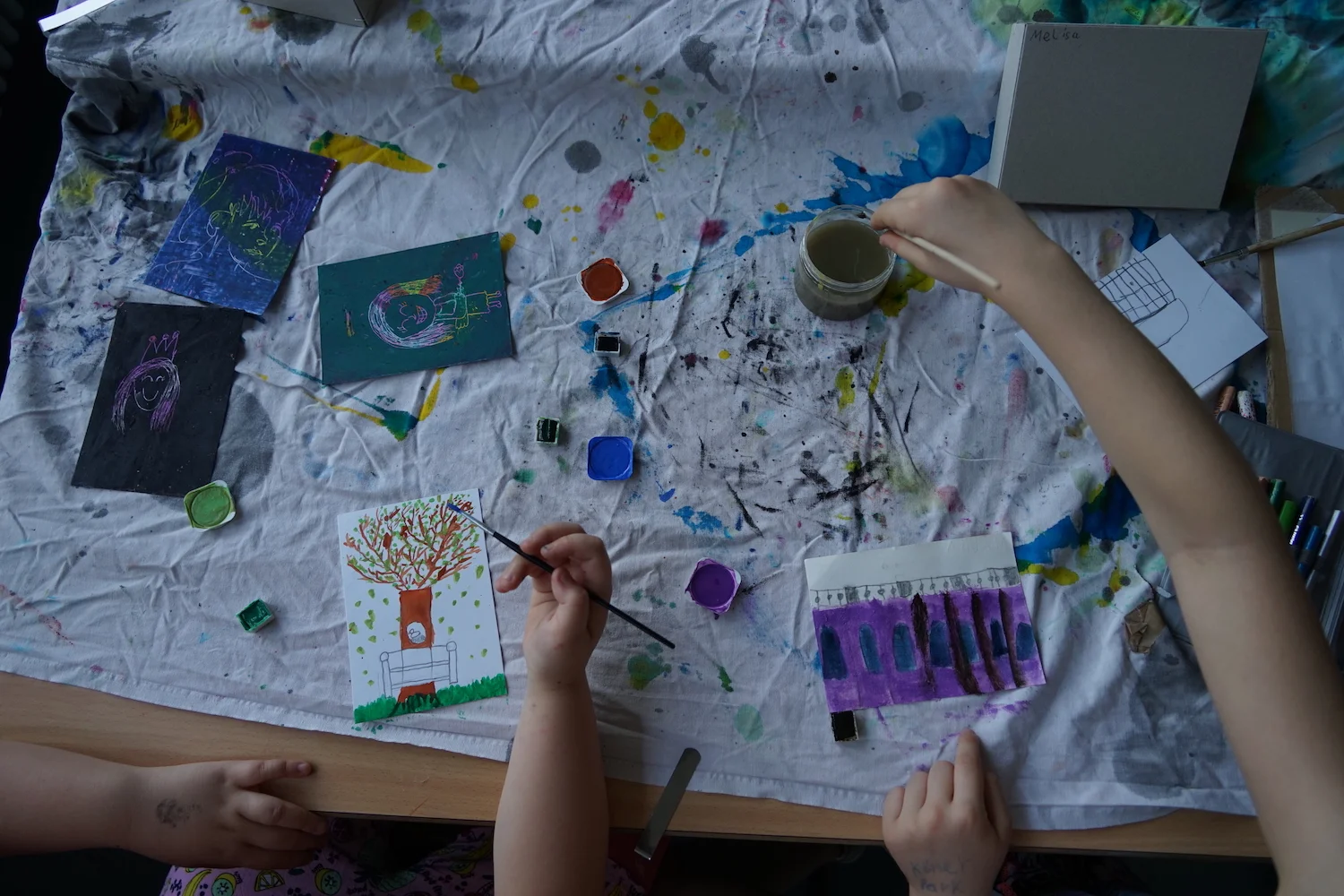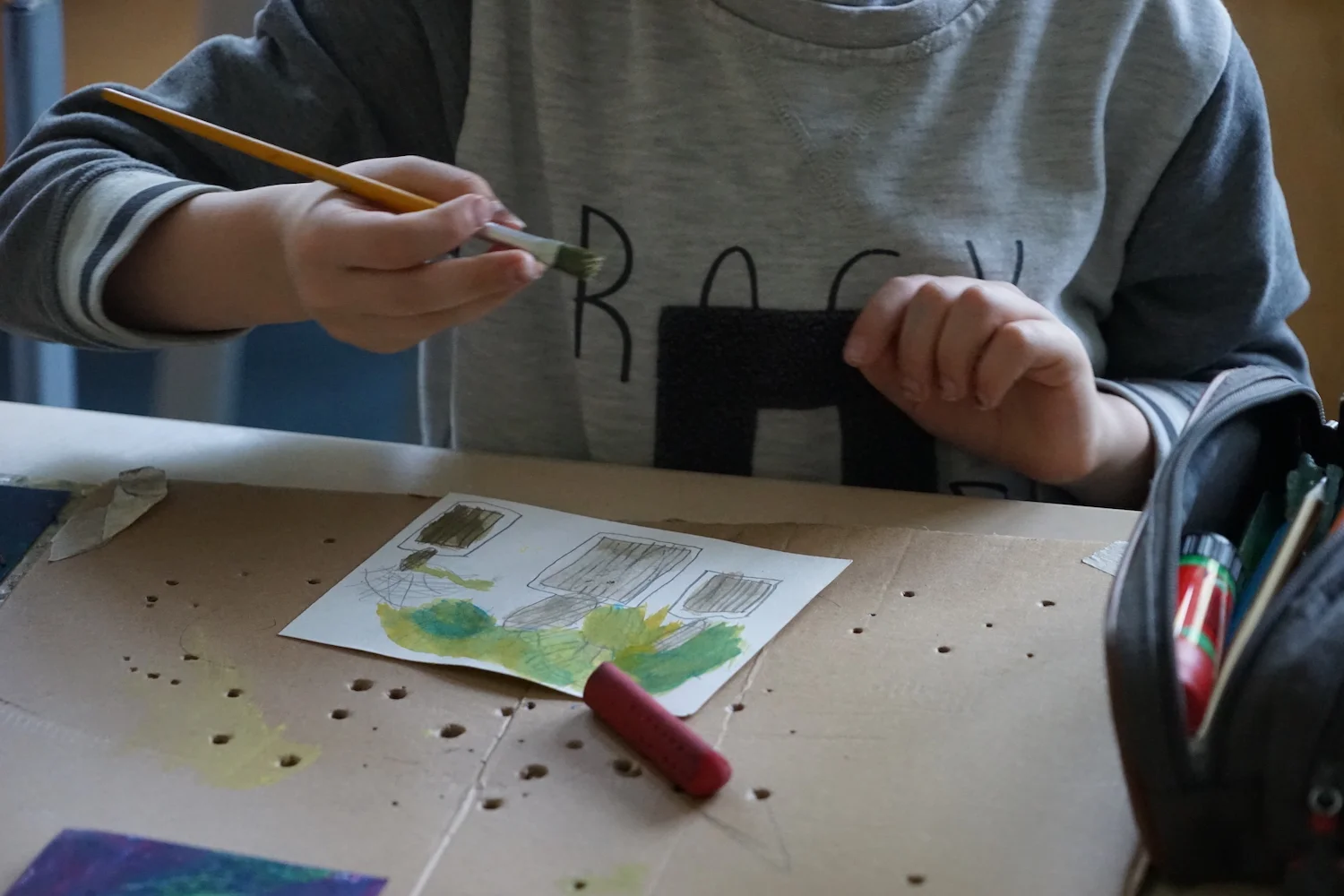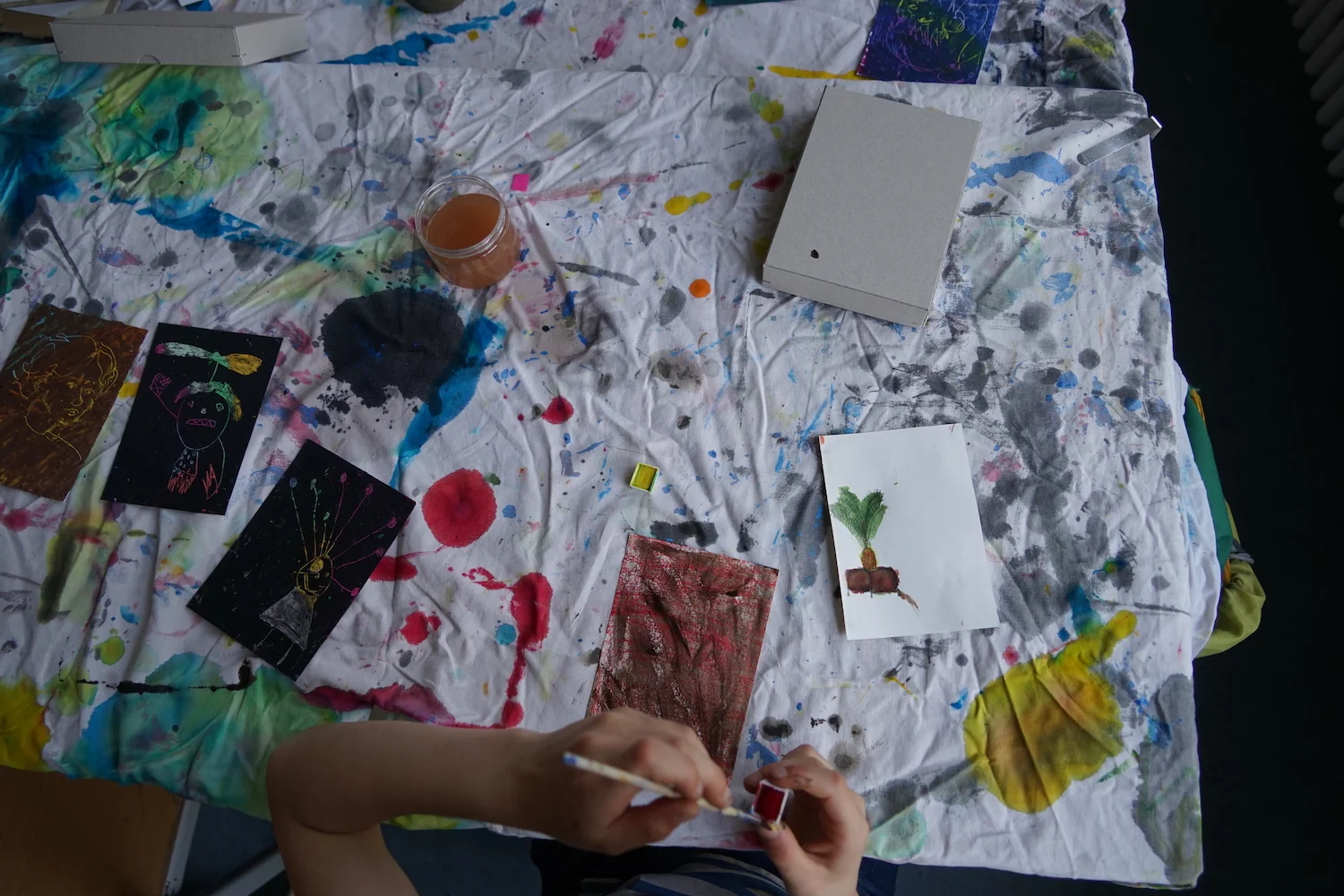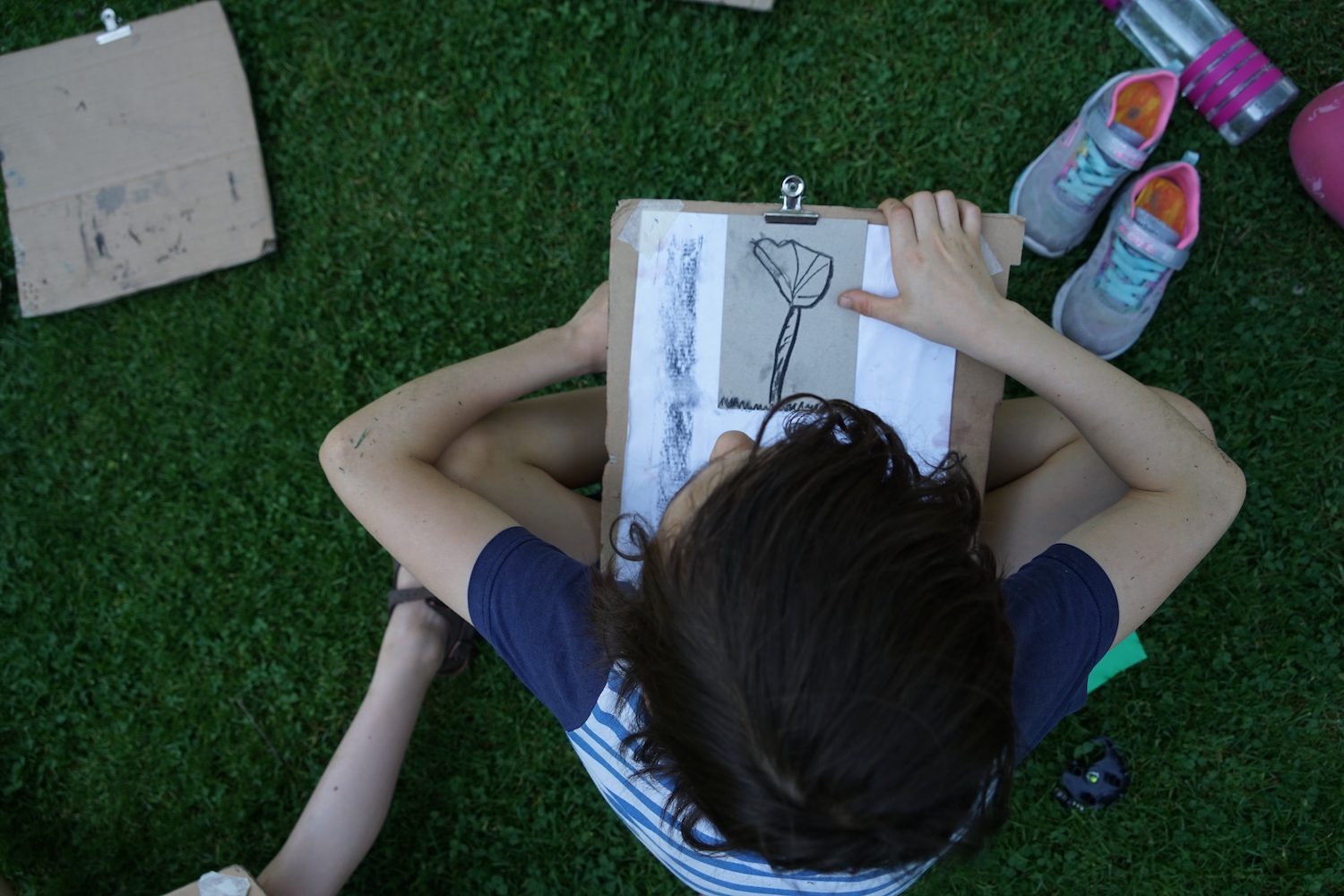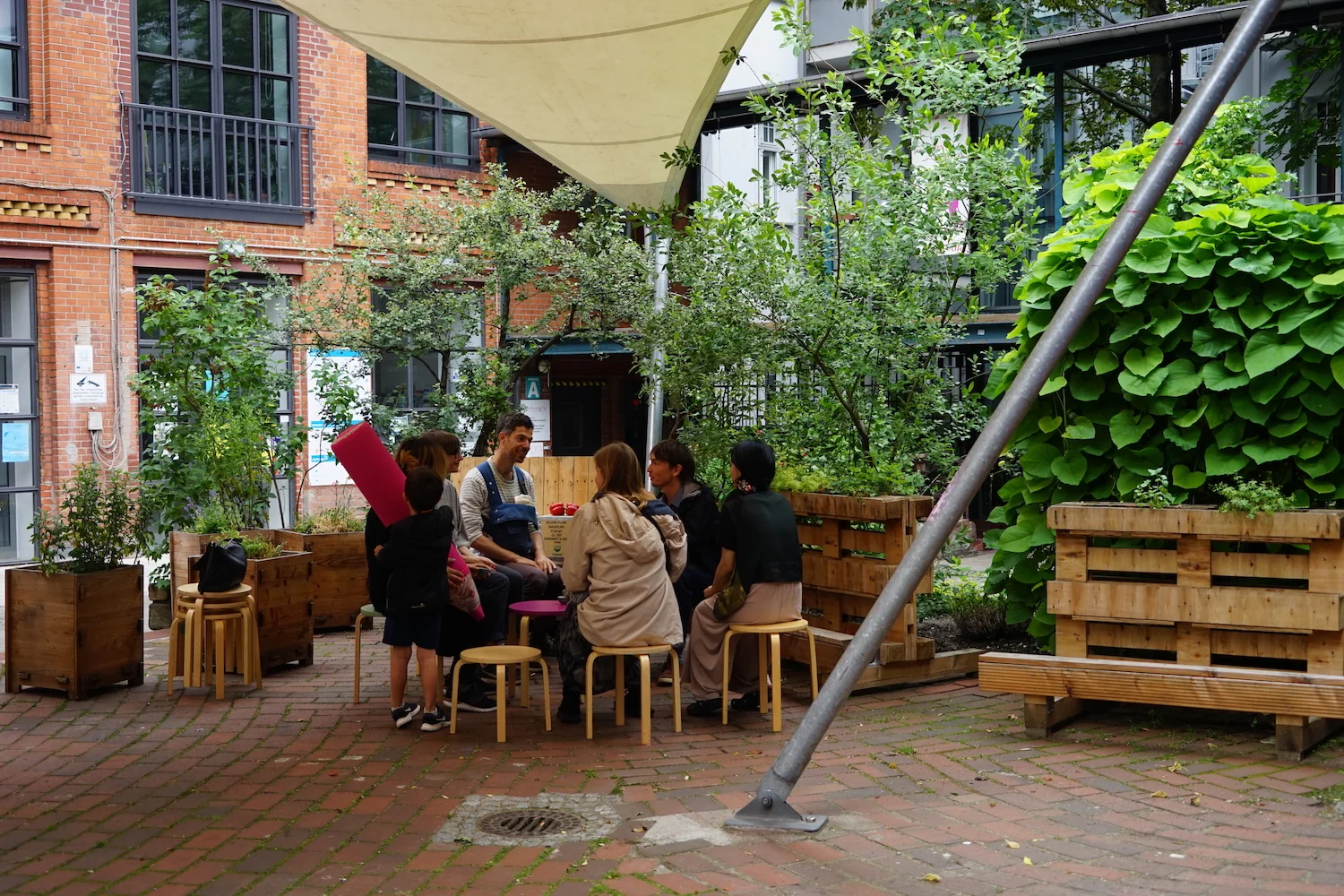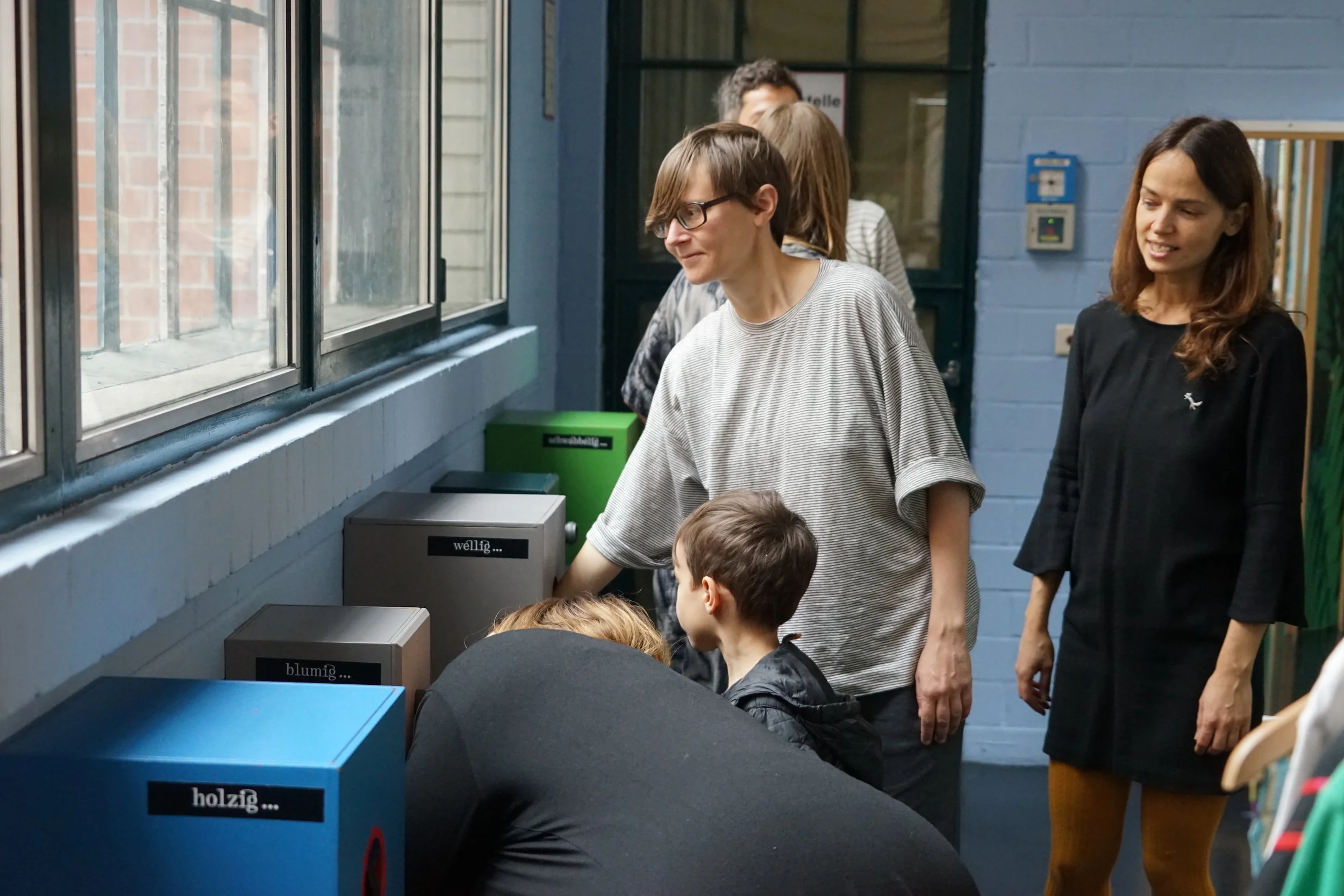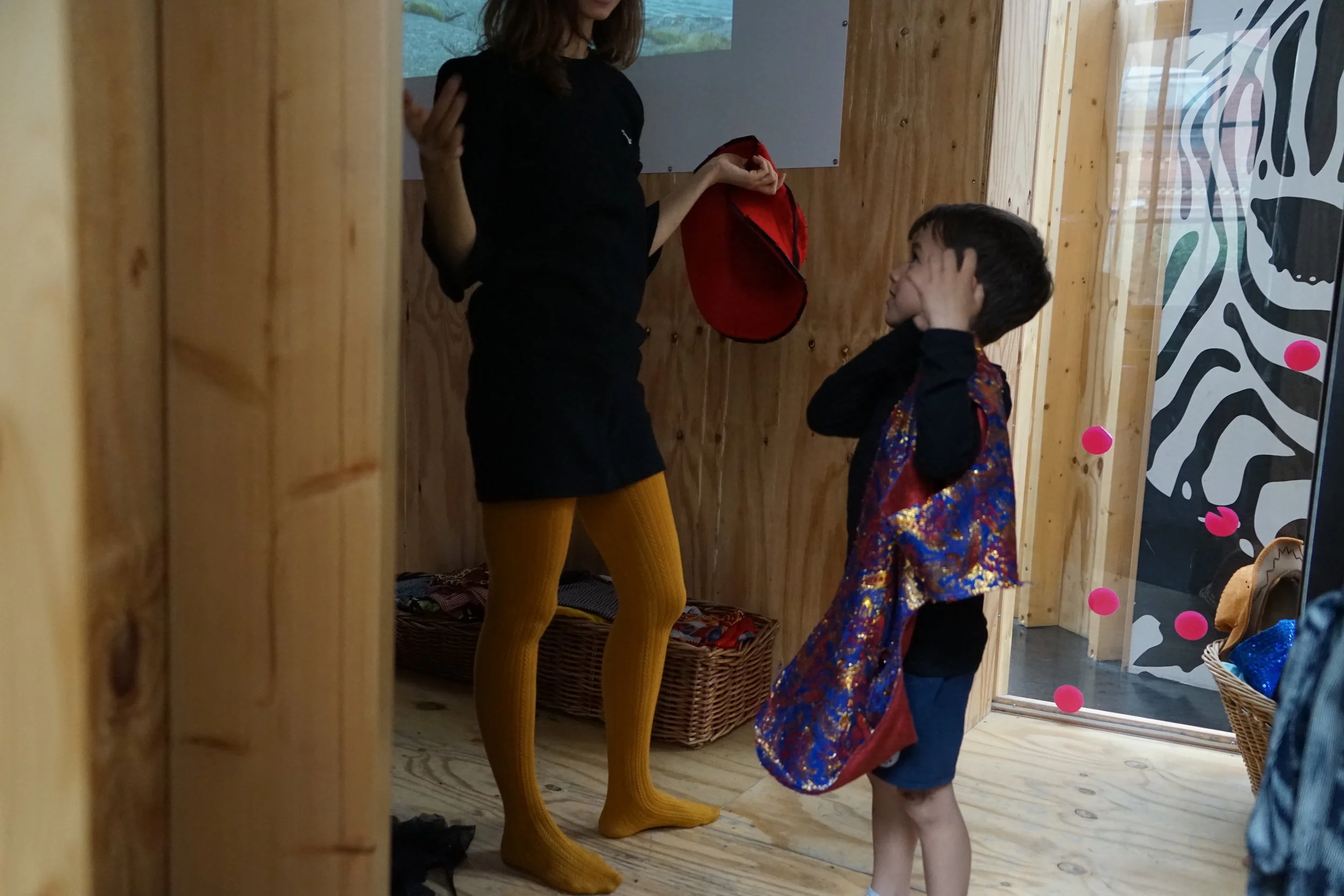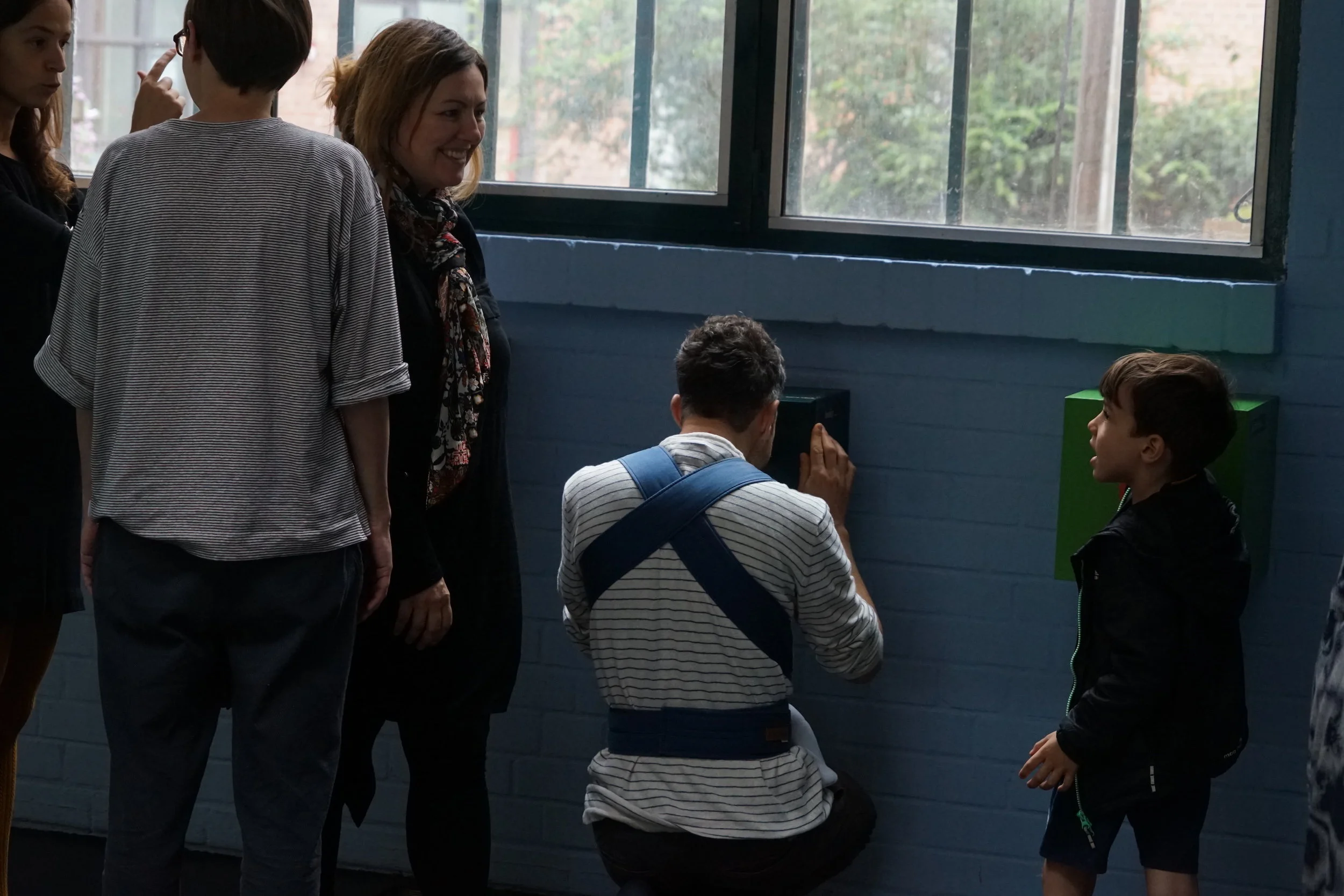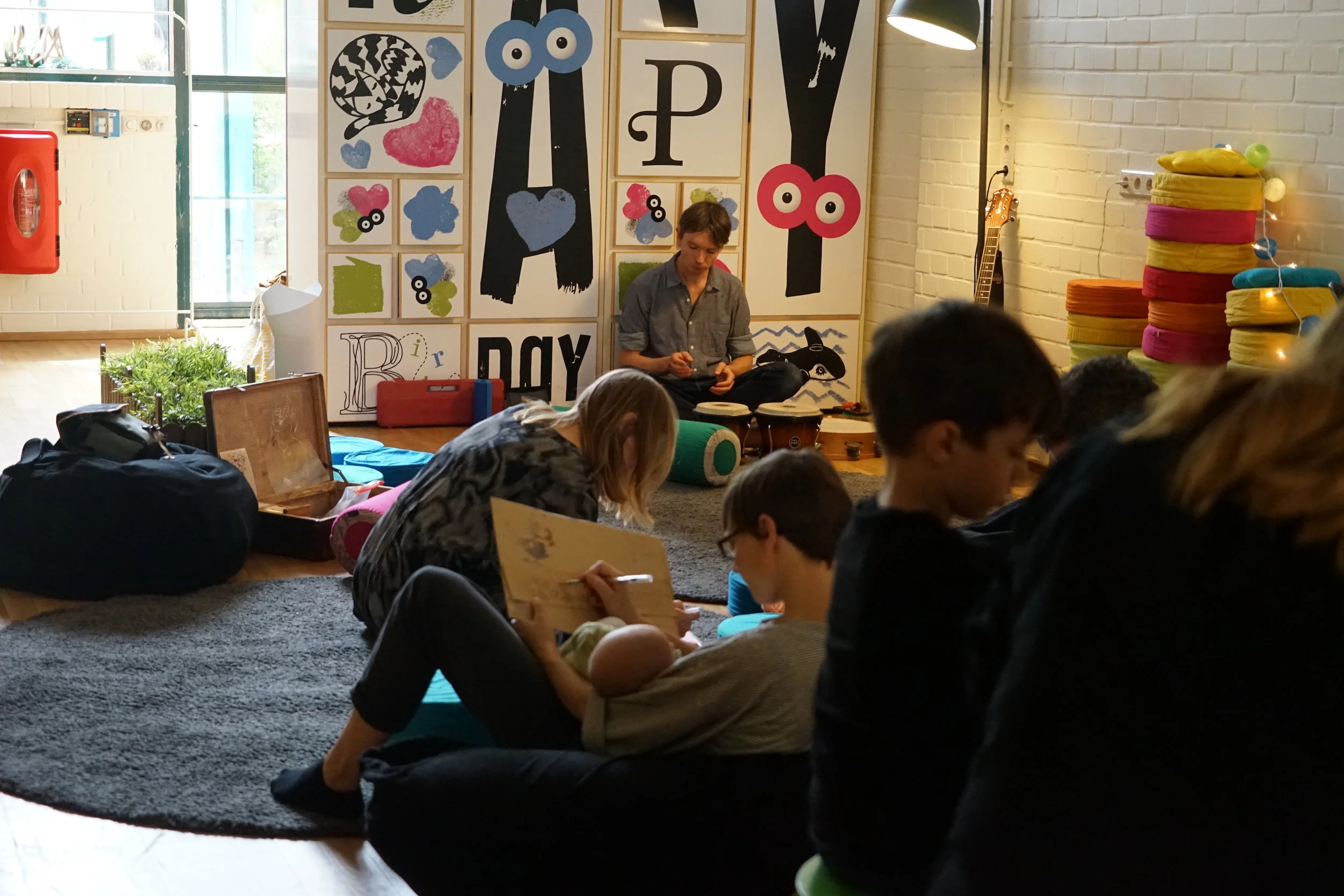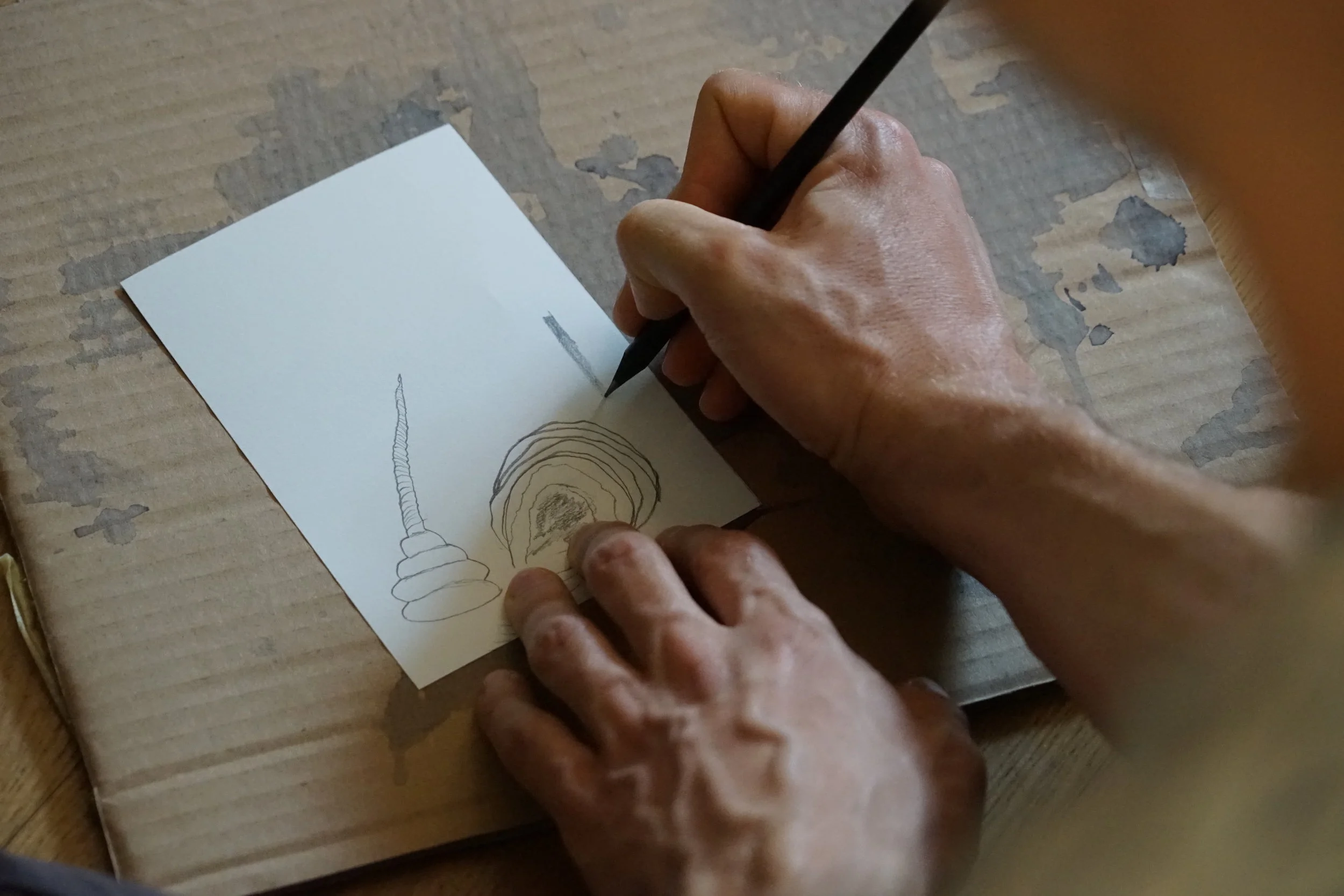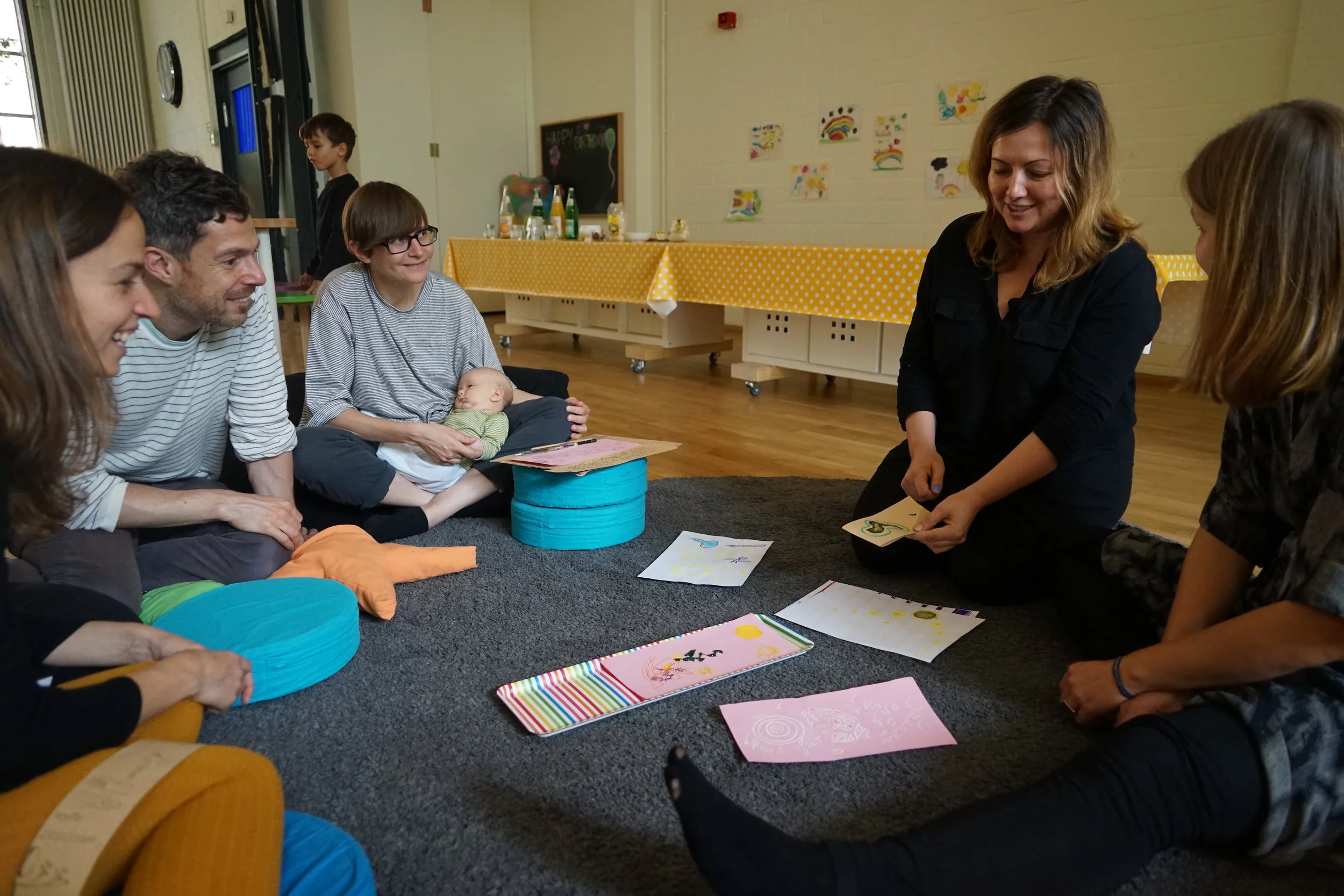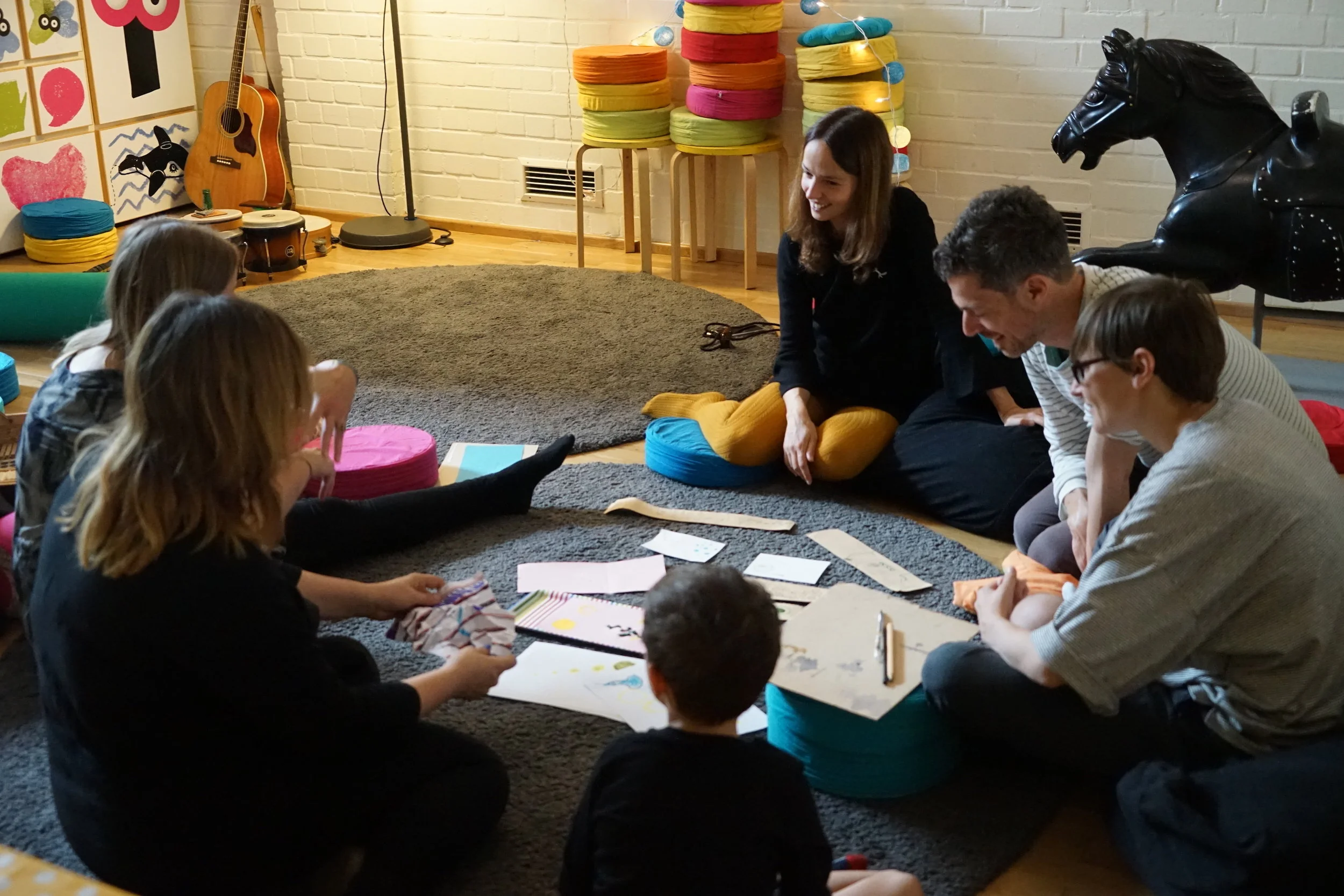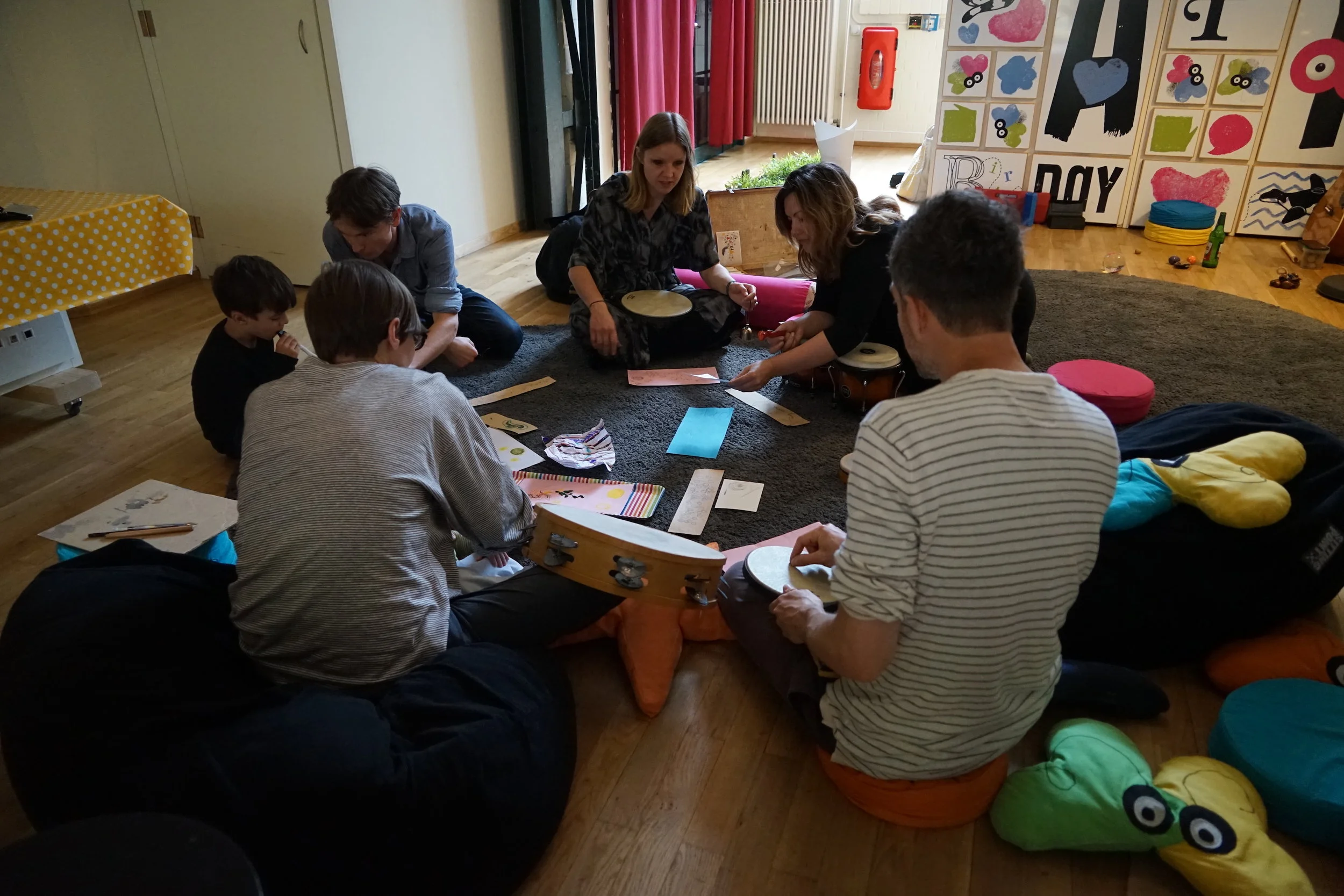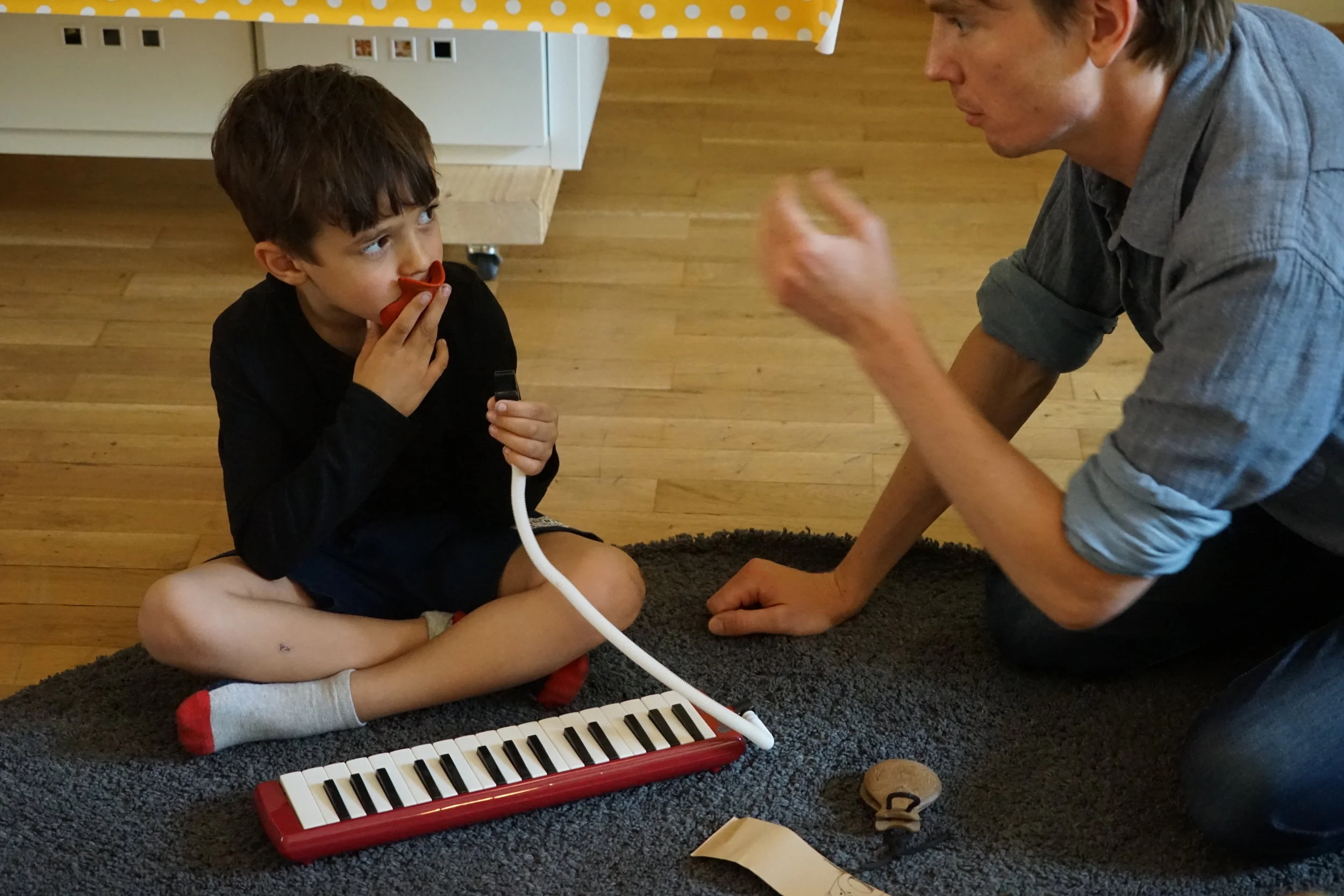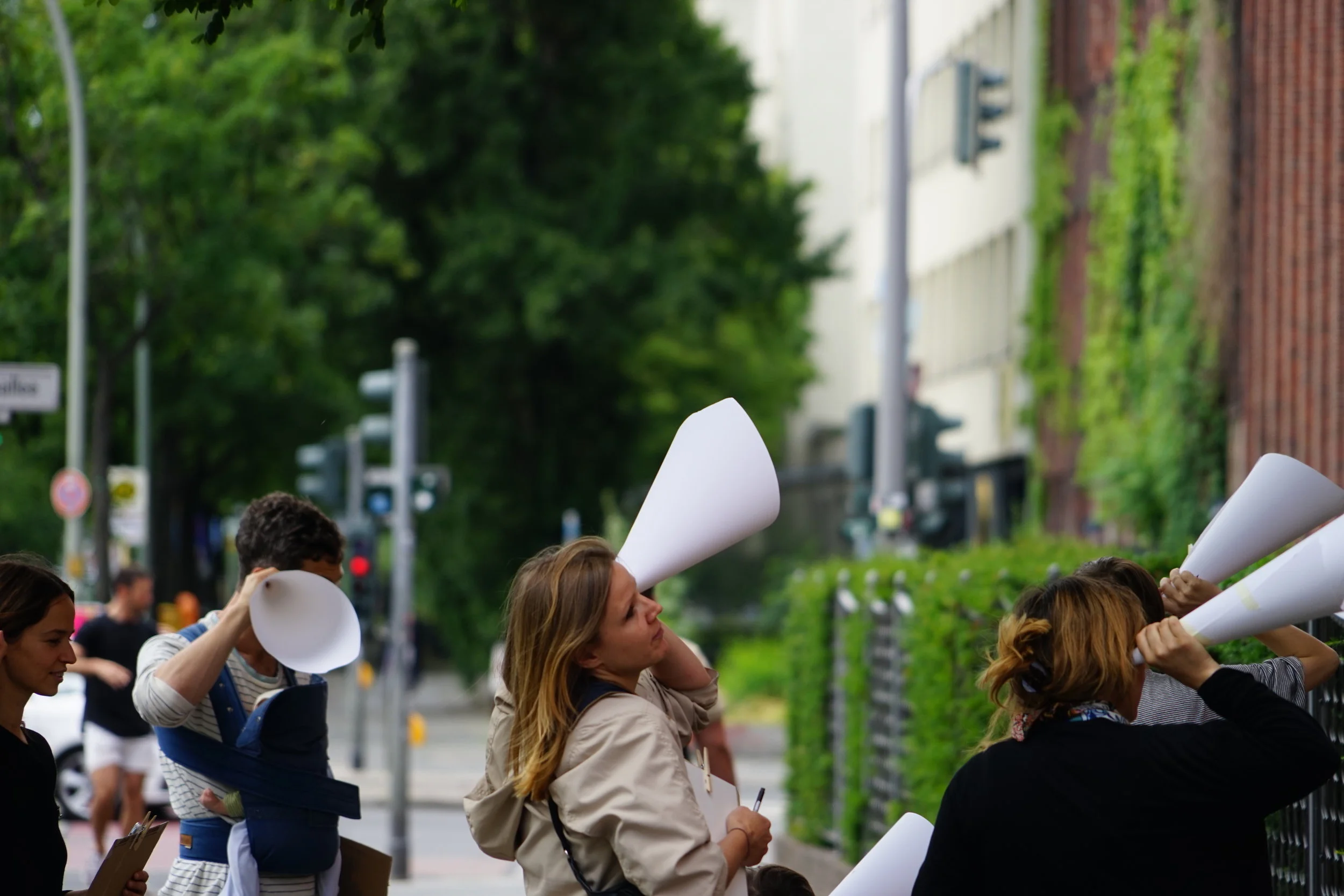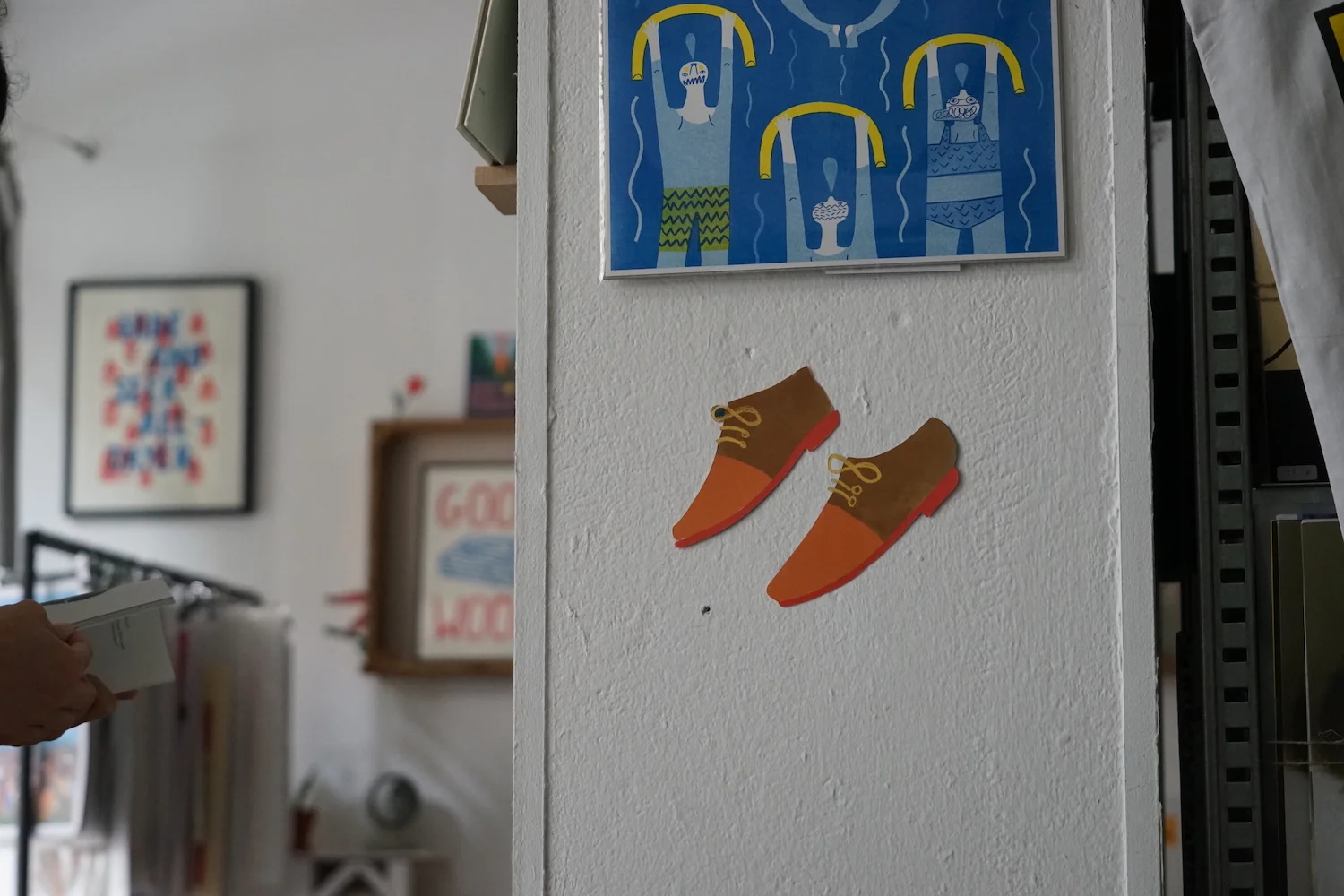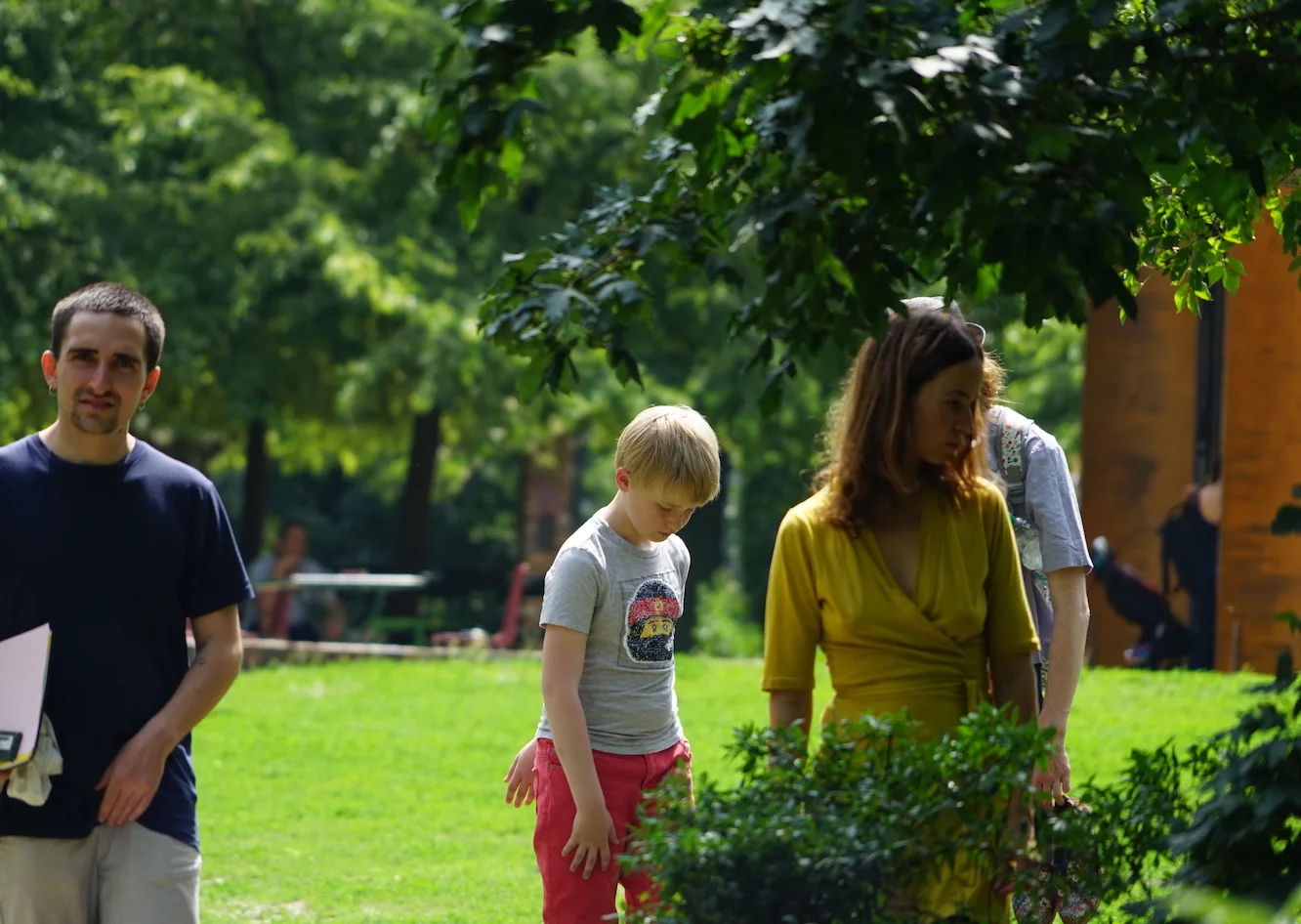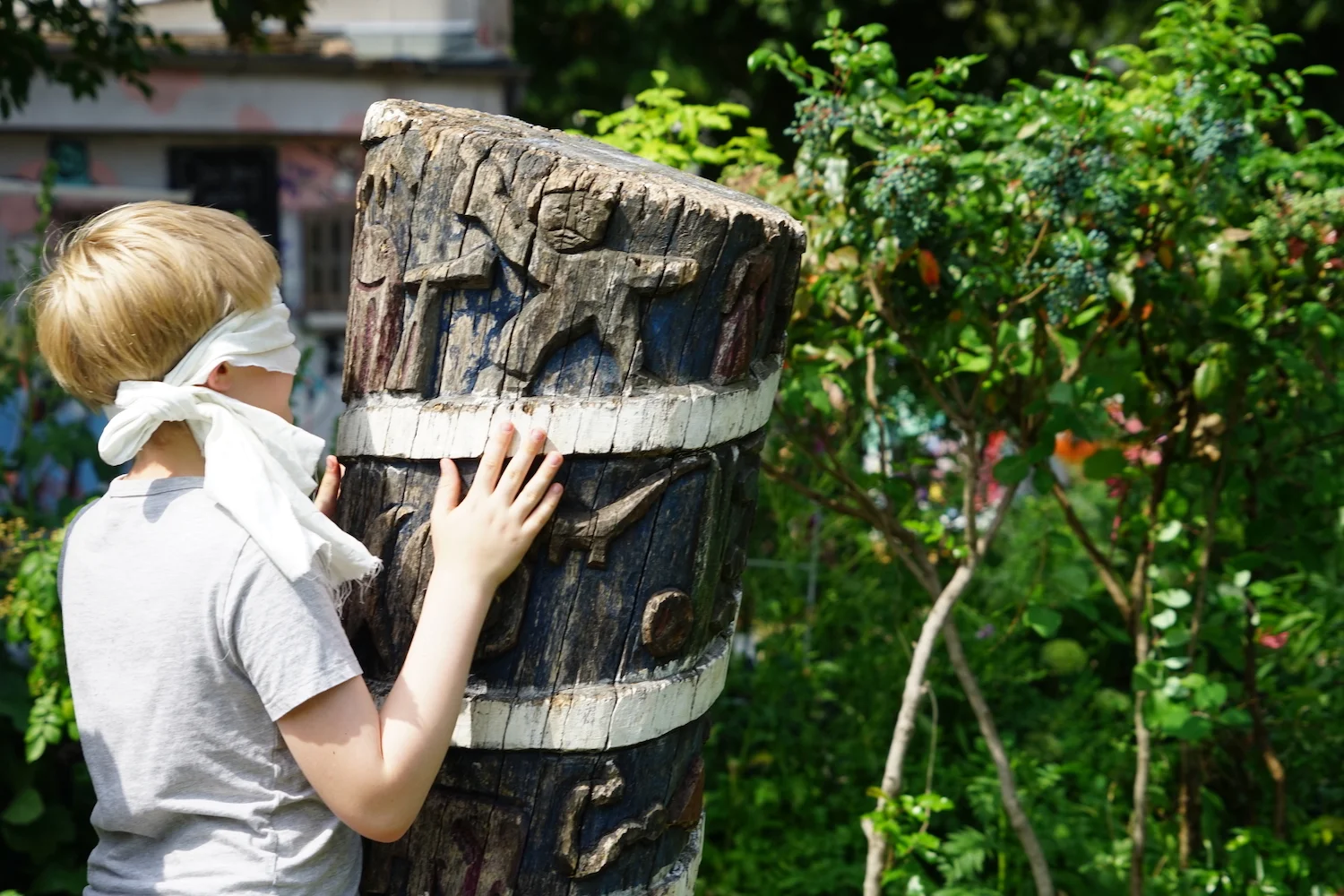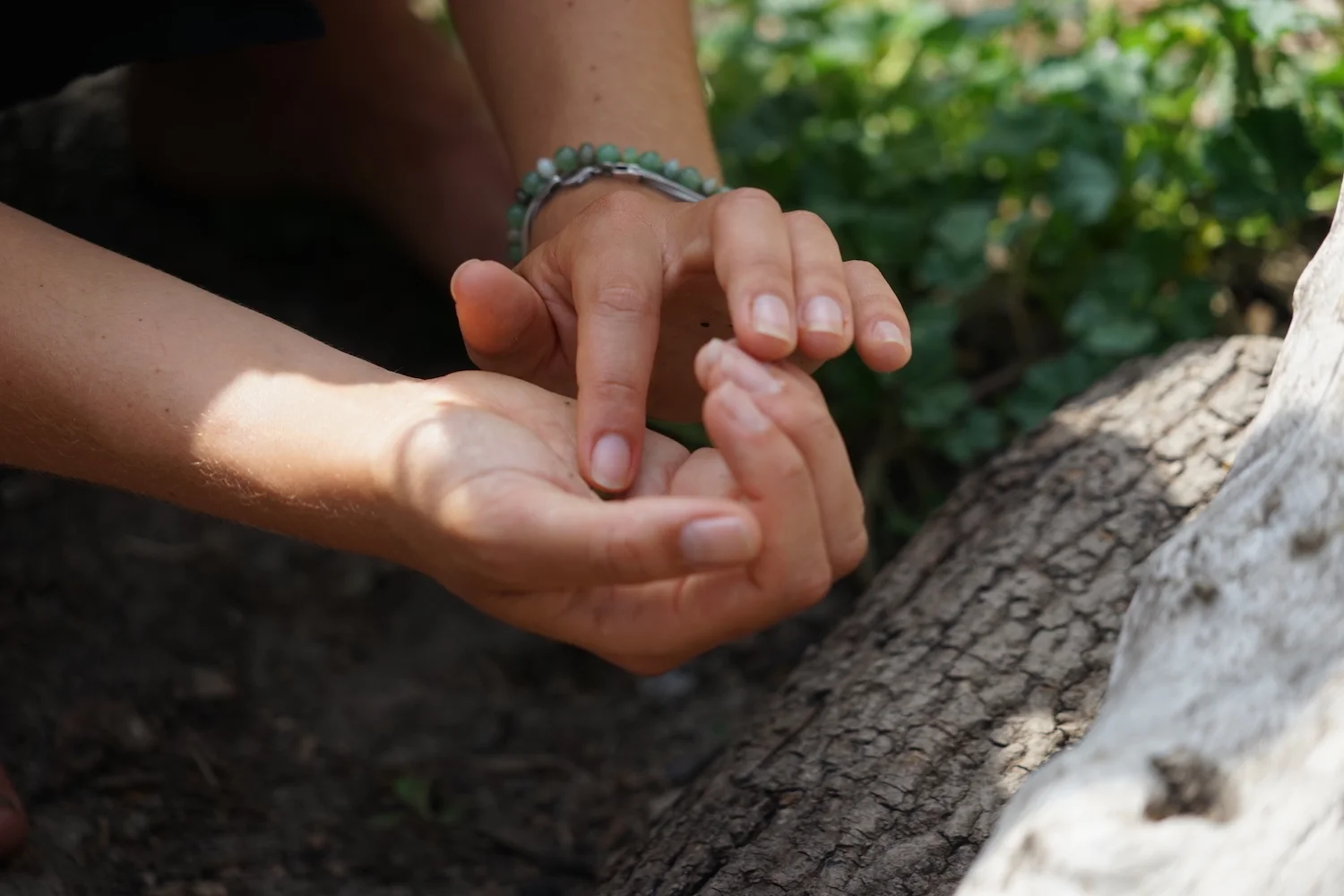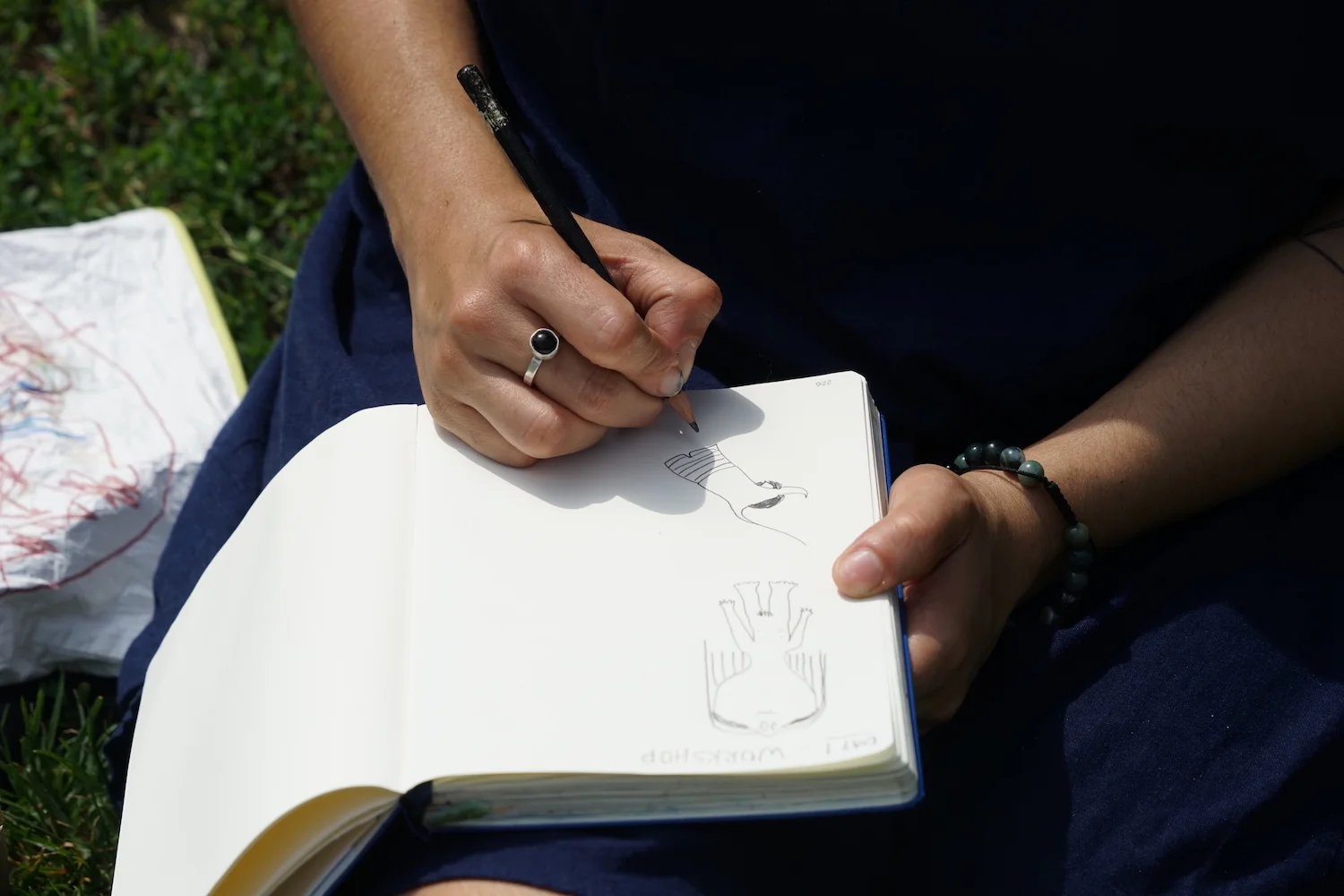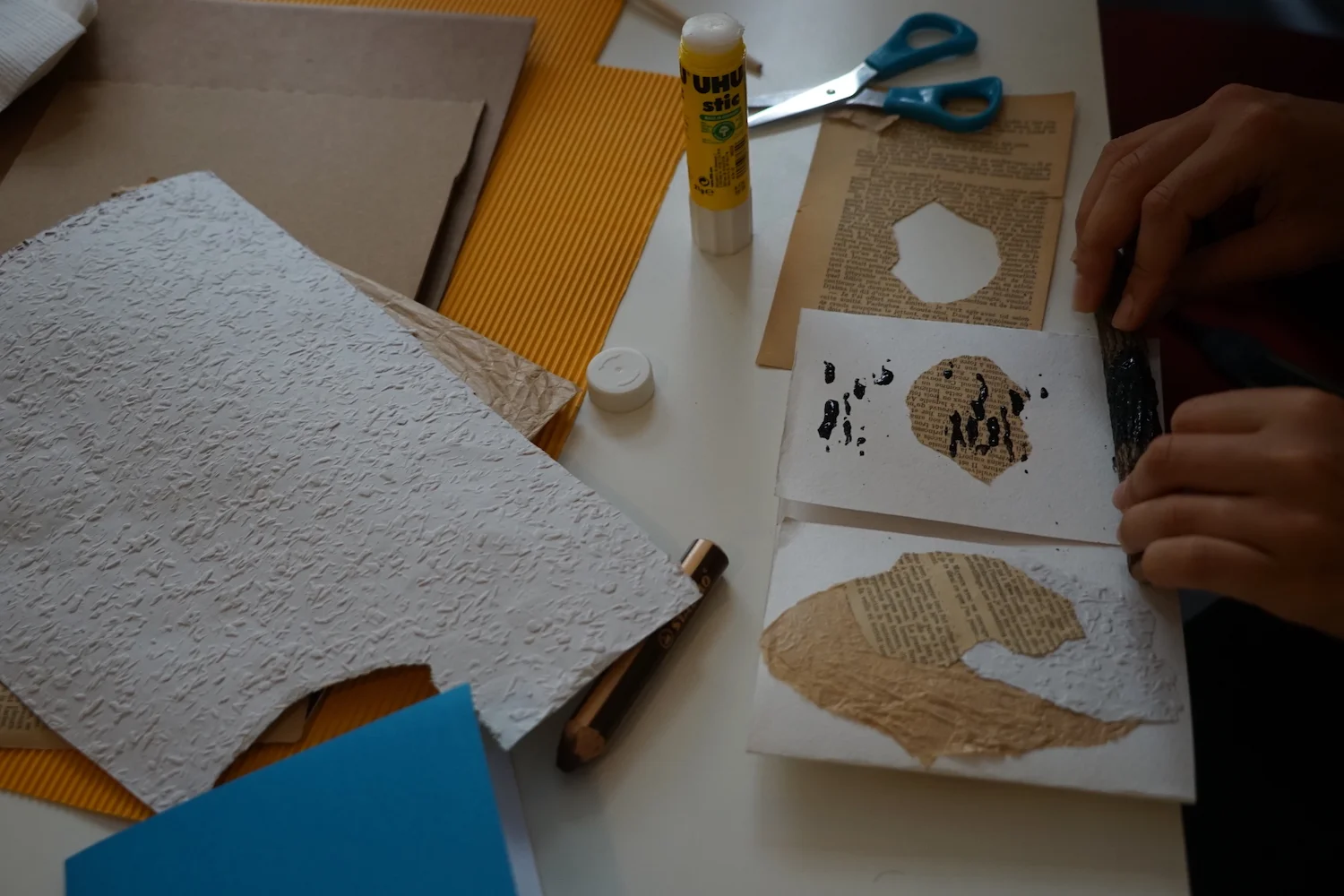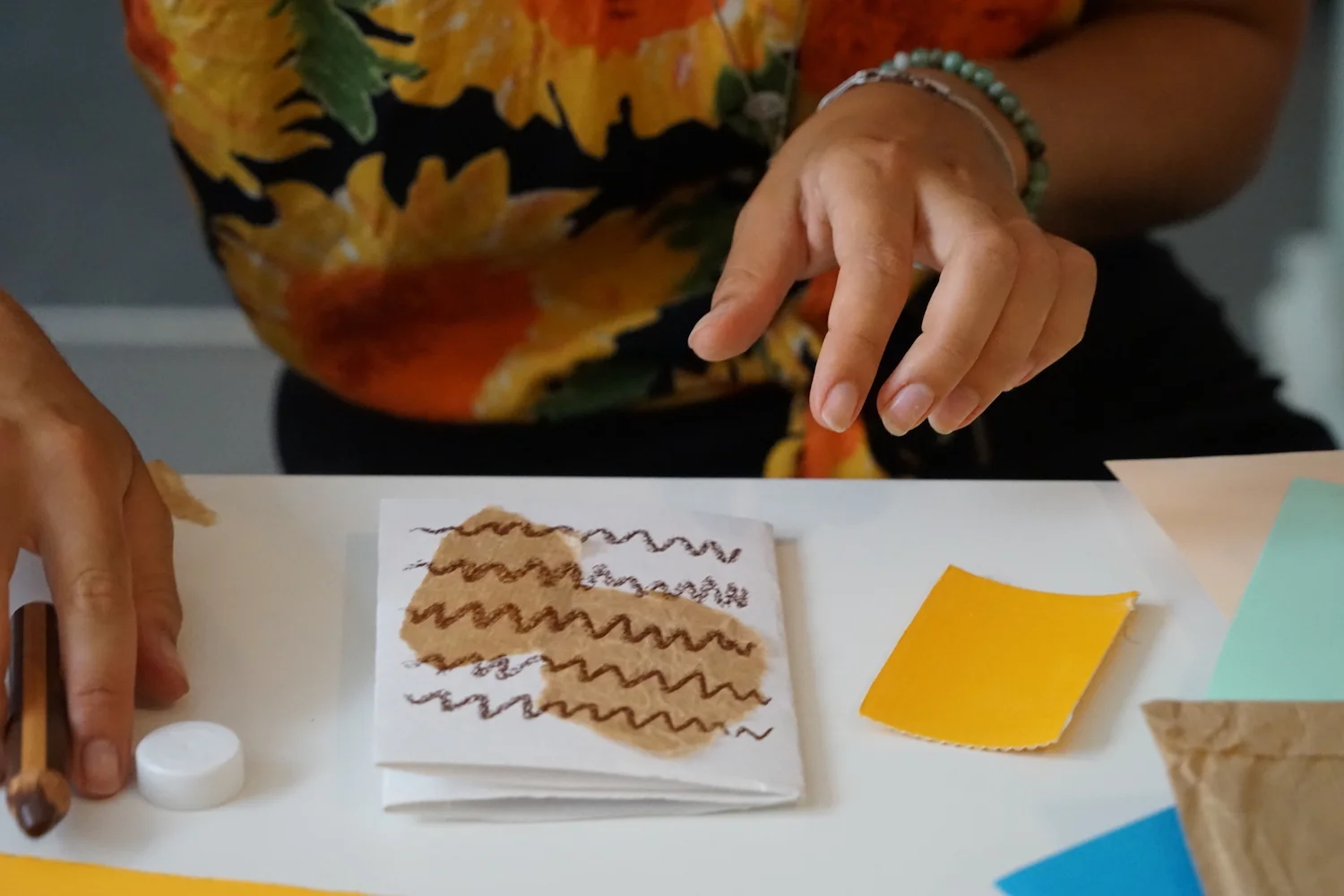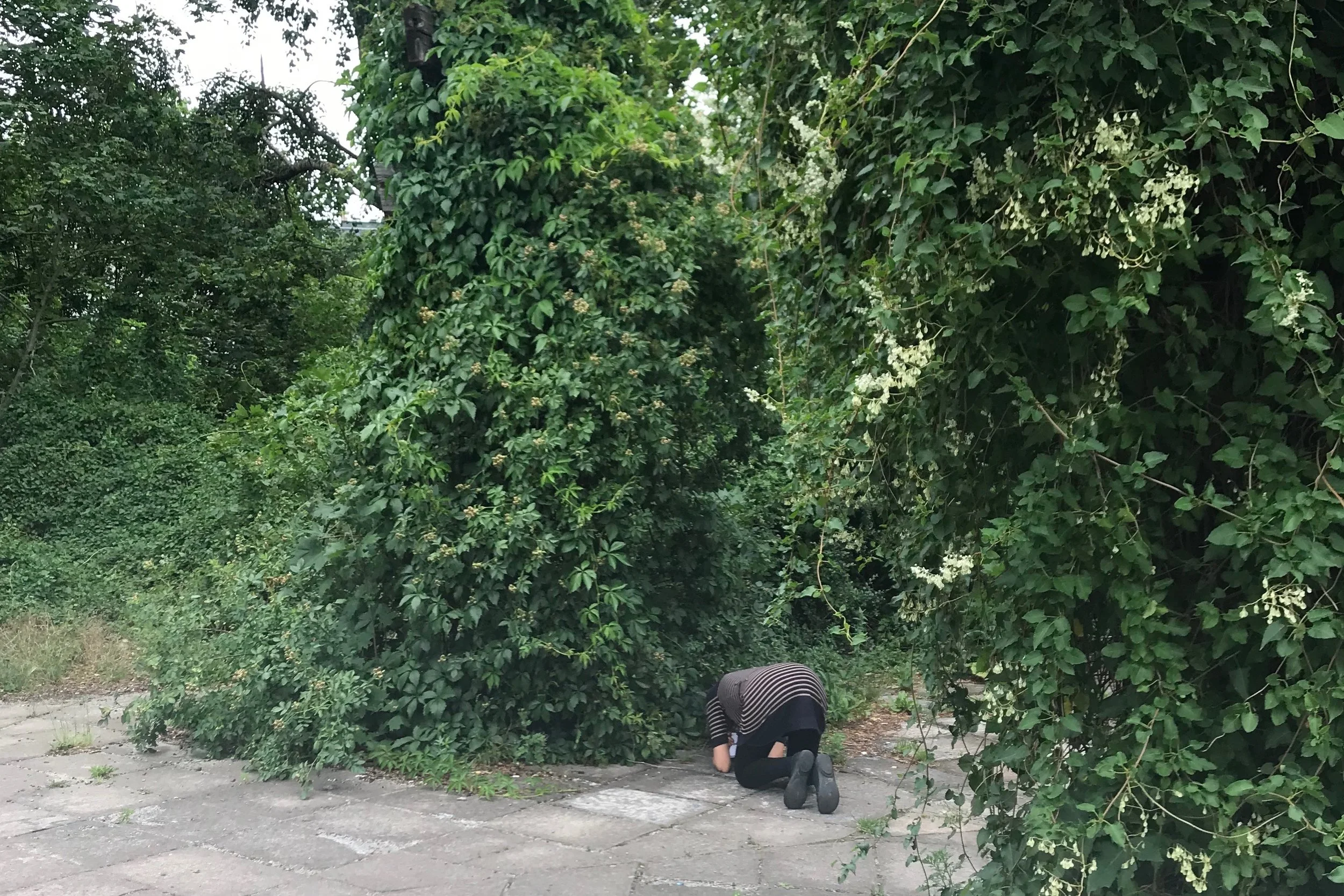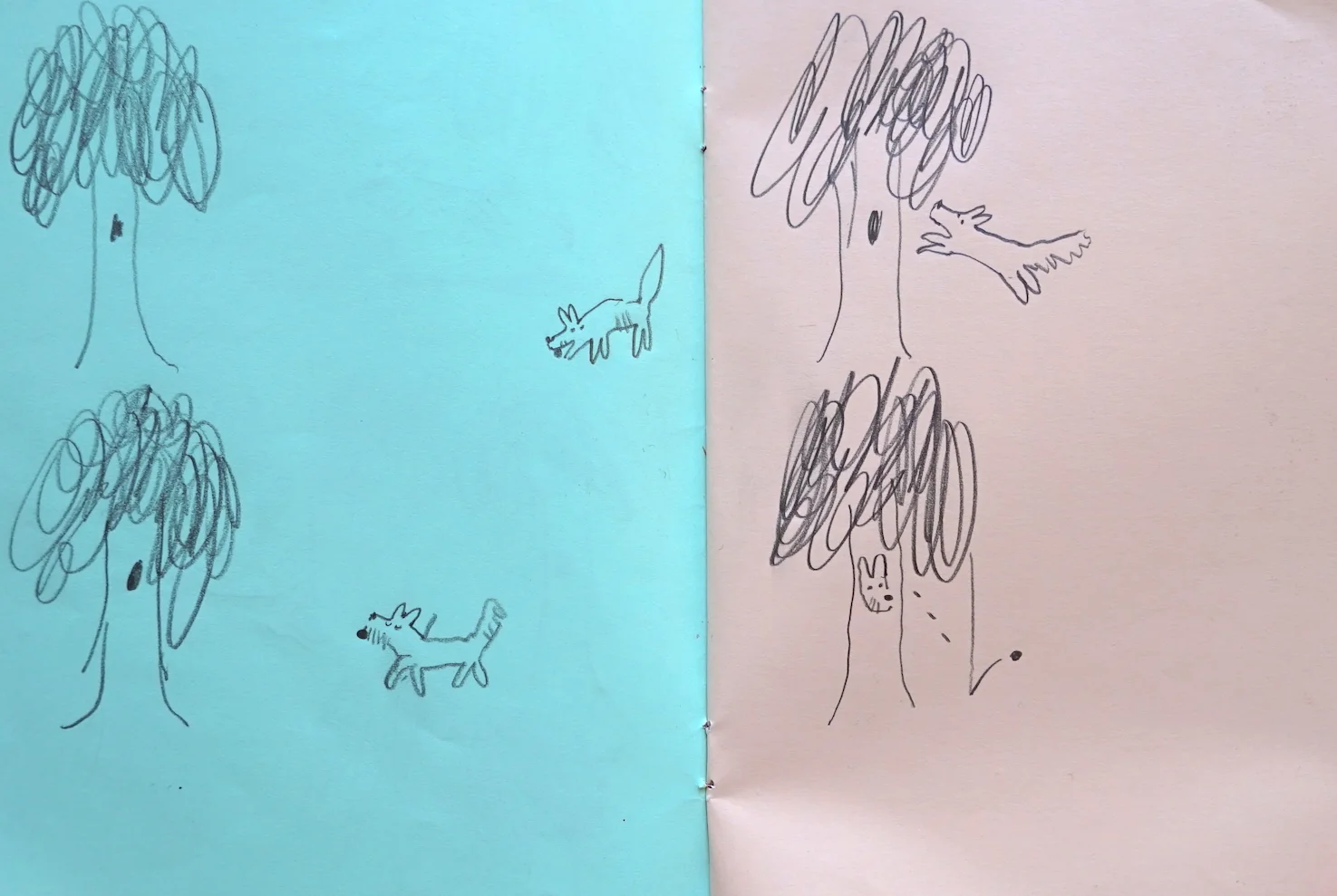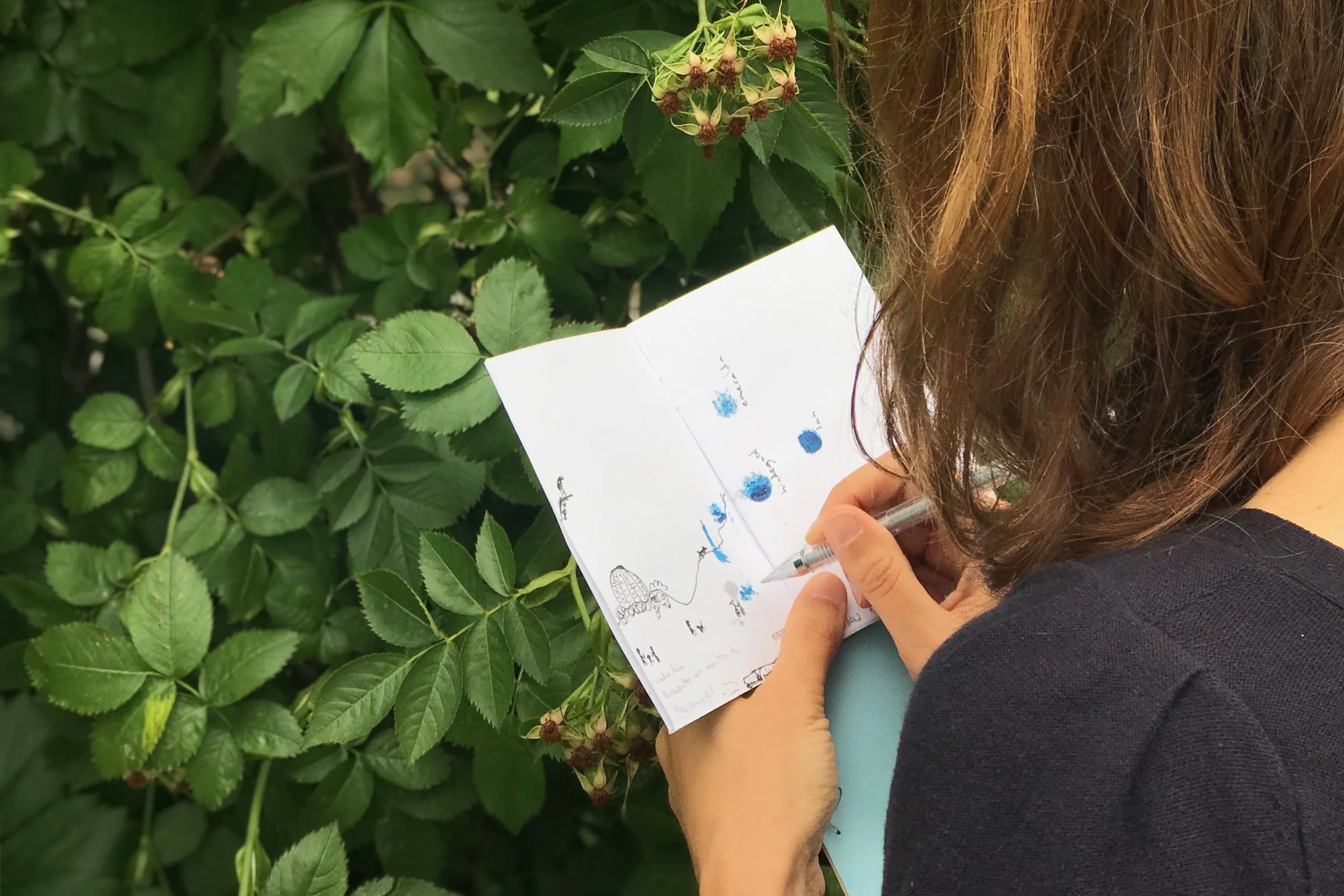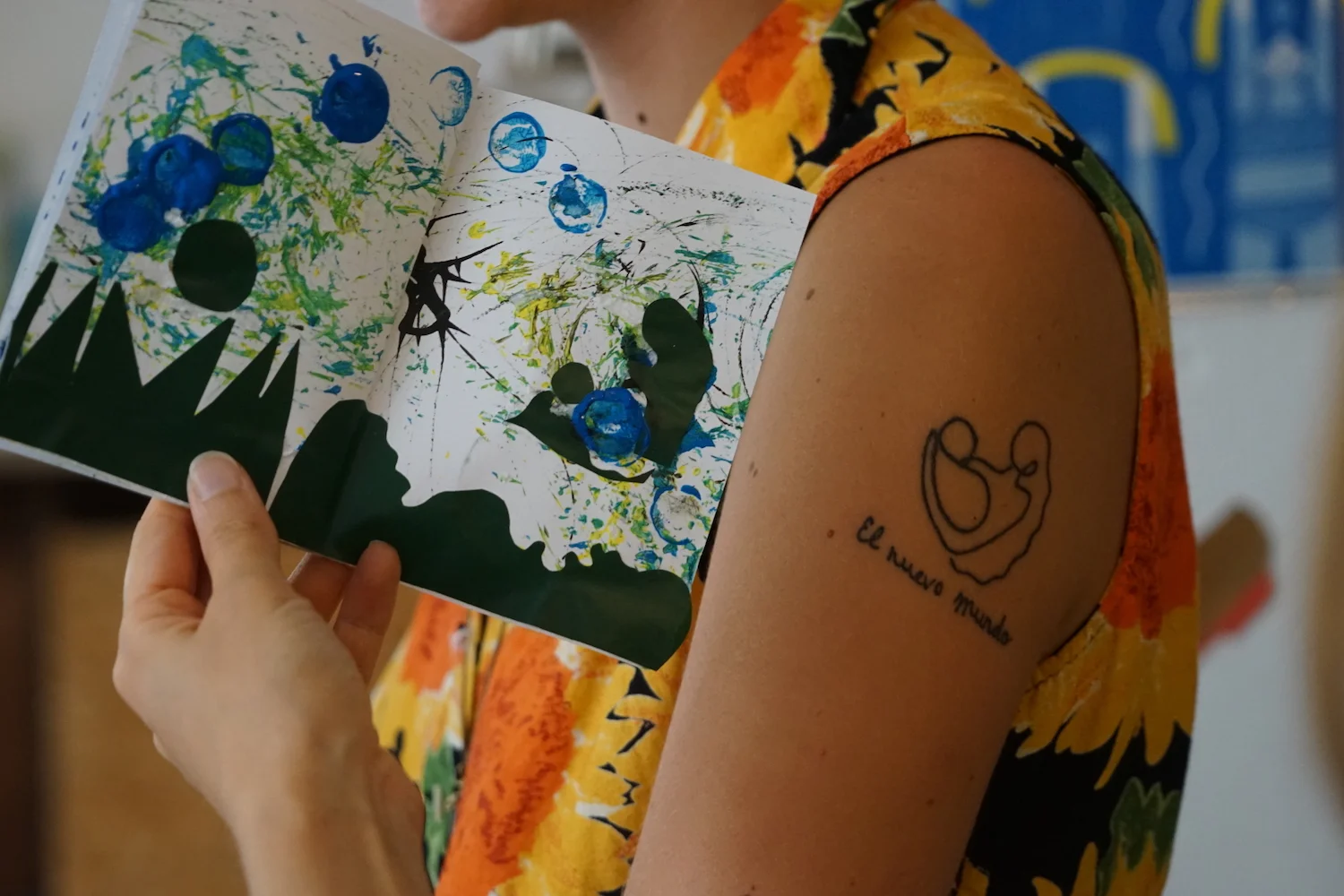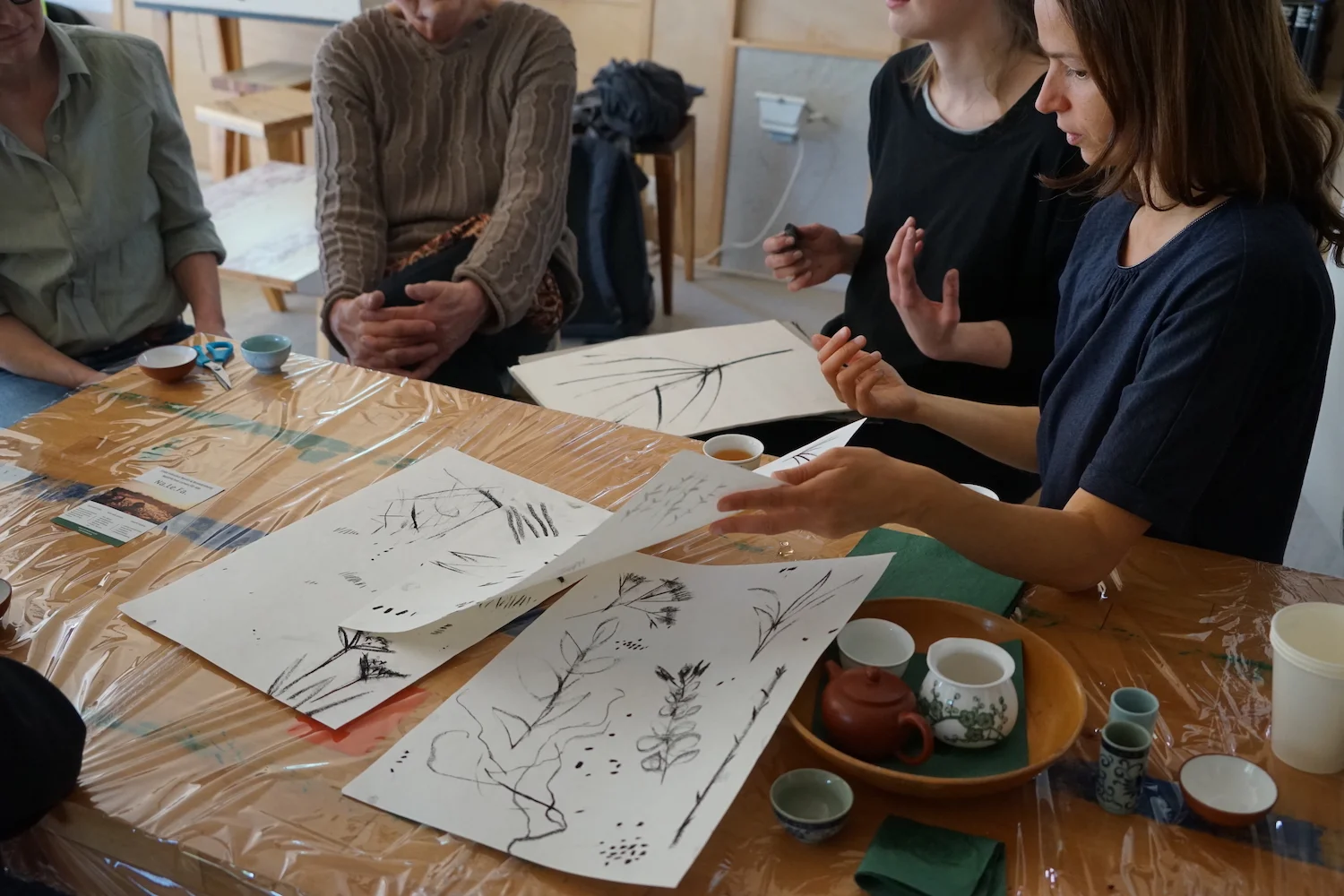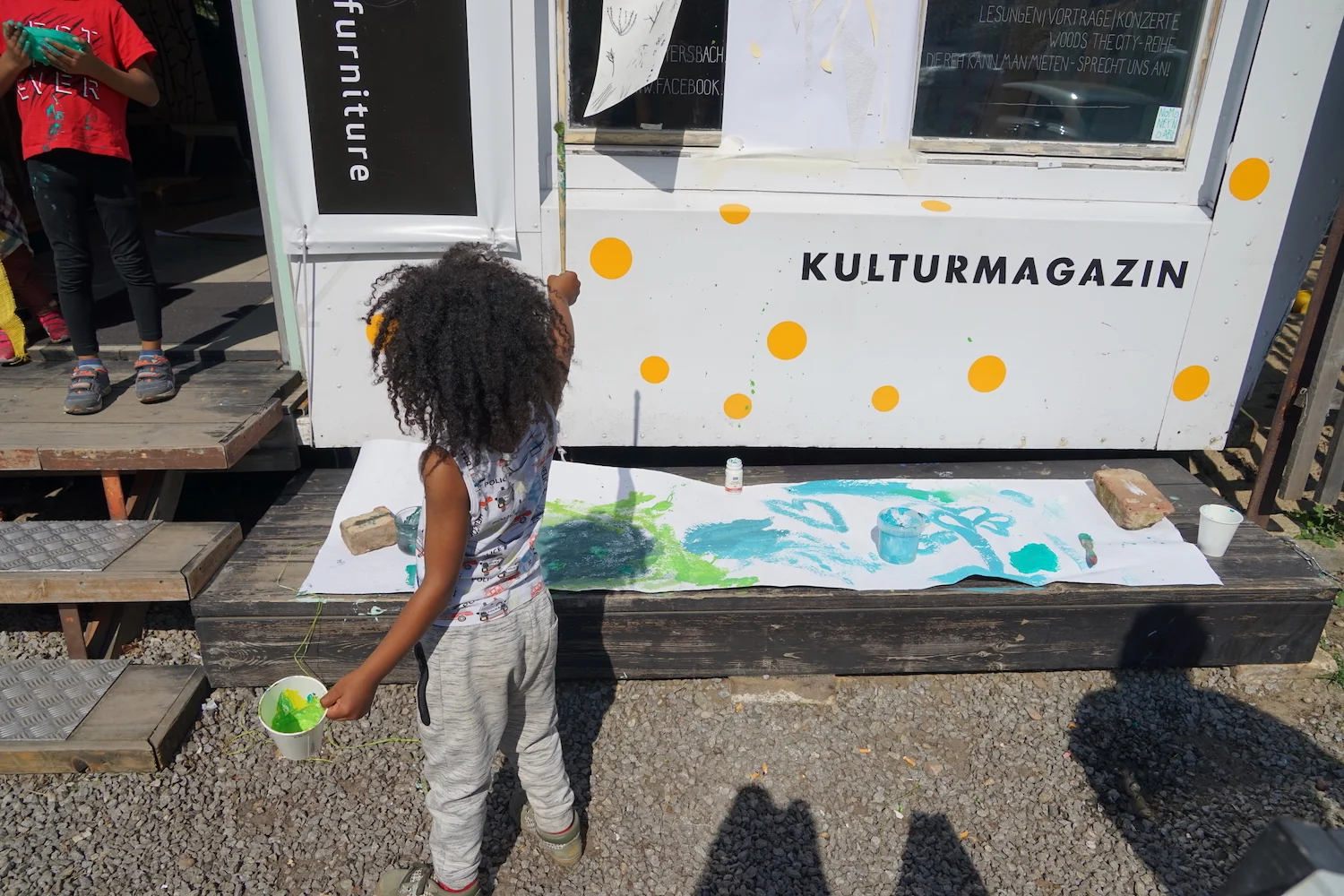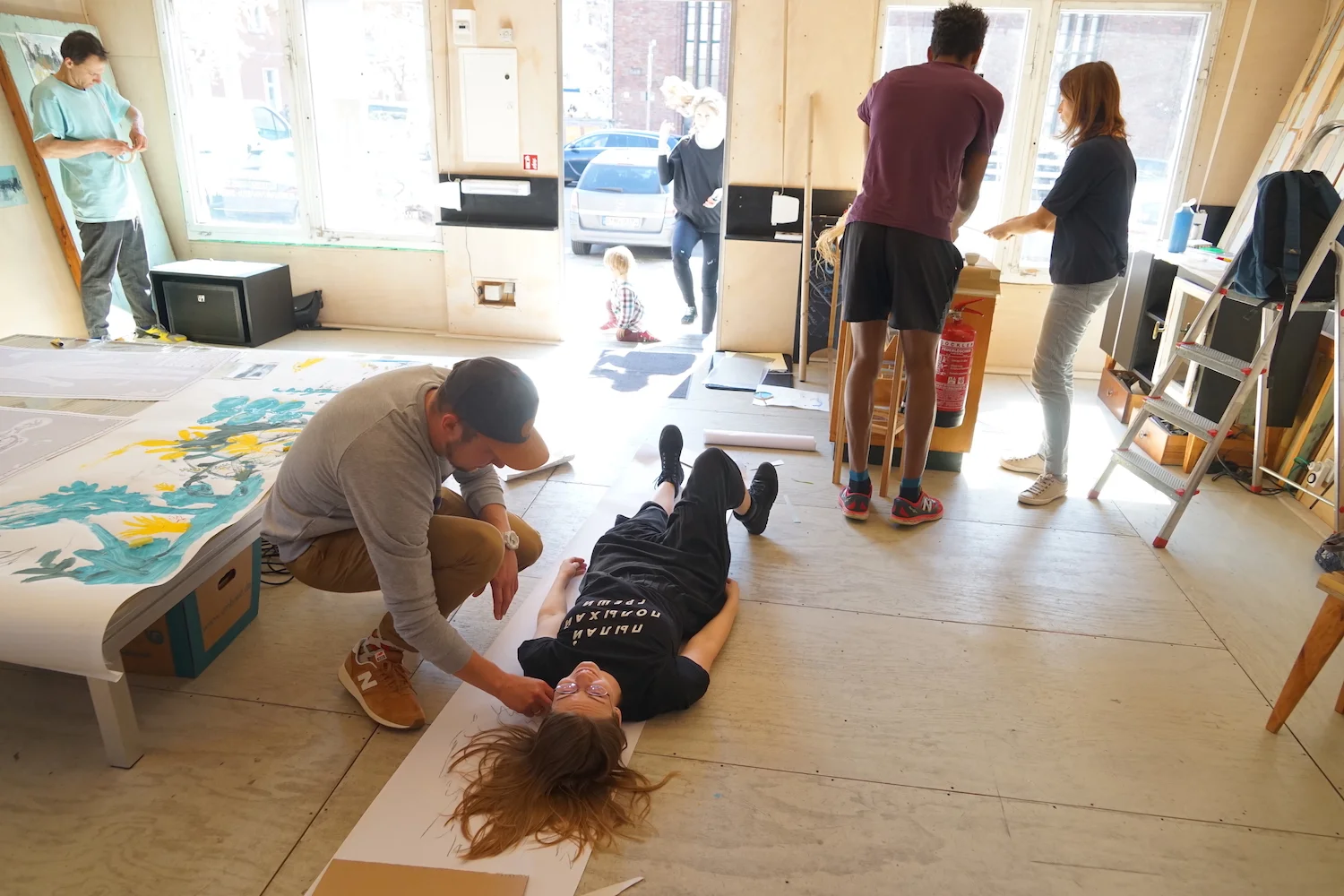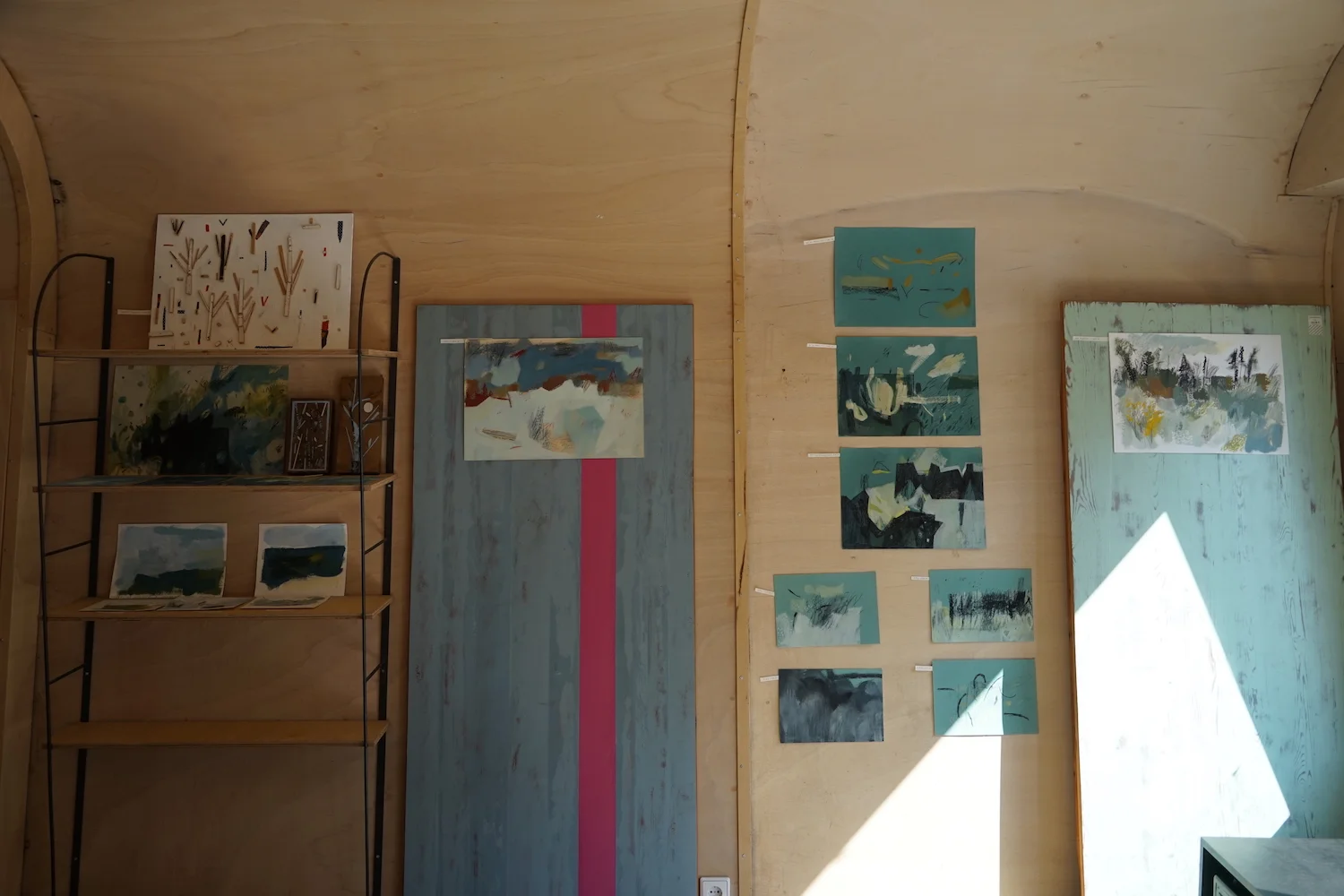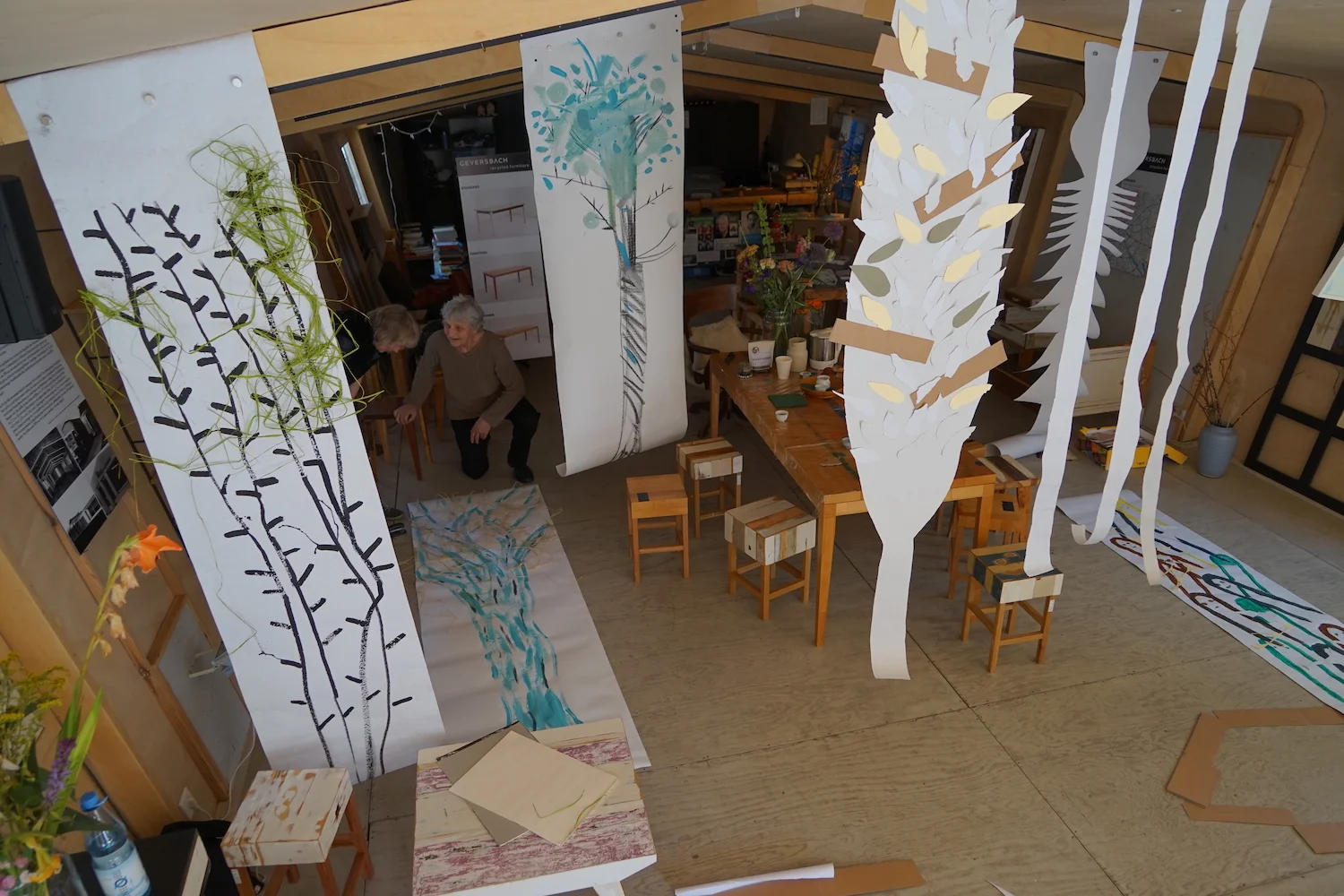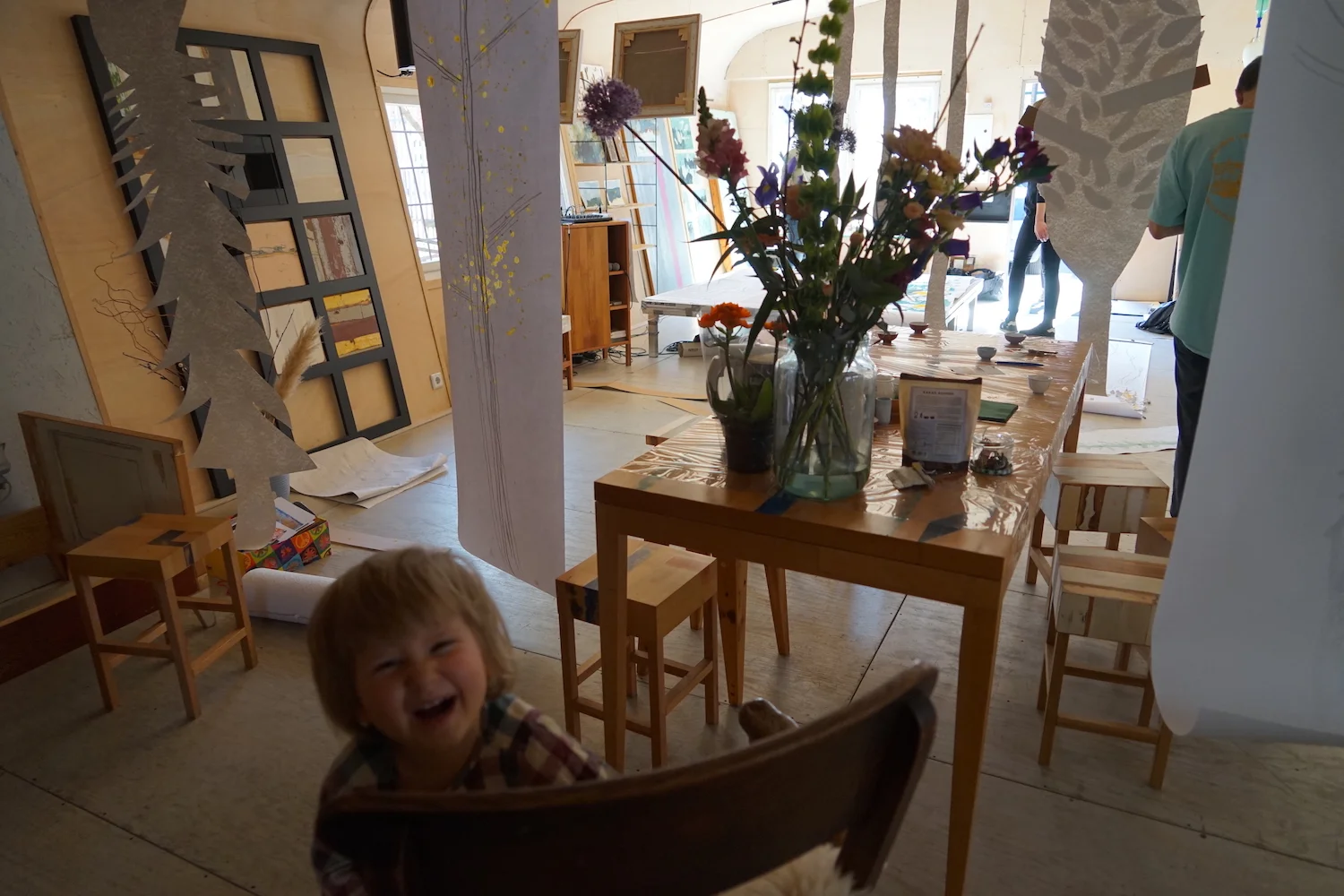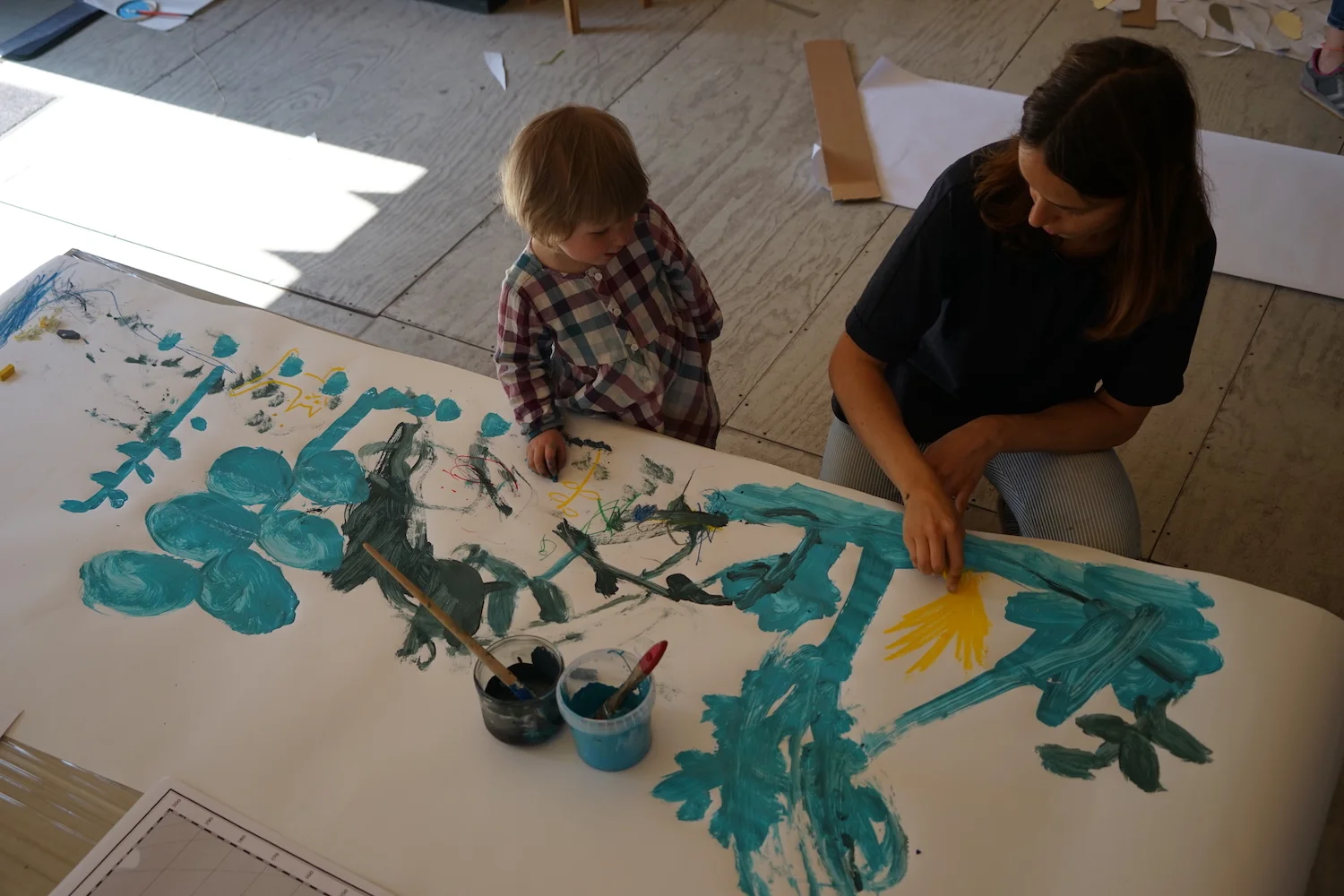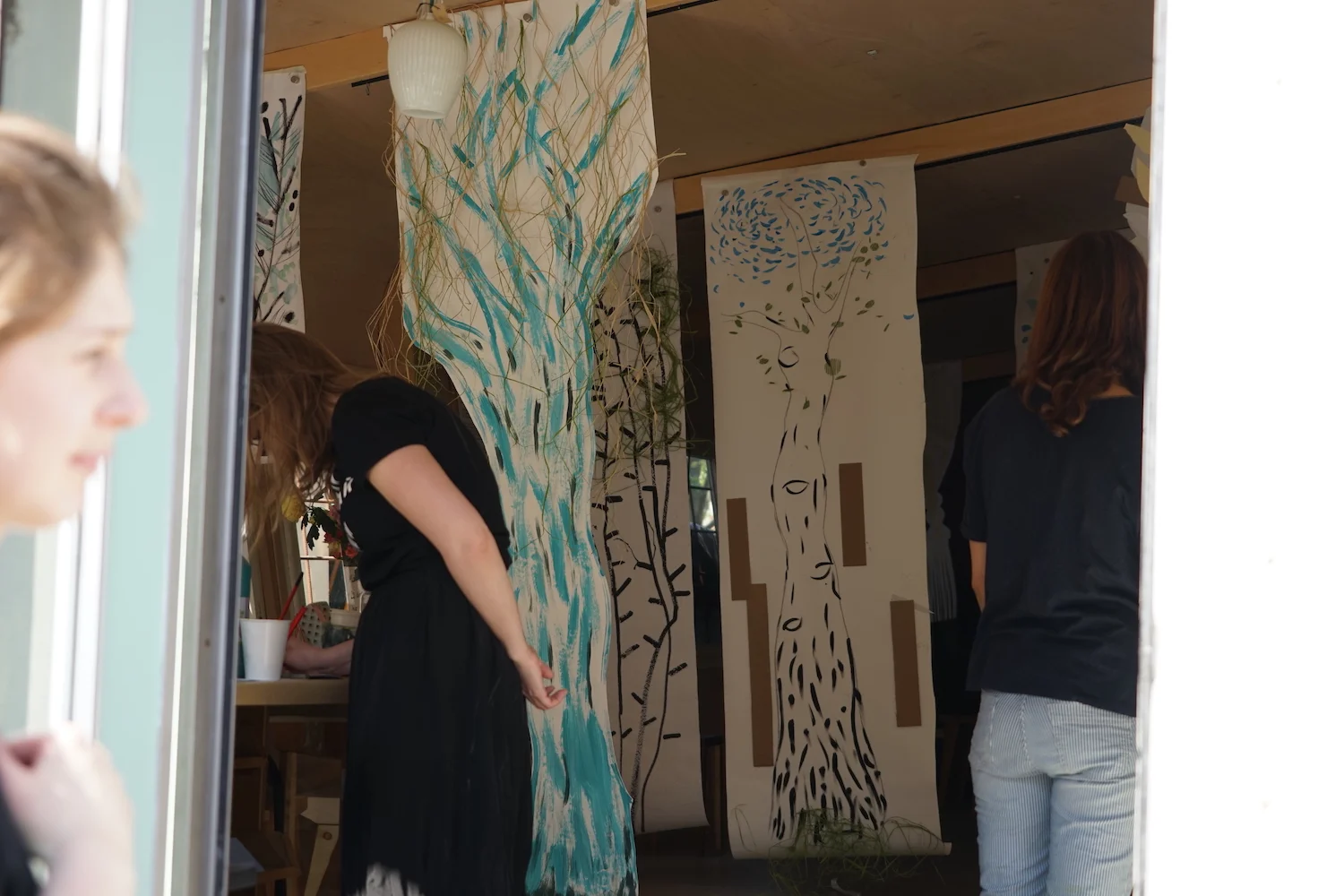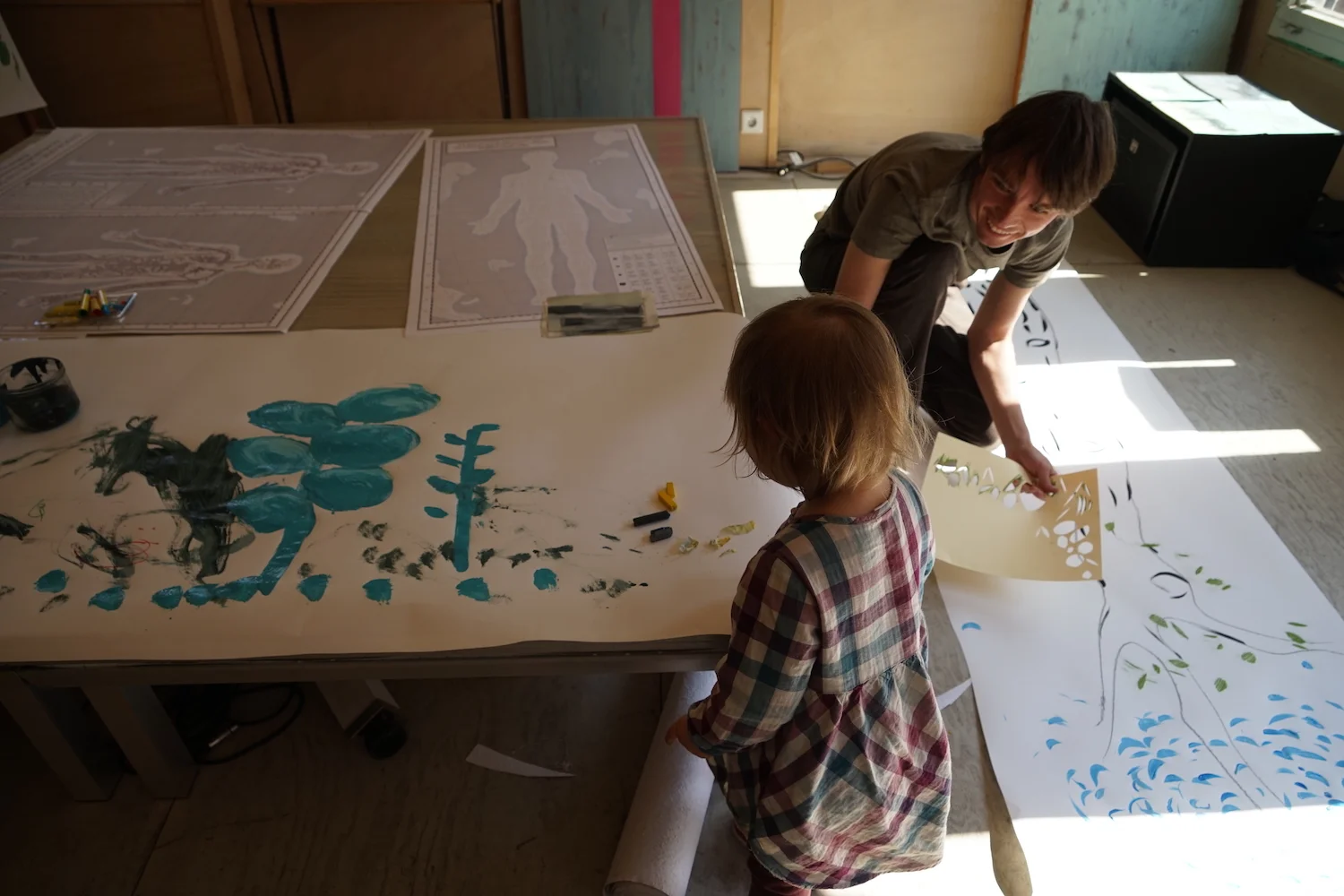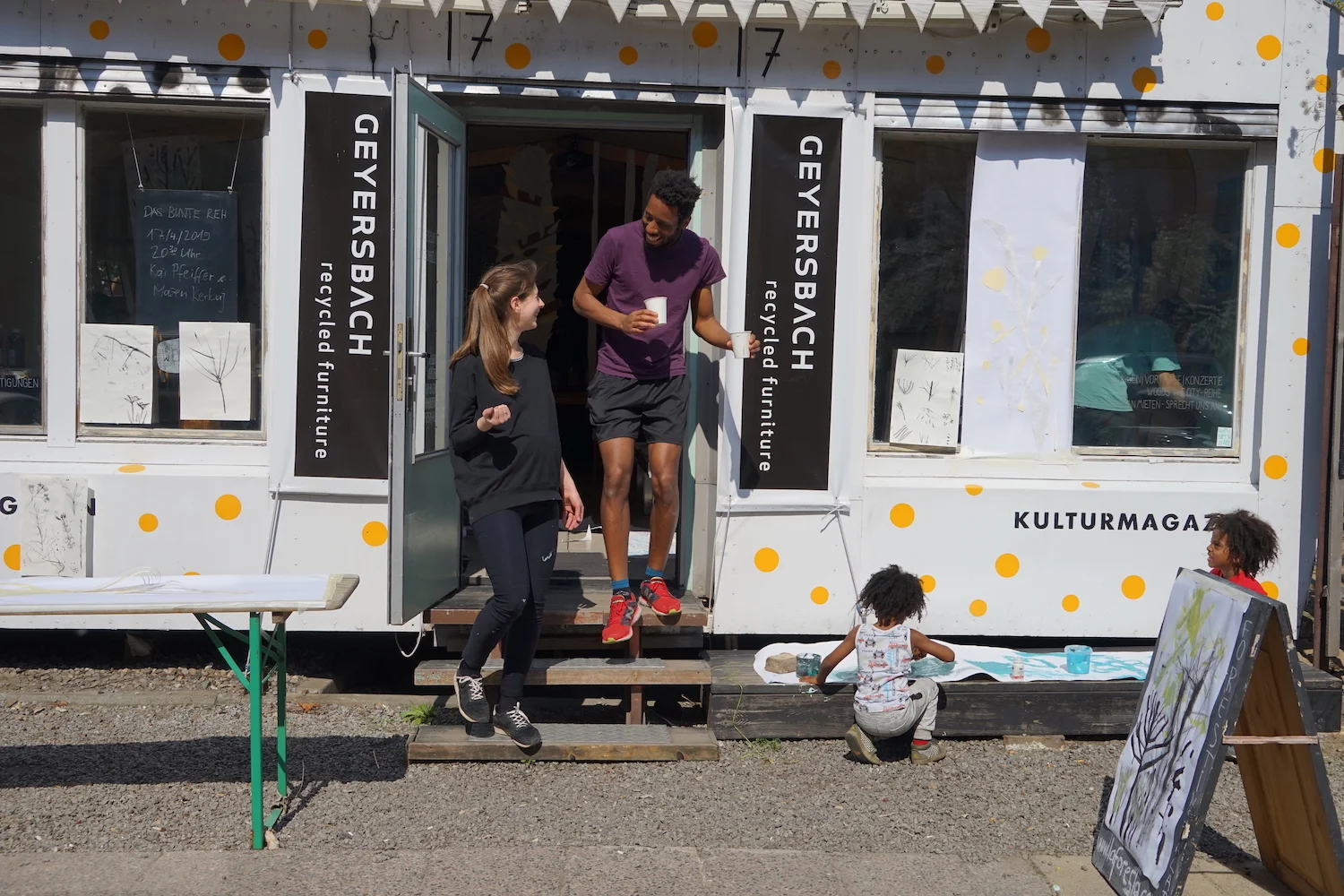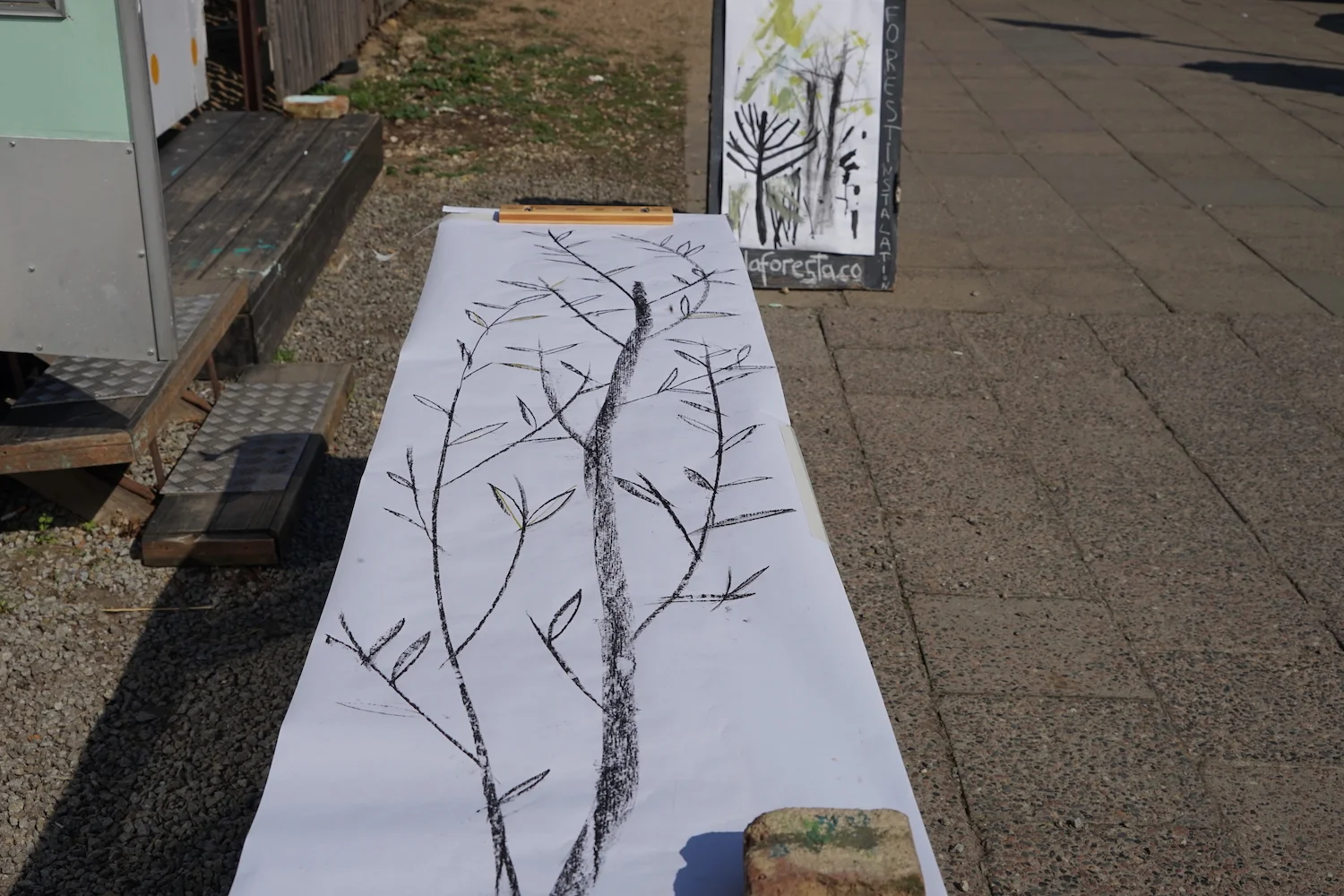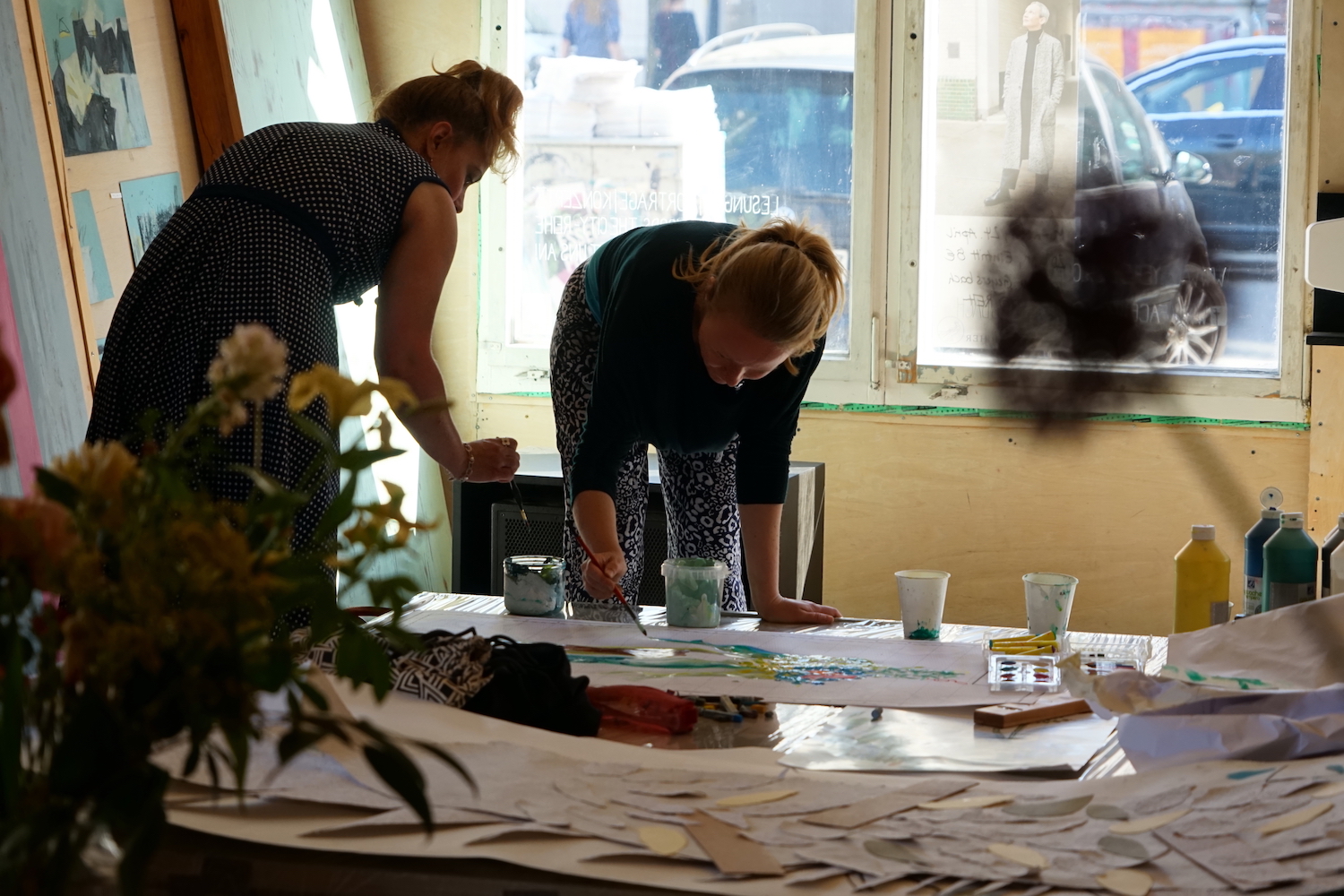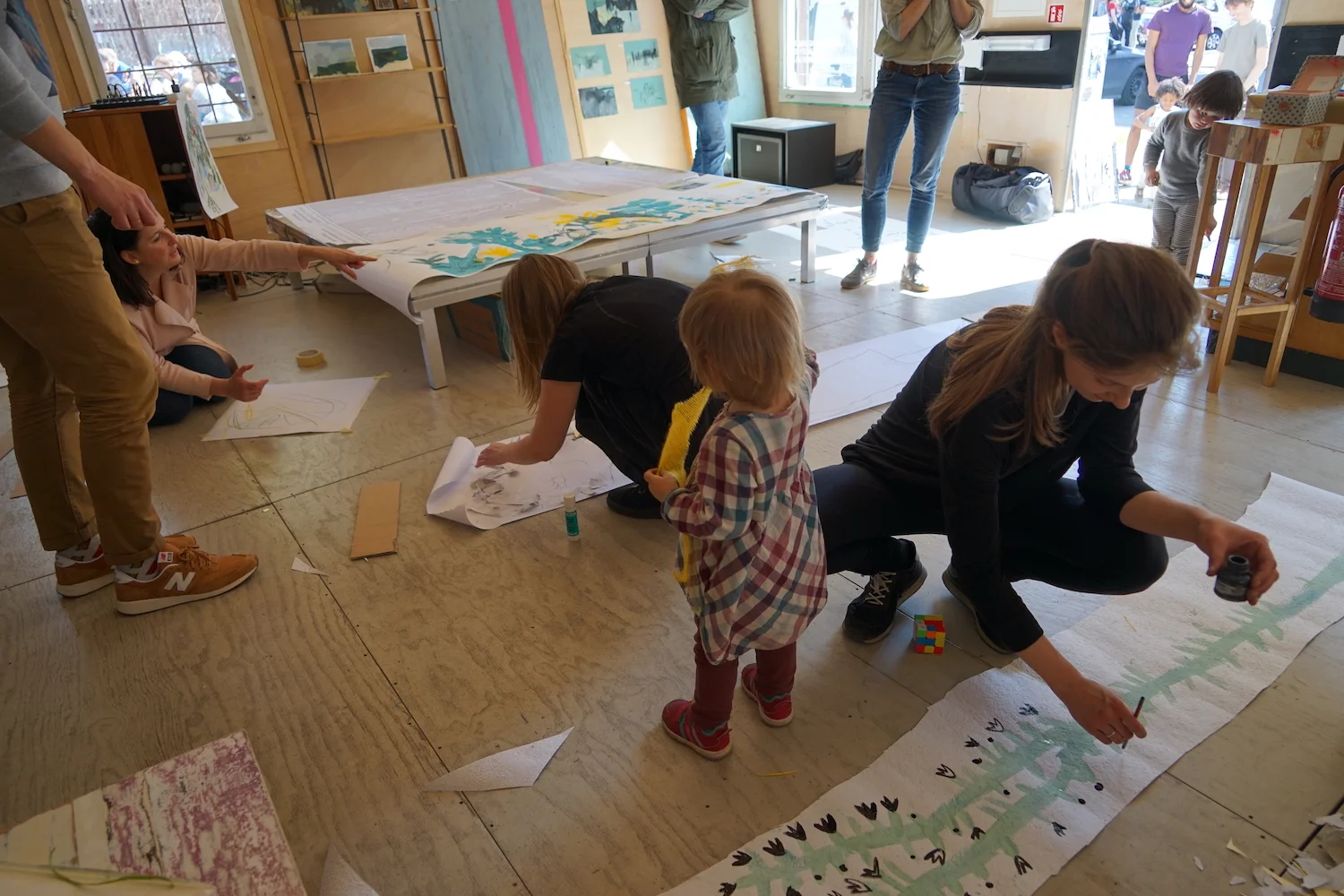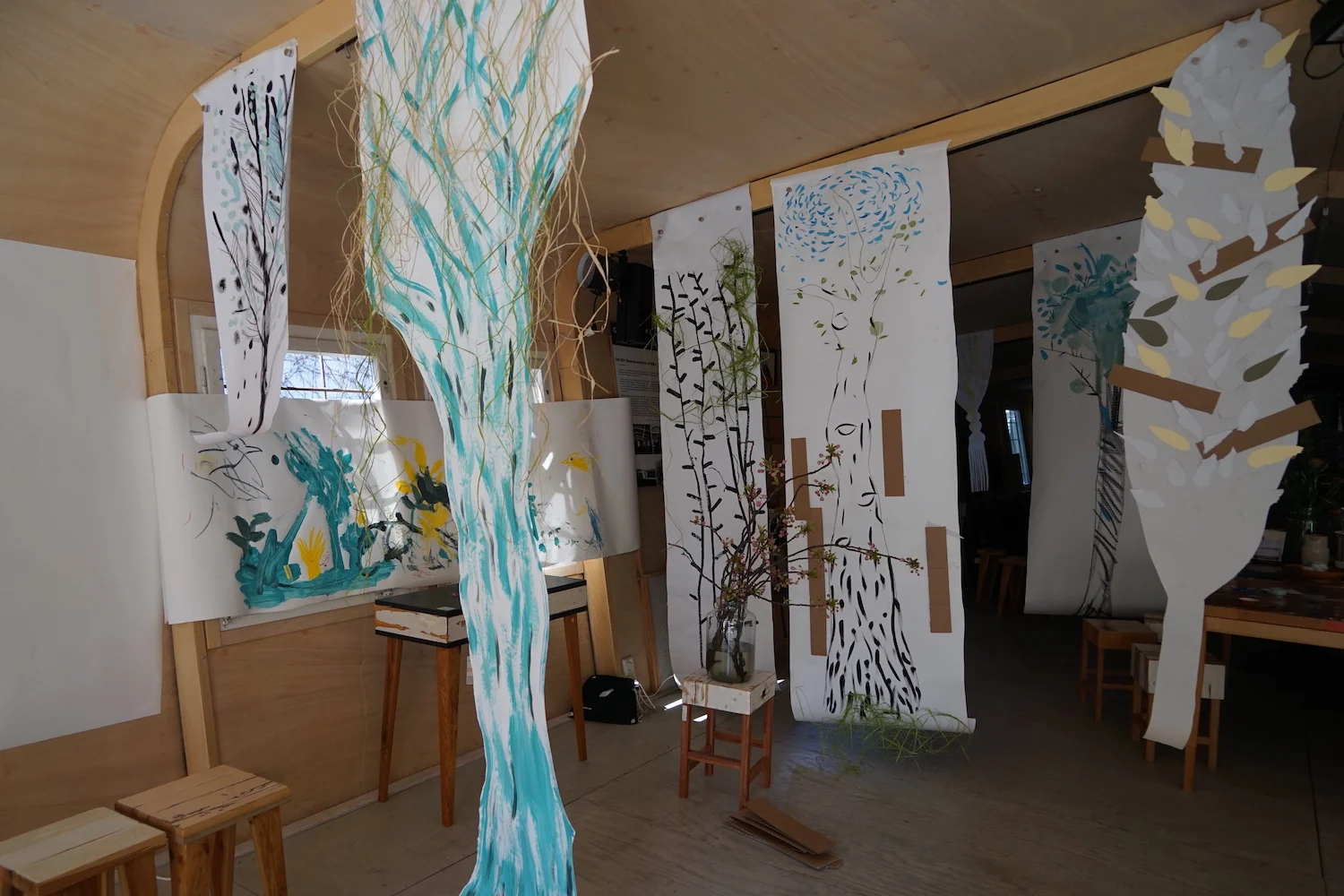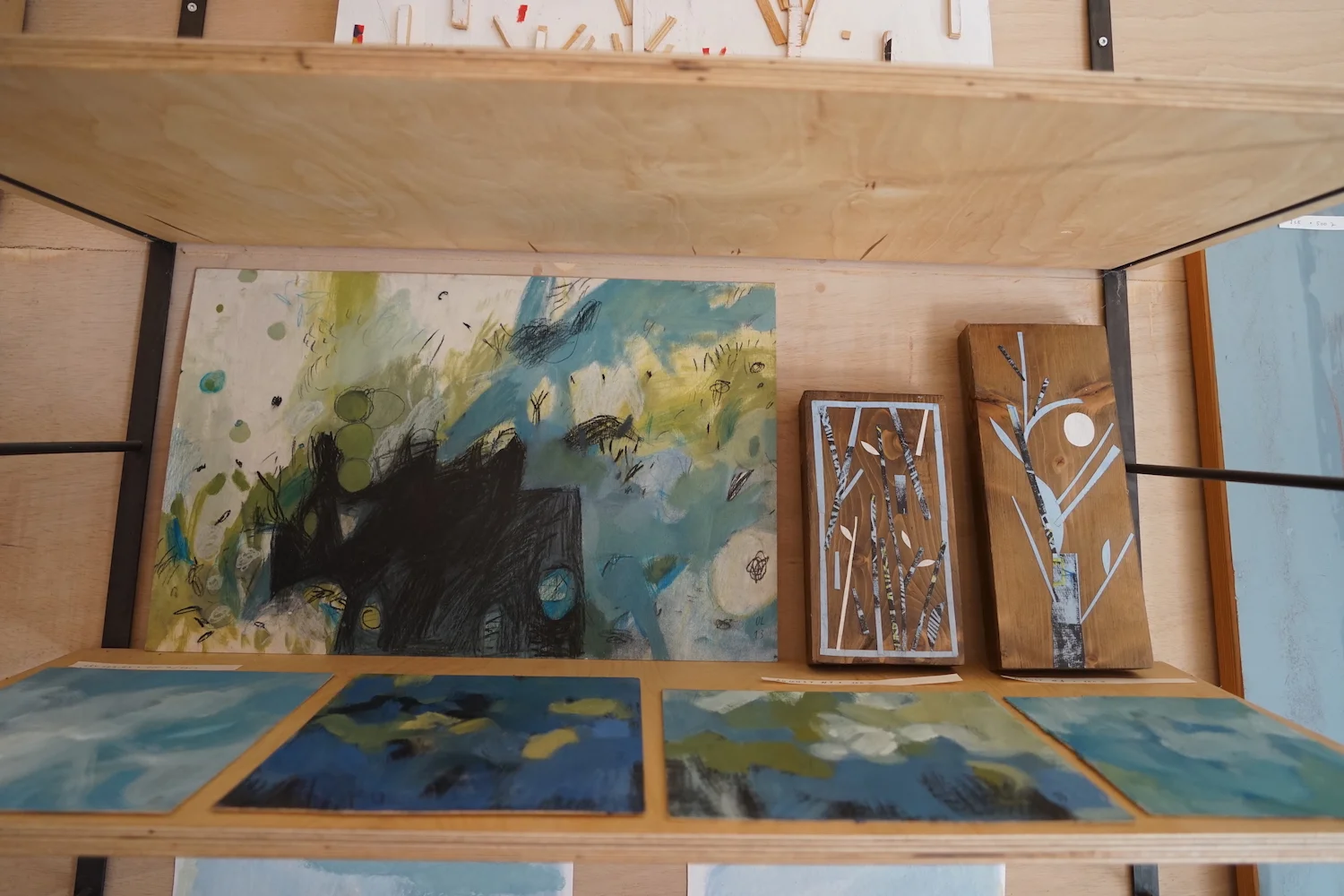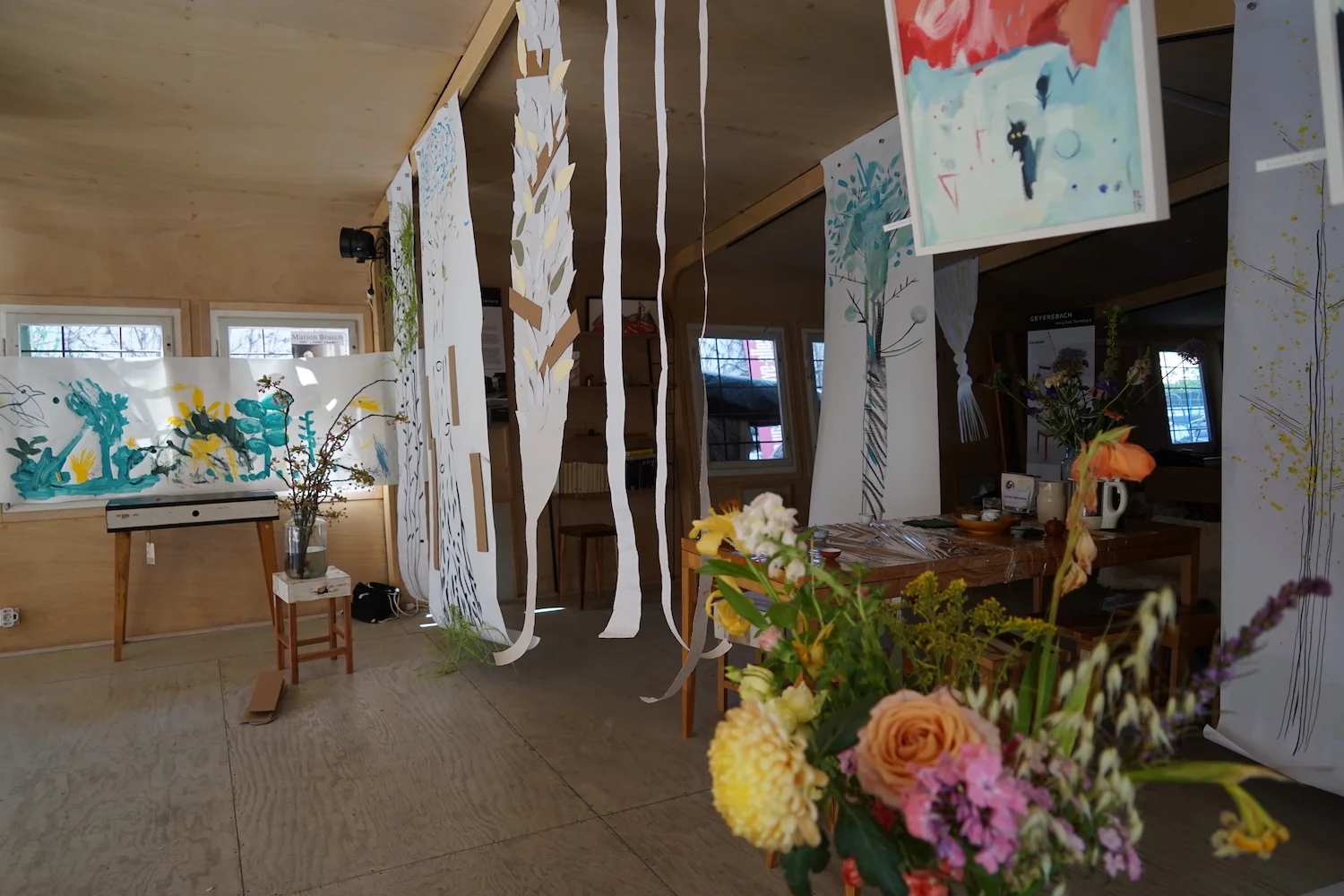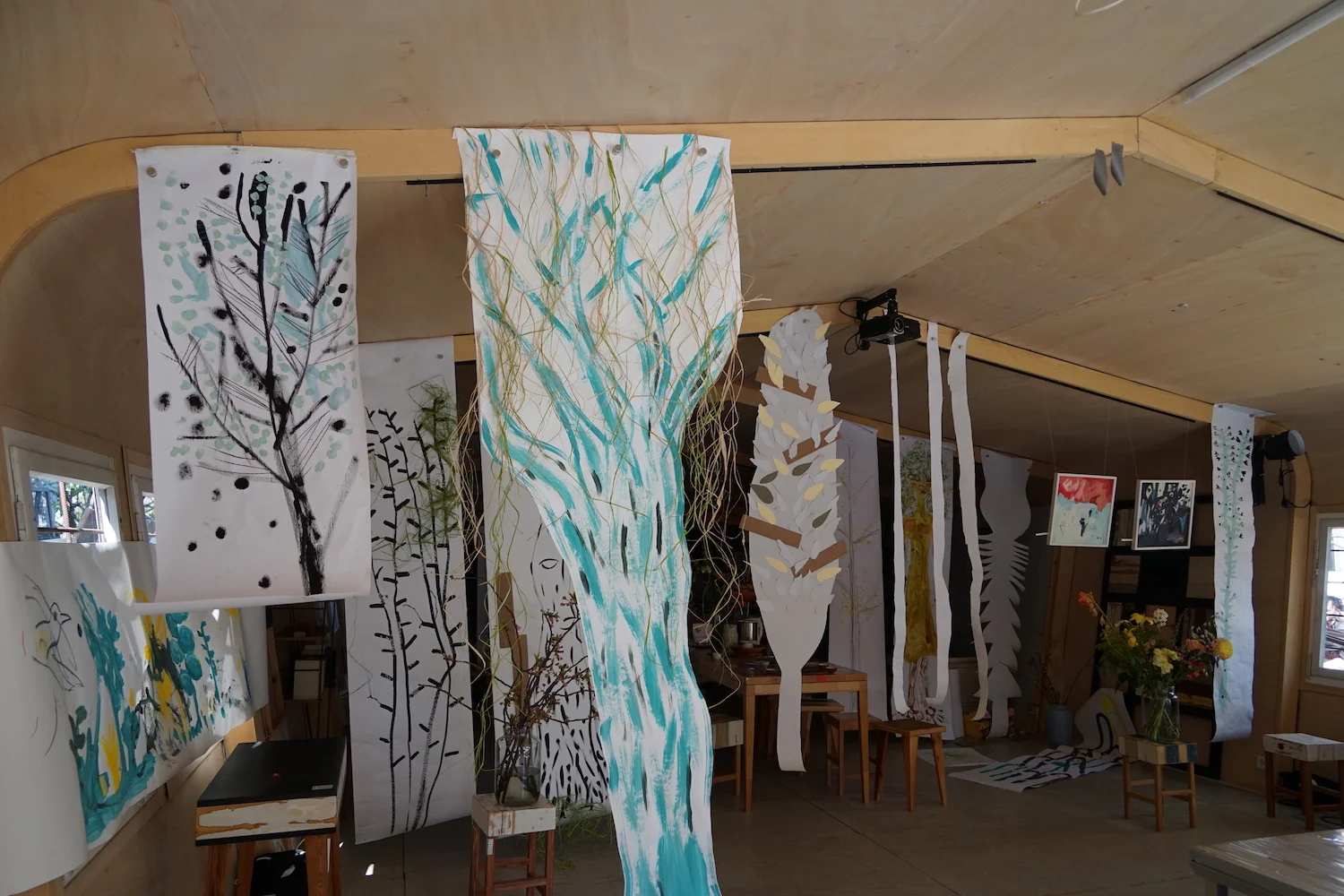Senses Series
a series of experiences to reconnect to sense-based intelligence in 8 workshops
This series took place as part of School without Walls in 2019, in format of aesthetic research workshops dedicated to sound, smell, taste, touch, sight, as well as the sense of self and sense of empathy. How many senses do we have really anyway? Senses as balance, interoception, proprioception, gravity, or even sensing magnetic fields, or a Japanese concept of MA as a sense of place, are rarely mentioned as real senses. We look at everything that enables perception of ourselves as well as tuning our sensory apparatus to the environment of other species and life forms around us, as senses that need to be recognised and payed attention to. During this Senses Series we experiment, explore, express, and experience sensuously, accompanied by a mobile creativity suitcase, that provides art materials for recording personal and collective experiences from the journey and making an own book of senses, as well as contributing to a collective Mook (magazine + book).
‘We only know the world around us through the world within us,
through the senses by which we perceive it
and the ideas by which we make sense of it.’
Nyam-nyam, Sniff-sniff, and other senses
Berlin, 2-16 June 2019
TASTE
It is said that taste cells located on our tongues recognise five basic tastes: salty, bitter, sweet, sour and umami. There are however other elements that are key to our taste experience. We dedicate this workshop to our interactions with landscapes of food. Food as vital element of life, as a source of health, as friendship, as poetry, as memory, as energy, as a ceremony, as a conversation. We will create simple dishes, raw and cooked, and see how the flavours and textures change when we start playing with the different taste elements. On the one hand it’s about experiencing the different tastes from a single ingredient. On the other it’s also about understanding how cooking works if we rely on our own sense of taste and not necessarily follow the recipes.
SIGHT
This workshop explores vision not only as one of our senses but also as a philosophical vision of life.
What and how do we see? What stays invisible to our eyes? Can we learn something about ourselves through learning about how we see? In the contemporary visually-oriented culture we are continuously spoken to through images on social media, films, advertisement and so on. How do these influence our vision? How can we revive and free our vision to see things, people or situations in fresh ways? And as children, how can we keep the uniqueness of our personal vision?
Looking at the trees and under a table, at each other and at the works of other artists, standing and hanging upside down, noticing and sensing, drawing and painting, we will practice seeing differently and perceiving more of the world around.
TOUCH
Our skin is made from the same cell types as our brain. The feel of things, textures, surfaces, temperature, everything we touch or that touches us has its own identity for our hands and skin. Through touch we connect and communicate without words with our surroundings. Whether we are aware of it or not, our bodies are in a state of continual resonance with life around us in its multitude of forms. What is the experience of touching water compared to touching earth? How about if we touch with hands or with our feet? How can we explore touch through movement? And what is touch in a metaphorical sense? Is painting also about touch? These are some of the questions we propose for a collective inquiry during the workshop.
SMELL
Everything has its own unique smell. People, plants, books, animals, cities, cars, liquid things and hard things, soft things and fuzzy things. Smell is our oldest sense. Before sight, hearing, even before touch, creatures on Earth evolved to respond to the smells around them. Smell connects to our deepest memories. We have at least 1000 different smell receptor types living in our noses, and we will dance with them during this workshop, going on smell walks, exploring the fragrant side of things around us, and inventing a new way of communicating what our noses feel.
SOUND
The world is full of sounds. We will listen to the sounds of daily life of cats, leaves, cars, birds, alarms, water taps, bells, trees, and radiators. What is the oldest sound in the world? Who is the loudest animal on the planet? How do our bodies sound? What happens when our voices meet? How is music born? There’s more to listening than meets the ear. What are things that have no sound and we still hear them? This workshop is dedicated to sound and silence, to listening and hearing, and to understanding even without words. It contains elements of voice, choir and awareness practice.
* SENSE OF SELF
Scientists argue that there are many more senses than these 5 “traditional”. There is a sense of balance and acceleration, time and gravity, proprioception and interoception. For the purposes of this series we put them all together in one that we call the sense of self. It’s a sense of perceiving one’s own body. This workshop will include a variety of exercises for movement and stillness, breathing and stretching, paying attention and discovering the inner world of the body, material and immaterial. To read more about our research and reasons behind why working with the body is central to what we do click here.
* SENSE OF EMPATHY
This is not an official sense of course. Empathy means ‘the ability to understand and share the feelings of another’. We chose to include this relational sense as the last part of our journey through the senses. This intricate ability that we have to attune to other human and non-human beings (and not to our assumptions or interpretations of them), is the base for living well with other people, and ecosystems of this planet. This workshop contains elements of theatre, visual arts, movement, and awareness practice.
* MY SENSES BOOK
Together with an illustrator and a book-maker Andrea Antinori, we unite traces, sketches and impressions from the workshop experiences making books.
People
Foresta Collective is a transdisciplinary collective designing learning experiences that wish to contribute to regeneration on personal, relational and collective levels. As a transdisciplinary practice most of our formats are prepared and run by several people bringing in a rich variety of perspectives, tools and experiences.
Team for this edition: Andrea Antinori, Barbara Cousin, Cora Schmelzer, Egor Sviri, Sabina E. Téari
Partners for this edition
Opening of the series: Collaborative Installation.
The series opened with a collective creation of a multi-sensory forest installation, supported by the author of Foresta Spring 2019 portrait, artist from Moscow Olya Leontieva. It was a chance for us to start a conversation about the series and about our drives and motivations to invite people into this collective investigation around human senses. Partner location: Geyersbach Recycled Furniture.

